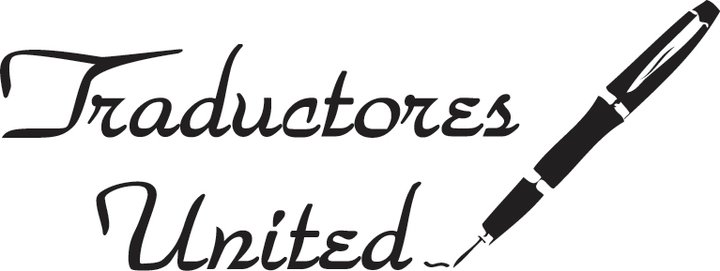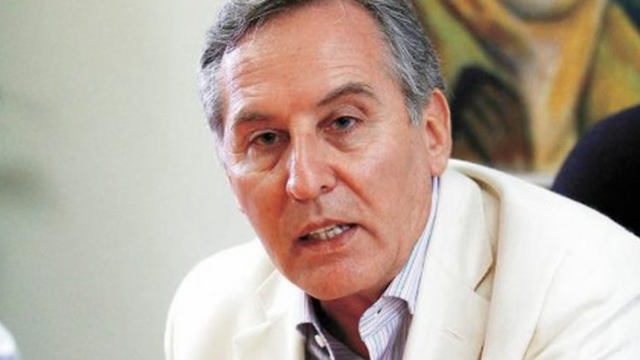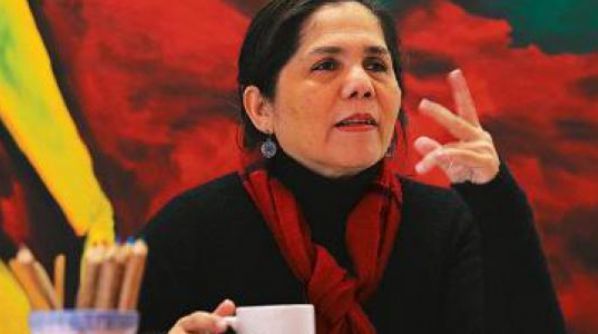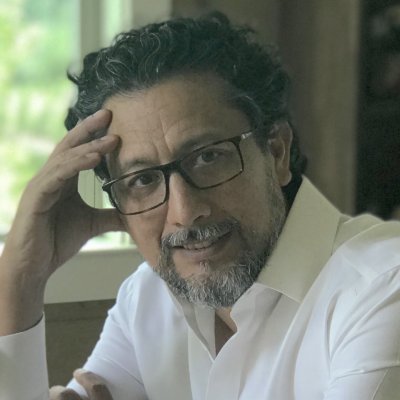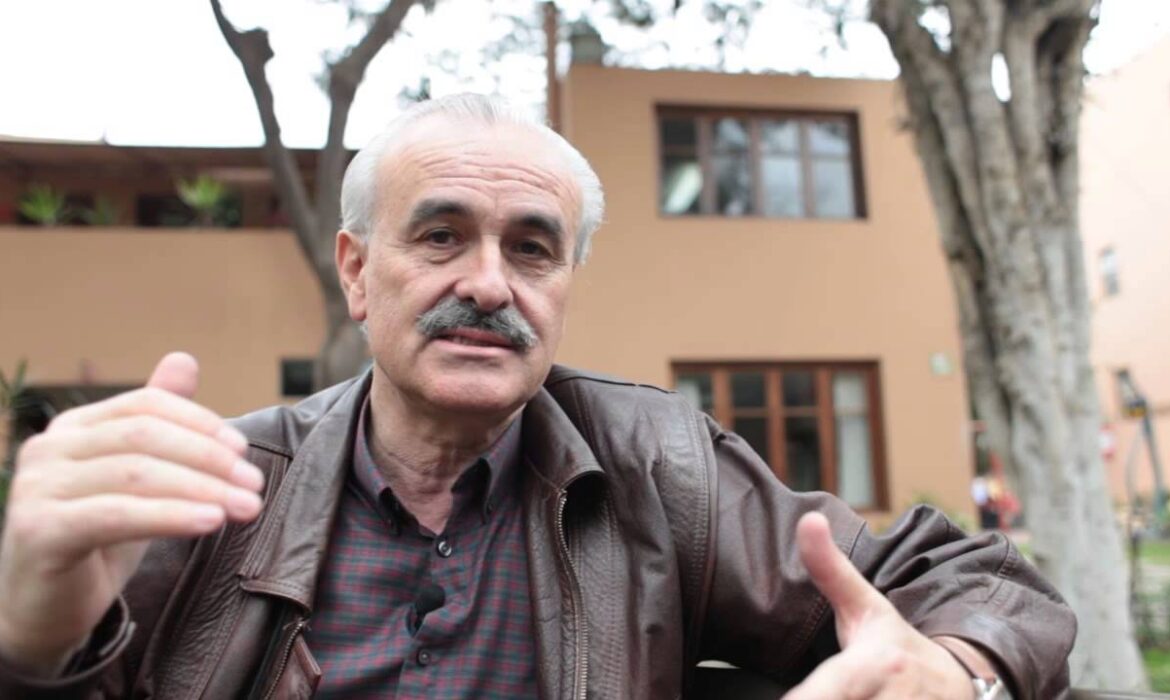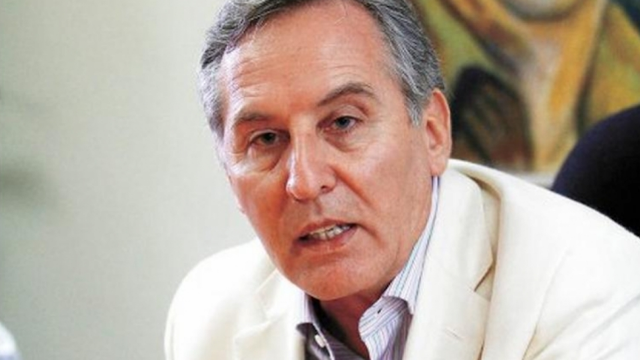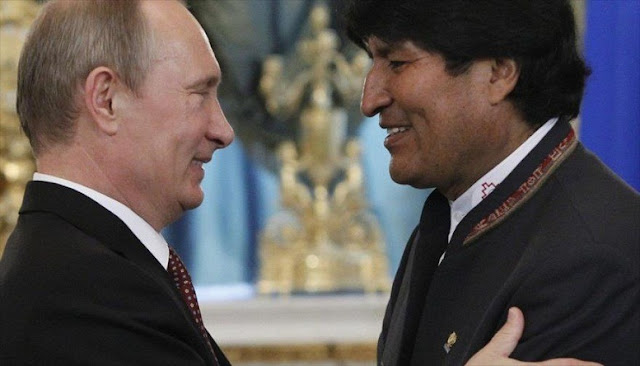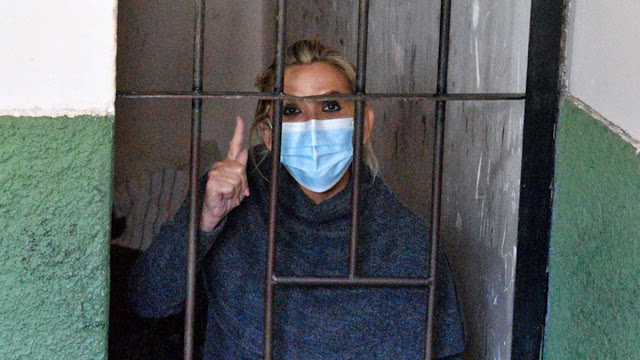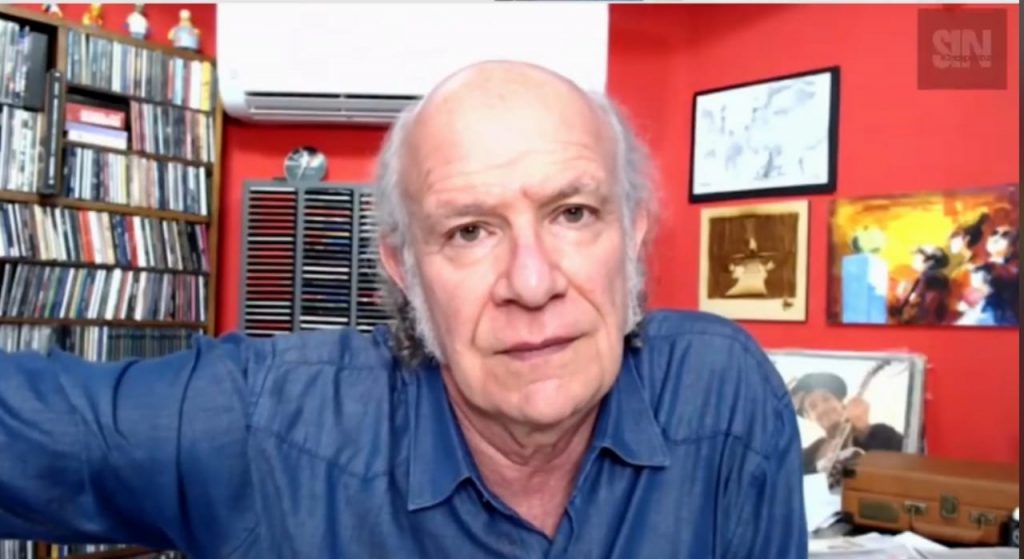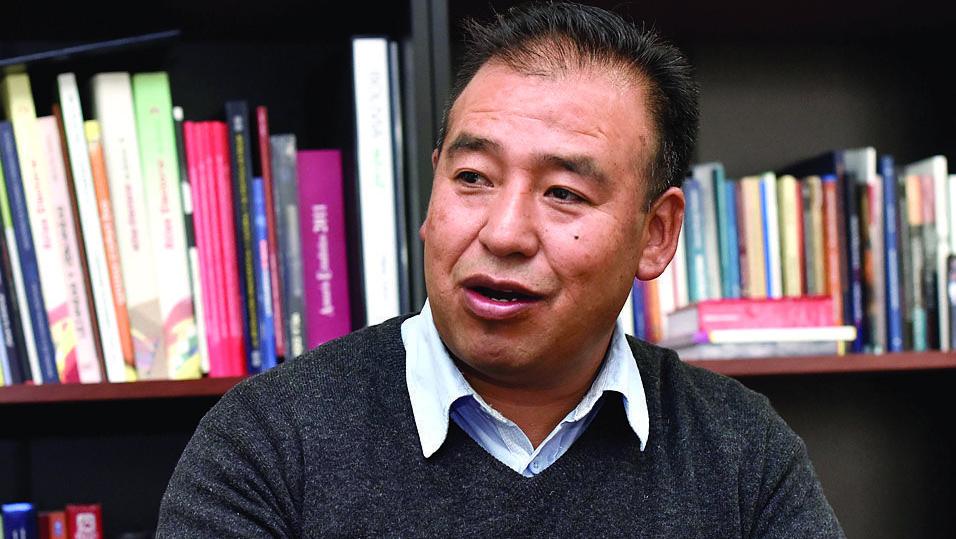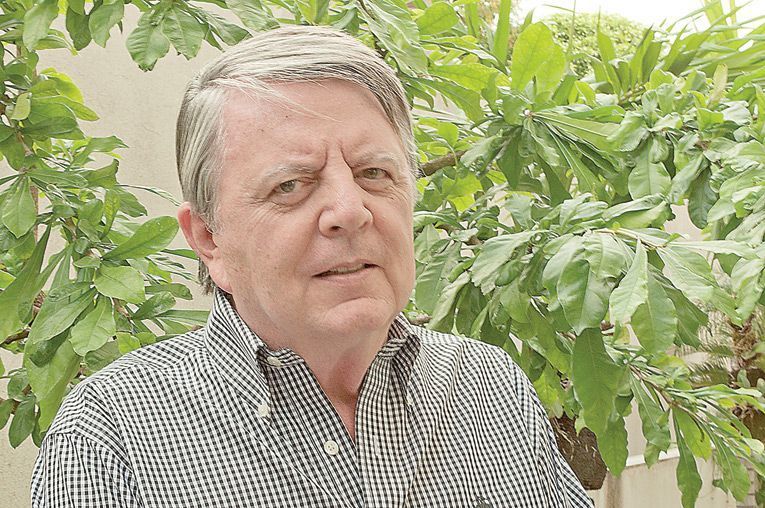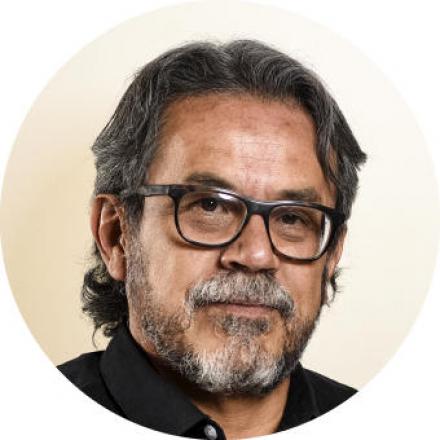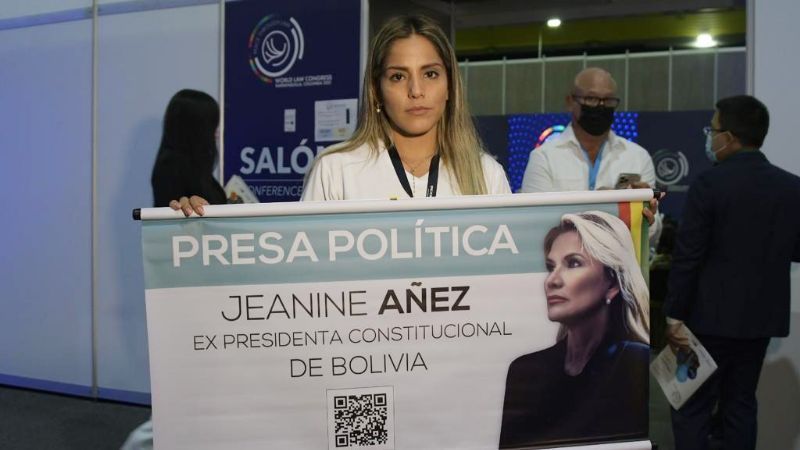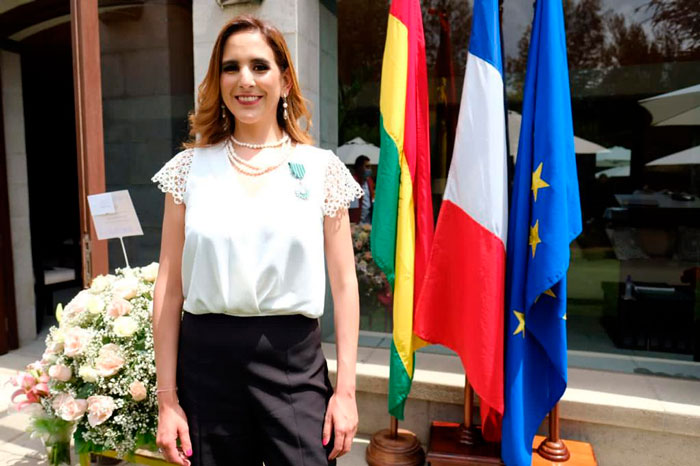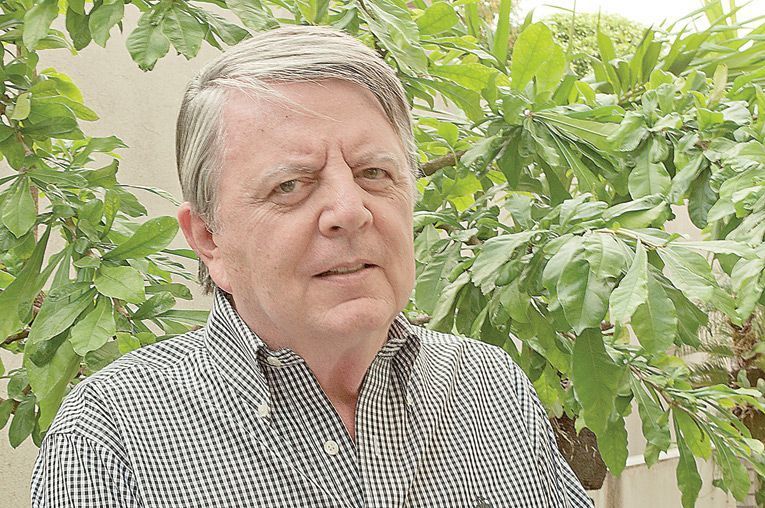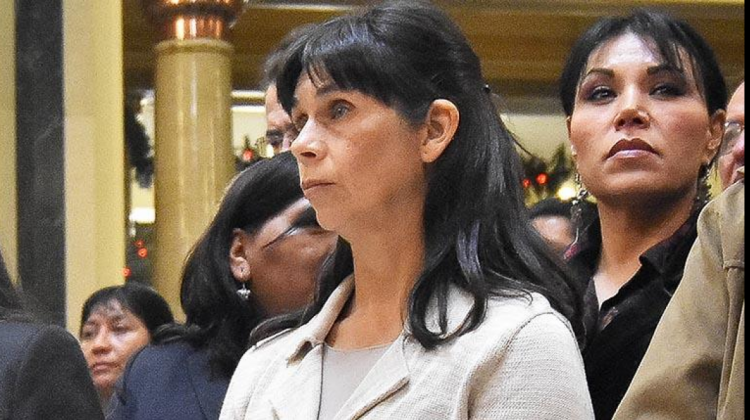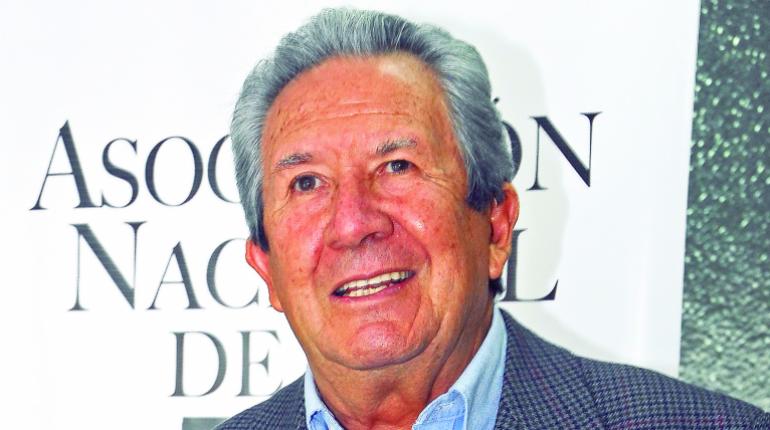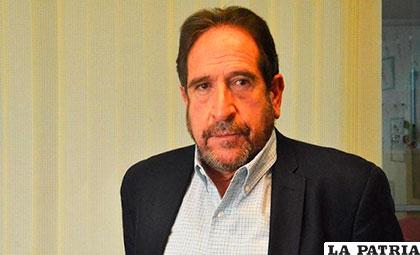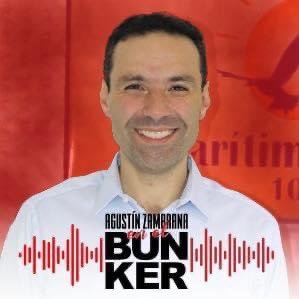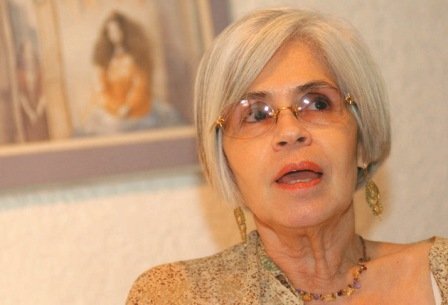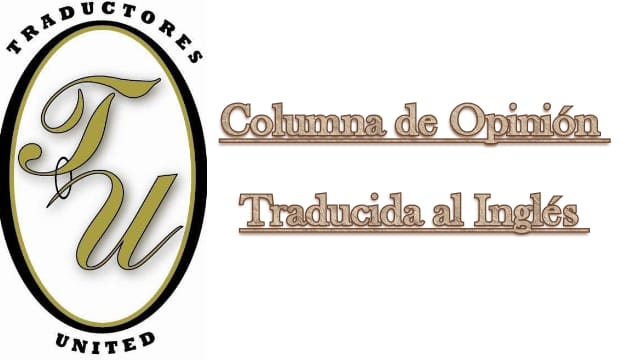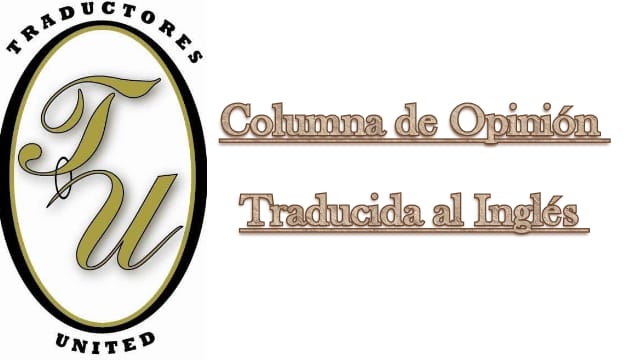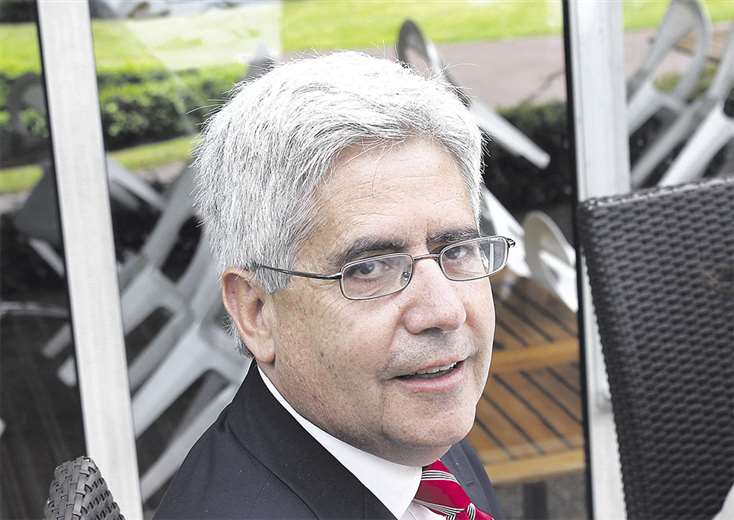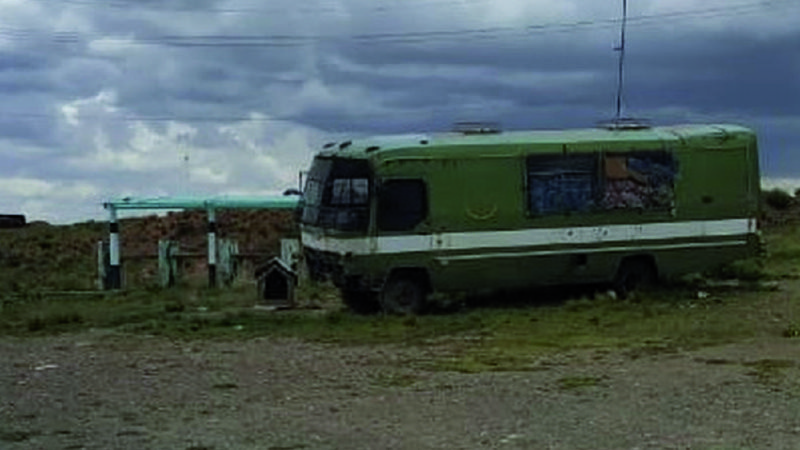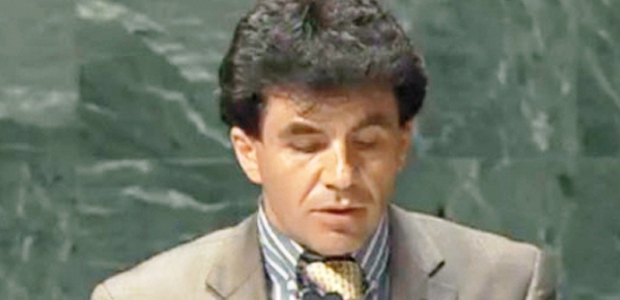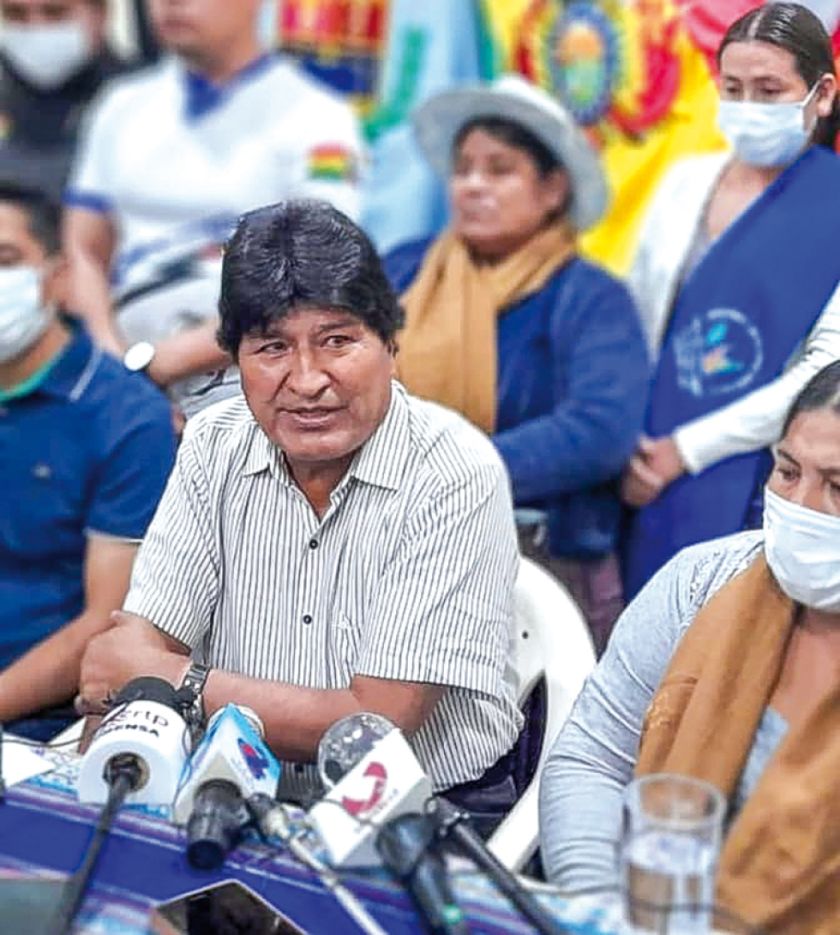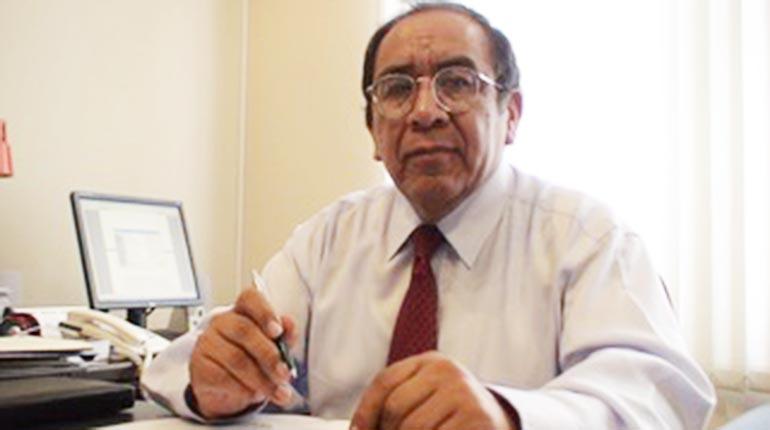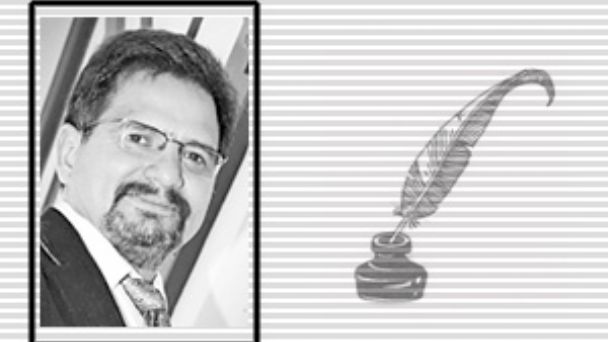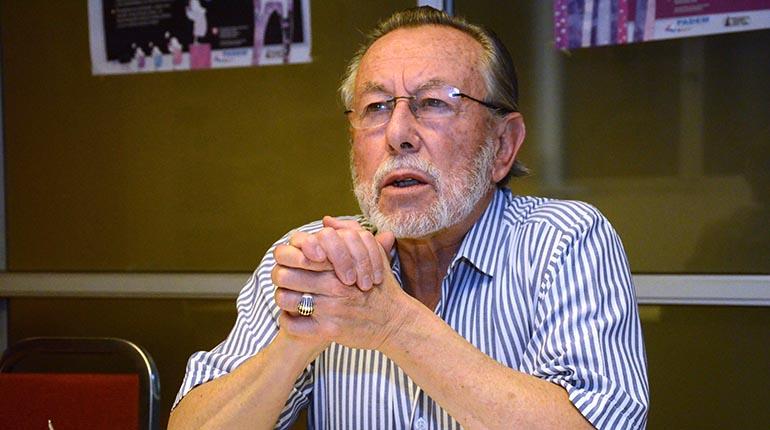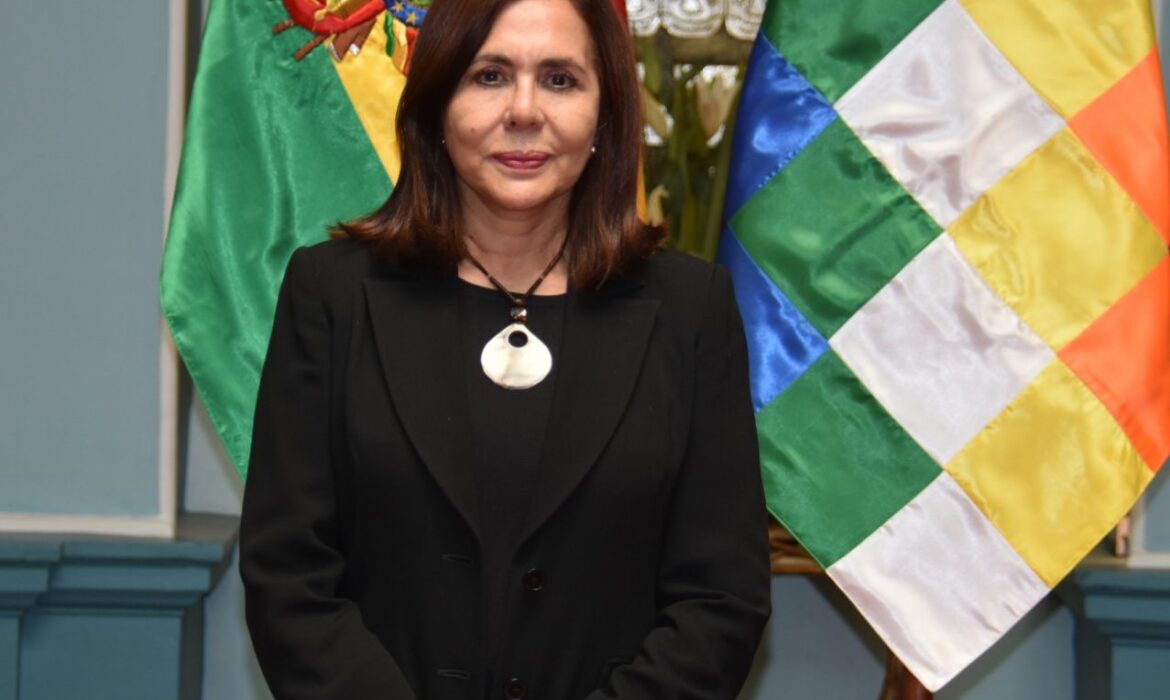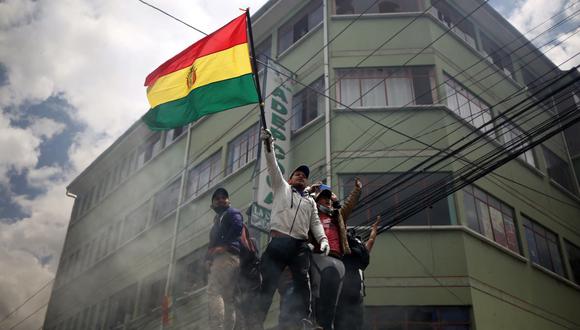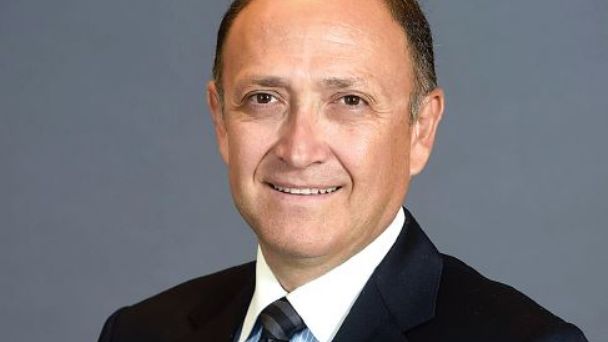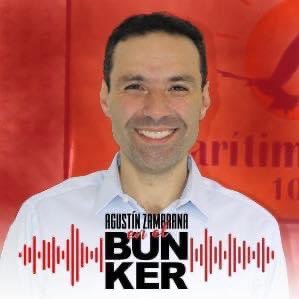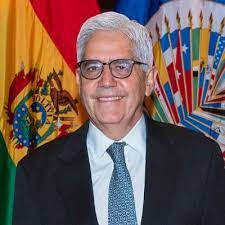“What is happening to Bolivian diplomacy today did not happen even in the worst dictatorships,” said Viscarra.
The diplomat made observations about the country’s foreign service and proposed ways in which the national diplomatic service can be redirected. He recommends that we leave our ostracism and open ourselves up to the world.
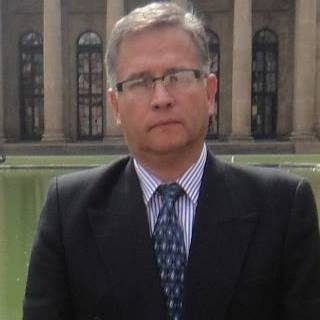
24 December 2022
Javier Viscarra, a diplomat and former official of the Ministry of Foreign Affairs, states that the national foreign service is going through its worst moment. He assures that what is happening today has not happened “even during times of military dictatorship.”
In an interview with Página Siete, Viscarra made several observations about the management of the country’s foreign policy. He also spoke about the need to redirect the diplomatic service for the benefit of Bolivia.”
It was proposed that there should be an institutionalized diplomatic service, what is your opinion on this? How should this process be carried out?
The country needs to start a strong foray into various economic processes, we must leave the ostracism to which the ideologization of our international relations has subjected us and open ourselves up to the world.
We are not observers in the economic and trade integration mechanism of the Pacific Alliance, in which Peru, Chile, Colombia, and Mexico negotiate with one of the most important markets in the world, Asia.
How should the restructuring of the Ministry of Foreign Affairs be?
It is possible to work based on many of the current diplomatic professionals, but above all, within the framework of Law 465, which is very clear. It is urgent to rethink the return to the institutionalization of the Ministry of Foreign Affairs and have a serious diplomatic corps.
I also believe that we should not cling to centralizing thinking and stop thinking that only in La Paz are there diplomats. There are professionals throughout the country. In Santa Cruz, some universities offer an International Relations major.
What government do you consider to be the worst moment for the foreign service?
The issue does not cross the government’s mind, but rather the perspective of the Ministry of Foreign Affairs, and the worst moment is that of the current Minister, Rogelio Mayta, who is not doing the Government of President Luis Arce any good. What is happening to Bolivian diplomacy today did not happen even in the worst military dictatorships.
Bolivia abstained from voting against the war in Ukraine, how does this type of action leave us internationally?
The strabismus suffered by Bolivian diplomacy is worrying. On the one hand, we consider ourselves to be a pacifist country, as our Constitution states, and on the other hand, we abstain from condemning the aggression of one country against another.
Again we fall into the submission imposed on us by certain international actors. These powers use us when they want our vote in international forums, and unfortunately, our Ministry of Foreign Affairs submits and votes in their favor.
Bolivia did not vote against Iran at the UN for the repression of recent protests. Will this type of action have consequences for the country on the international stage?
Bolivia should have clearly expressed its indignation at the death of a young woman for not properly wearing the veil covering her head. The international pressure has been so strong that Iran has ended up reconsidering the continuation of its moral police.
What do you think of Bolivia’s stance on the crisis in Peru?
I believe that this is another incomplete reading of the facts, influenced again by a political line rather than concrete facts. It has been an unfortunate decision to join Mexico, Colombia, and Argentina in a joint statement saying that the former Peruvian president was a victim of “antidemocratic harassment.”
What is the difference between the old Diplomatic Academy and the current one?
The first difference is that there used to be a Diplomatic Academy, but now there isn’t. Before, there was a focus on excellence in training through agreements with major universities so that the curriculum was recognized. Today, training is reduced to a few hours in courses offered by the Plurinational Public Management School, so that “new diplomats” can perform duties in the central service and in our embassies. It goes without saying that the expected result of such improvisation is questionable.
Was it a mistake to judicially address the maritime issue?
I believe that the biggest mistake was not considering the overall picture of international relations and public international law, which probably was not ready to admit this new international law on which Bolivia based its claim. But it was not just this lack of perspective; it was also the failure to continue exploring other diplomatic alternatives instead of submitting our maritime cause to judicial proceedings, only because of the dictates of the country’s internal politics.
Javier Viscarra, Diplomat.
Gary Prado is more than just the capture of Che
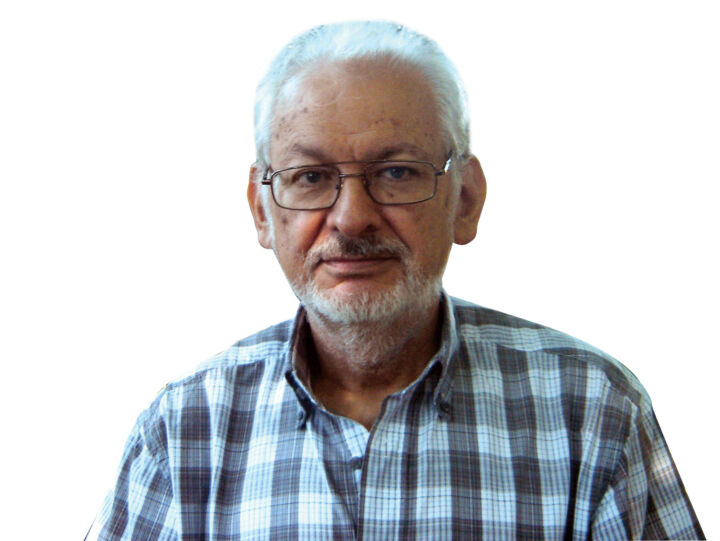
8 May 2023
Gary Prado is more than just the capture of Che
I apologize to my kind readers if today I comment on something that touches me closely but that I think is of interest to the whole country: General Gary Prado Salmon has left us, a remarkable and multifaceted character, outstanding in many activities beyond his military career.
Gary Prado is known for having been the officer who captured Che Guevara and turned him over to authorities. Without a doubt, it was a military action of national and international relevance, but Gary Prado’s figure goes far beyond that military action.
Gary Prado was also a valuable intellectual, researcher, historian, politician, diplomat, role model, and renowned university professor.
His intellectual production includes a book on the history of the Armed Forces and another on the Revolutionary Nationalist Movement (MNR) and the Armed Forces.
His work on guerrilla warfare called “The Immolated Guerrilla,” published in many languages and in several countries, is the best text on Che’s guerrilla warfare. Another very important work is the account of President Siles’ kidnapping, a subject unknown to many. He was preparing his autobiography, which unfortunately will remain incomplete.
Gary Prado was part of that group of young institutionalist officers who in 1974 demanded immediate national elections from the military power. The Government accepted the proposal, but within a few hours, the main leaders, including him, were either imprisoned or exiled.
The opportunity presented itself again in 1978 when the young institutionalists with General Padilla installed a new government with the sole objective of calling elections in six months, and so it was, a unique case of clean elections without an official candidate.
Gary Prado was the Minister of Planning in that Government and from that position supported and promoted the creation of the Development Corporation in Santa Cruz, handing over the leadership of the process to the group of young professionals who were already working on the issue with a specialized consulting firm. It was the team that, led by Oscar Serrate, consolidated the Santa Cruz development model from the public sector, with broad participation of civil society. It is within this framework of collaboration with the Ministry of Planning that the construction of Viru Viru Airport was consolidated.
Gary Prado placed himself politically in the center, away from all kinds of extremism.
As Commander of the Eighth Army Division, he calmed the region with his negotiating and conciliatory skills, rather than using force. He was the guarantee for peaceful coexistence, intervening in conflicts always with great intelligence and knowledge of the issues. His word had credibility.
Being an impeccable career military man, he had to endure ten years of a process of terrorism with which he had nothing to do. Why was he included? According to some sources, it was an imposition of Cuba, but also because the crude scheme invented needed a person with military and strategic capabilities to be credible, and he fitted that profile. But, as expected, that trial could not even stand for ten years.
It is worth noting the significant support that Gary had during these ten years: that of his son Gary, who, as a lawyer with great ability, defended him and several other accused who did not have resources, and that of his wife Maria del Carmen, who accompanied him with great love and supported him with the ferocity of a lioness. The constant presence of journalist Harold Olmos should also be noted, who later published a meticulous and precise book of over 500 pages about the trial, denouncing the arbitrariness.
He was a highly appreciated professor by Private Technological University of Santa Cruz de la Sierra (UTEPSA) students because, with his enormous capacity and culture, he opened the eyes of young people to the complexity of the world in which we live.
Finally, he was president of the Cedure board, always accompanying our activities.
I want to conclude this comment with a phrase that a friend sent me, which summarizes some of my feelings toward him: “The general was a beloved and admired man.” A great achievement in life.
Source: https://eldeber.com.bo/edicion-impresa/gary-prado-es-mas-que-la-captura-del-che_324313
BOLIVIA, AN INVISIBLE DICTATORSHIP

Former Mayor, Minister of State, and Chancellor of the Republic of Bolivia
10 May 2022
BOLIVIA, AN INVISIBLE DICTATORSHIP
For decades it was said that Mexico lived under a “perfect dictatorship.” After the revolutionary process, the Institutional Revolutionary Party (PRI) was established in 1929 and ruled with an iron fist for more than 70 continuous years. It was a kind of intrinsic contradiction because a revolution –radical and often violent change– occurs by episodes and, therefore, cannot be “institutionalized.” What was institutionalized in that country was a dictatorship in disguise.
It was a fantasy that Mexico wanted us to swallow because, in reality, its system of government was reddish on the outside but pure green and hard on the inside. That country was a refuge for foreign guerrillas or leftist intellectuals, who were forbidden to interfere in domestic politics, but were given the freedom to foment the insurrection wherever they wanted, being Fidel Castro and his gang, with Che Guevara, their best exponents.
Meanwhile, internally, Mexicans became infamous for the “Tlatelolco Massacre,” which occurred in the face of the 1968 student revolt in their capital city, which demanded a political opening to the PRI regime, which was continually in power –as a medieval dynasty– with hereditary succession.
That political parody continues today with the worst President of its history, the populist demagogue Andres Manuel Lopez Obrador, a former PRI member, senile and ignorant, who is already the shame of that great nation, and who has sheltered in Mexico the conspiratorial brain of “Socialism of the 21st Century.”
After years of ruminating on the defeat of the USSR in its attempt to establish a military presence in Cuba, after the Missile Crisis of 1962 and the fall of the Berlin Wall in 1989, Russia decided to face its defeat in the Cold War with a strategy of subversion in Latin America, of long breath, which consists in using liberal democracy to capture political power and destroy it from within. To this end, it implemented, through its agents in this region, the best and most refined subversive communication campaign, and the penetration of civil society institutions to stir up political discontent, through the “social action” of mobilized minorities.
In this effort, after the resounding failure of the “socialist-communist” model in Cuba, Venezuela, and Nicaragua, Bolivia established itself as a “successful” model of this evil project. Using that strategy, Evo Morales took power in Bolivia in 2006, with Russian-Mexican-Venezuelan-Cuban strategic support.
This project of political action, of continental nature, aims to overthrow the different republican identities of adherence to their respective countries, replacing them with foreign social categories to create transversal alliances throughout the continent, under a single ideology and political structure aligned with Moscow, in an authoritarian dictatorial, single-party, and “democracy” model administered from power.
The confirmation of this political “model” has been made evident by the Chilean revolt of October 2019, which has followed to the letter the insurrectional script that took place in Bolivia from the year 2000.
Following the Mexican parody, the current Bolivian Government simulates democratic norms to govern as a tyranny, violating all the precepts of the Inter-American Democratic Charter, but with a millionaire spending on propaganda, and the siege of the independent press. In doing so, it has so far succeeded in “making its dictatorship invisible.”
Luis Arce Catacora presides over a dictatorial government, as arbitrary and criminal as that of his predecessor and mentor, Evo Morales, who has turned Bolivia into a refuge for drug trafficking, institutionalized corruption, keeping more than a thousand dissidents in exile, and hundreds of political prisoners, including former President Jeanine Añez, imprisoned without a sentence more than a year ago, in violation of all her constitutional and human rights.
It is the “invisible dictatorship” of Bolivia, which must be sanctioned as such and not invited to the table of democracy, in Los Angeles, next June.
Source: http://www.cabildeodigital.com/2022/05/la-diplomacia-de-la-verguenza.html
THEIR TIME IS UP
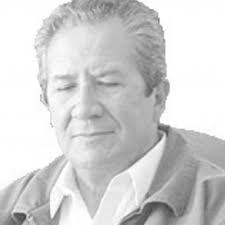
Journalist
20 February 2022
Their time is up
It took a long time, but the time has come when the “empire” identified drug trafficking as an ally of the axis of autocracies and has decided to fight it throughout the world.
For Bolivia, this means the end of an era, marked by the political dominance of figures and organizations linked to drug trafficking, who had managed to control all the institutions of the democratic State.
The country has been demolished by this force. Drug trafficking has as its servants the Armed Forces, the Police, justice, all State institutions and has almost achieved total control of the media.
But now America’s war has begun with worldwide scope. The trigger was the DEA announcement that the Venezuelan Alex Saab, now imprisoned in Miami, had been its informant since 2017. A key element of the Los Soles Cartel, created by Hugo Chávez and his Bolivian supplier to bring drugs to the United States, passing through Cuba.
Europol is arresting hundreds of drug traffickers in six European countries, including Spain, former Honduran President Juan Orlando Hernández has been extradited, members of the Jalisco Cartel and all the Mexican cartels are being persecuted, the Brazilian Government is mobilizing against the drug commandos and the United States requests the extradition of Bolivian Colonel Maximiliano Dávila, to begin with.
This 21st century war has only just begun. The United States has decided to put an end to the economic and political power of drug trafficking for an elementary reason in any war: drug trafficking is allied with the enemies.
In our region, that economic power came to create an organization that rivals the OAS: the alliance of Narco-States, of which Bolivia is a key player. After all, it is the only country on the planet whose President was the head of the largest suppliers of raw materials for the manufacture of a drug banned by the UN.
Not even in Afghanistan had the drug traffickers gone that far. In that poor country, the world’s leading opium producer, drug traffickers proposed to create a political party, but it was rejected by parliament in the 1980s.
In Bolivia, that political party was not only created but has managed to govern the country for fifteen years.
But their time is up. The culprits have been silent and the main one of them prepares his escape.
Proof of the political party’s degree of dominance over justice is that prosecutor Juan Lanchipa continues to defend Colonel Dávila, who is accused of having conspired to bring a ton of cocaine to the United States.
It is assumed that when the entire framework has been dismantled, and their leaders are imprisoned in Miami or Guantanamo, all the institutions that had been controlled will recover their independence and the country can be reborn from the ashes.
Source: https://www.lostiempos.com/actualidad/opinion/20220220/columna/les-llego-su-hora
A PARALLEL WORLD OF LIES
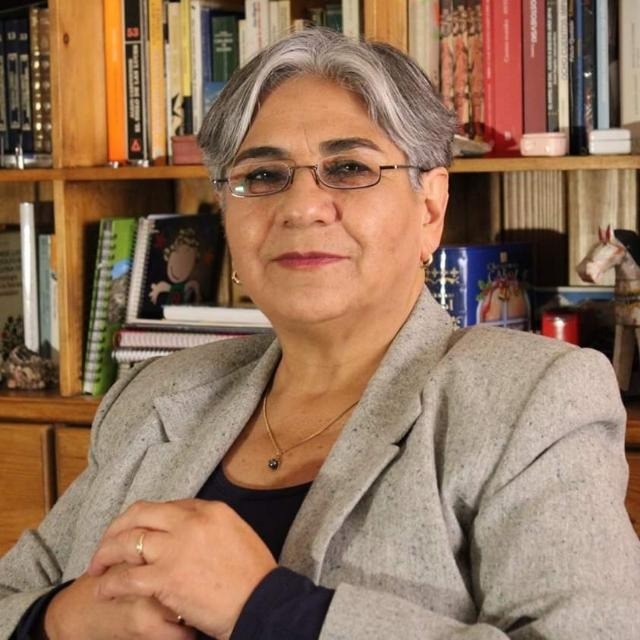
14 February 2022
A PARALLEL WORLD OF LIES
President-dictator Luis Arce announced from Oruro the discovery of new gas reserves and it is a complete lie. He said: “last year we started an exploration in the Margarita-Huacaya well, they are giving us good results, brothers, we are finding gas reserves in this well that we explored during our administration…”
The Arce Government did not do or discover anything, although it has spent a lot of our tax money to claim false success for its administration.
MARGARITA AND THE NEOLIBERALS
The discovery of Campo Margarita occurred in 1998, in the Government of Hugo Banzer Suarez when Tuto Quiroga was the Vice President. This field located in Tarija was joined by Huacaya, which is in Chuquisaca, which is part of the same natural gas reservoir, the most important at present.
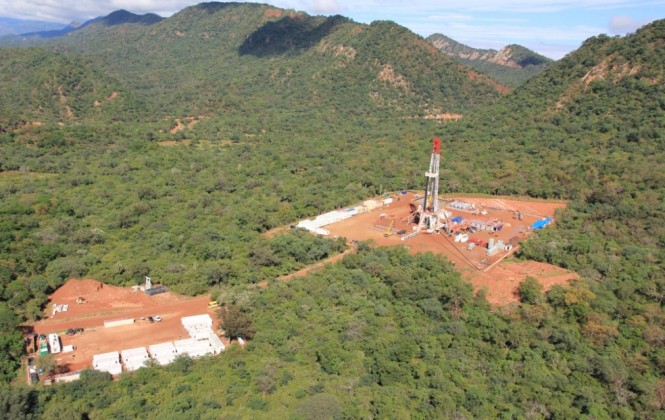
Production began in 2004, two years before the first administration of Evo Morales, and since then it has been in charge of the Spanish transnational Repsol and its partners British Gas and Panamerican Energy.
In 2012, Chuquisaca just began to receive royalties and faced Tarija to obtain a greater percentage of participation, which finally remained 24.9% for Chuquisaca and 75.1% for Tarija.
In 2013, REPSOL was successful in the Margarita X 6 well, which began to produce 6 million cubic meters per day, and that year production was inaugurated in the Margarita X 10 well, success and merit that Luis Arce claims for himself.
To better understand, the specialist Alvaro Rios said that it is an additional faucet placed in a water tank, in this case in a gas reservoir.
The production of the Margarita X10 will barely be enough to meet the export commitments with Argentina, but it will not increase reserves or reverse the general decline in gas production that has been falling since 2016.
LUISITO EARNS ONLY 30 THOUSAND
Finally, the president of Bolivian Fiscal Oil Fields (YPFB), Armin Dorgathen, admitted that Luis Marcelo Arce Mosqueira had worked in that state company but “in no executive position” and denied that he had earned 50,000 bolivianos a month, “only 30,000,” he said.
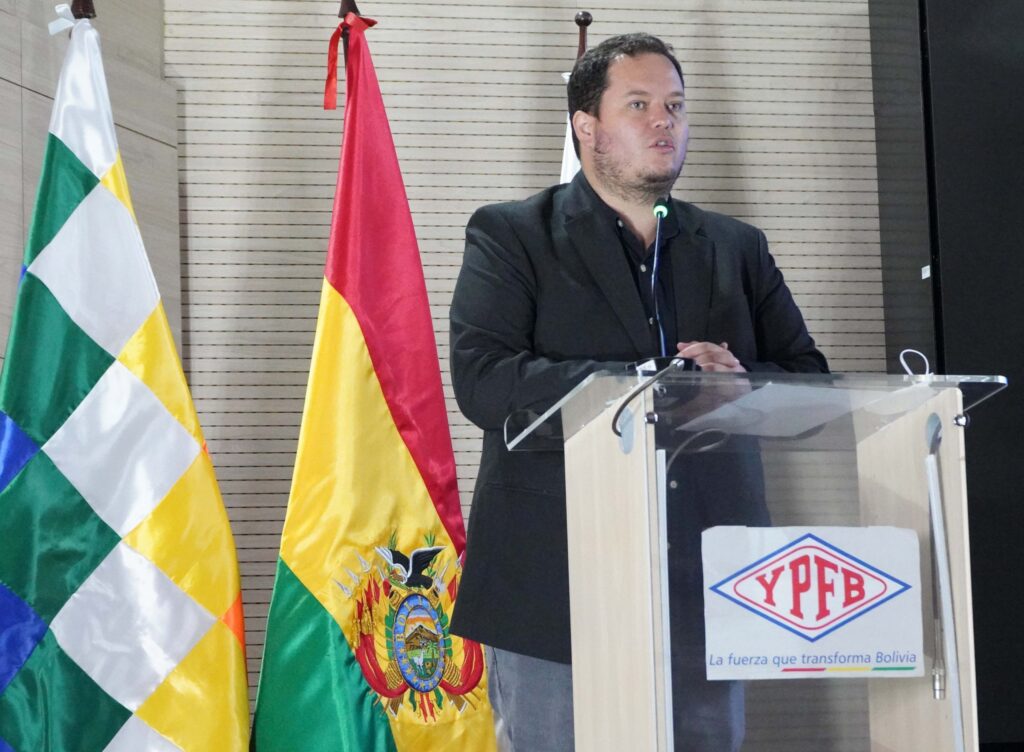
The lie has become the truth of a parallel world in which the MAS Government moves. President Arce’s son, Luis Marcelo, has been in the [Oil] Field Projects Department, traveling and promoting biodiesel plants. He has also entered into negotiations with the Maduro regime for the hiring of Venezuelans at the Bulo Bulo Urea plant, with such high salaries of 70 and 35 thousand dollars a month, that an investigation is warranted.
Then, Luis Marcelo went to the Chaco subsidiary where the advertising contracts were made for the Brazilian Andre Molabek with whom he campaigned for his father.
At this time, according to reports from the Comptroller’s Office, he continues to work at YPFB. But, in addition, the very appointment of Armin Dorgathen in the presidency of YPFB has been a move by Luis Marcelo who will surely soon say that he does not know Molabek or Dorgathen.
Presumably, they also do not know that in YPFB 821 union leaders have been declared in commission, that they have union immunity and therefore are untouchable, and that 176 of them earn without working salaries that on average are 20 thousand bolivianos.
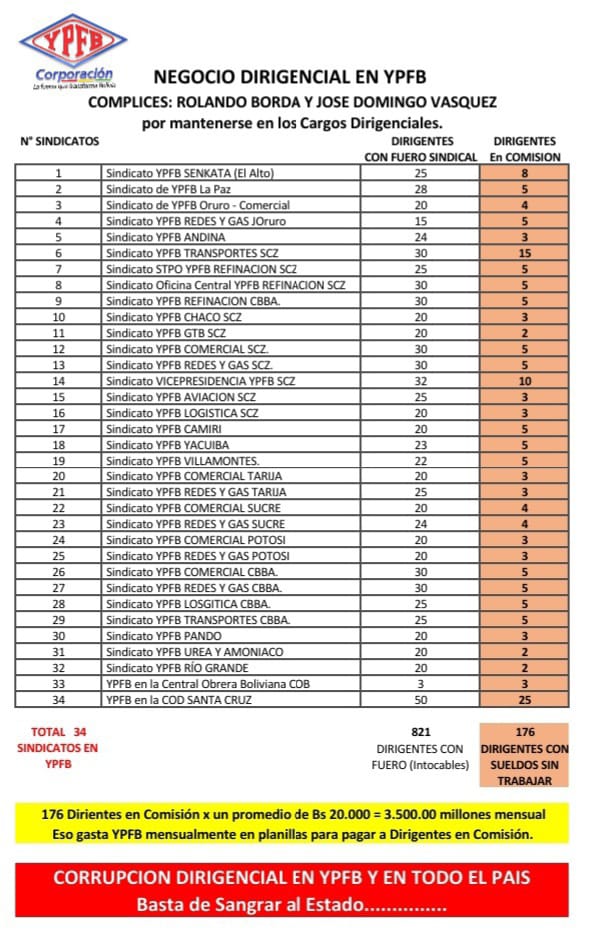
It is that, in the parallel and blue world, everything is “blue” and they are not known. For example, the Minister of Hydrocarbons Franklin Molina said in a report to the Legislative Assembly that he did not know that there were foreigners at the Urea plant and Evo Morales did not know Gabriela Zapata who was just “a familiar face” and did not know his boss in the FELC-N, the drug trafficker Maximiliano Dorado.
A COUP D’ETAT
In this world of persistent lies, Ivan Lima is the head of the Inquisition against the coup plotters who removed Evo Morales in 2019. There was no fraud, no resignation, no flight. There was a coup and the coup plotters have to pay for it.
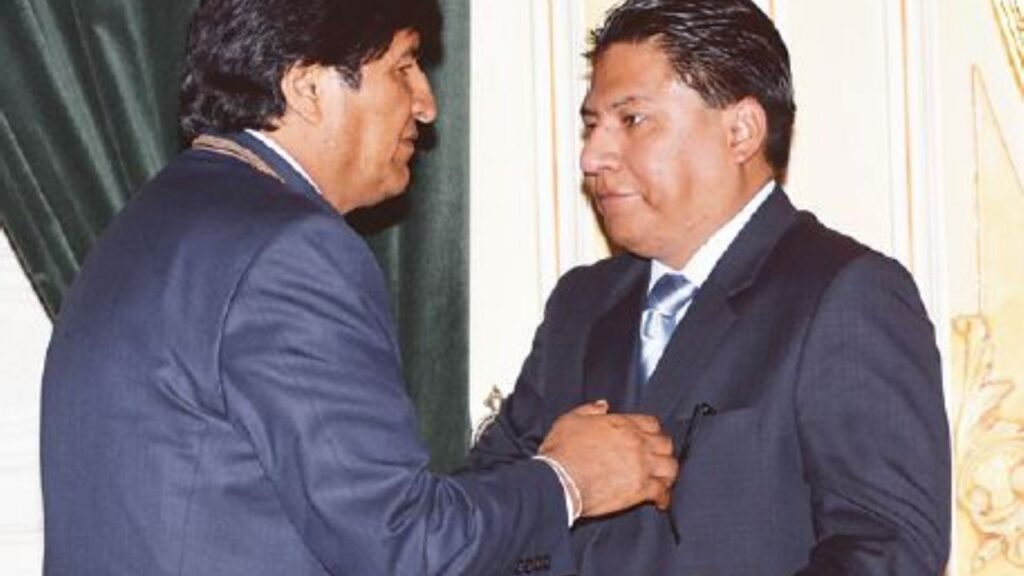
The relatives of two soldiers imprisoned for this fiction, Gonzalo Terceros, from the Bolivian Air Force (FAB), and Gonzalo Jarjuri, from the Navy, announced that both will undergo a short trial because, in the current circumstances, where there is not even a dim light at the end out of the tunnel, that was the chance to get out in four years.
The head of the Inquisition, who says he is not aware of the Government’s interference in the Judicial Body, assured that there will be no abbreviated trial if both former military chiefs refuse to plead guilty and acknowledge that there was a coup.
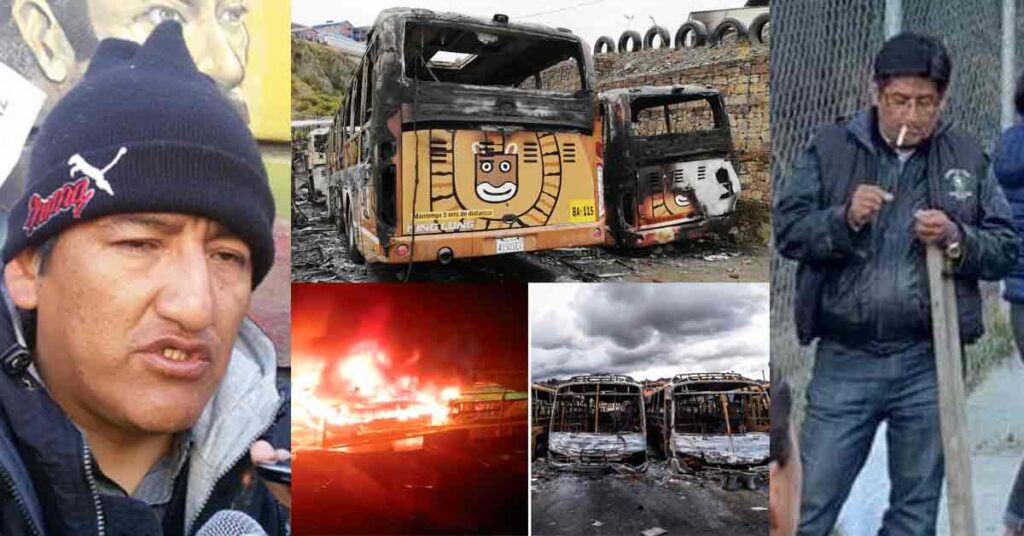
In this world parallel to reality, there are no political prisoners or corruption in YPFB. The PumaKataris arsonist, Jesus Vera, is free and can persecute the former Mayor Luis Revilla, and the Governor of Potosi, Jhonny Mamani, is also free of charges in the purchase of the 41 ghost ambulances, the person responsible had been an opposition member.
The question is: do we go along with them like crazy people or do we risk everything to replenish sanity and truth?
Source: http://www.cabildeodigital.com/2022/02/un-mundo-paralelo-de-mentiras.html
JUSTICE IN BOLIVIA: FROM CRISIS TO CATASTROPHE
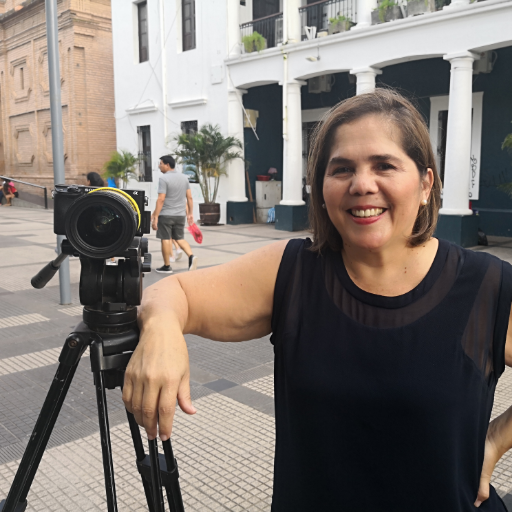
Journalist
6 February 2022
Justice in Bolivia: from crisis to catastrophe
Definitely: what justice is facing today in Bolivia has ceased to be just a crisis (as if it were not enough that it is in a “serious and decisive situation” that “endangers” the very survival of the country), to transform into a true and frightening catastrophe. That is, in an “unfortunate event” that is causing “great destruction and many misfortunes, with serious alteration of the normal development of things.” The inverted commas allude to what crisis and catastrophe expressly mean, according to the RAE. A notable difference that, in the case at hand, illustrates very well the distance between saying that Bolivian justice is in crisis, to affirm, without fear of falling into exaggerations, that what it faces is a catastrophe.
The horror discovered after the capture of Richard Choque Flores, confessed author of a series of crimes committed under cover of impunity granted by judges, prosecutors, lawyers, police officers, and others, supports that qualification: a catastrophe. Not because it is an exceptional, unique case, but rather because it has confirmed that the exception has become the rule, with a long chain of very well-organized actors in what the Minister of Justice himself has described as a mafia. A mafia in which many of those responsible for fighting crime and/or administering justice participated (and undoubtedly still participate), in whose payrolls stand out -in number and in the power of action- those openly identified as operators of the central power.
The Choque case reveals a perverse intertwining between common crimes, including the most serious ones such as those committed by Choque, and those considered political, the latter mostly disguised as crimes against “State security.” All of them were put in the same bag by that judicial and extrajudicial mafia recognized by the Central Government through one of its Ministers. A mafia that has been active since at least 2013, always according to the Minister, although it is difficult to believe that it has not been for more years. A mafia that, however, has been acting not only to do business with the release of confessed psychopaths like Choque, but also to fulfill political favors that translate into the judicialization of politics, in political persecution, of which there are plenty of examples.
Of course, this last part is not present in any of the statements made by the authorities of the Central Government or by the leaders of the ruling party, despite being consubstantial to the underlying problem, referring to the “Rotten Justice” pointed out by more than one voice in Bolivia. A rot that contaminates everything and that is a real threat not only for the thousands of Bolivians who already live first-hand the lacerations caused by these judicial and extrajudicial mafias but also for the millions of Bolivians who, for now, believe they are safe from the clutches of those mobsters. A threat that urgently needs to be curbed, from civil society, articulating actions that are aimed at achieving authentic judicial reform.
Source: https://eldeber.com.bo/opinion/justicia-en-bolivia-de-crisis-a-catastrofe_266430
UKRAINE AND ITS IMPORTANCE FOR BOLIVIA
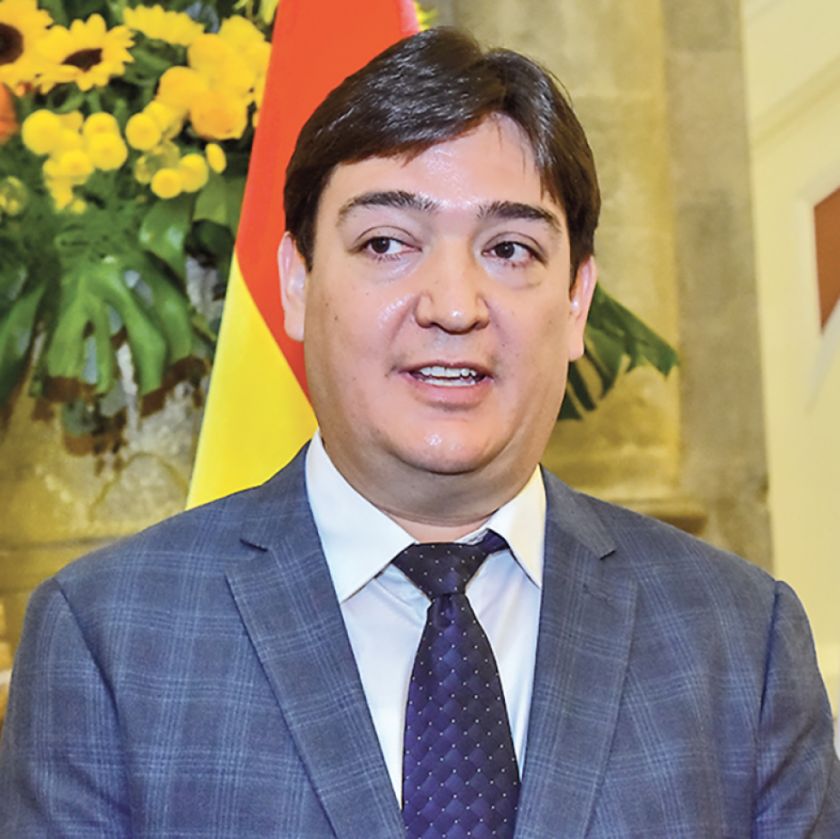
Former Attorney General
2 February 2022
Ukraine and its importance for Bolivia
Vassily Nebenzia, Russian Ambassador to the UN and an exponent of old school Russian diplomacy, had to leave the unfinished session of the United Nations Security Council itself, notably upset, where the United States had unexpectedly managed, by ten votes in favor, three abstentions, and two refusals, to put into discussion and public debate the reasons for the large displacement of troops and weapons by the second military power in the world, powerful Russia, to its border with its weak neighbor, Ukraine.
As the Russian Ambassador stood up from his country’s coveted permanent seat on the Council, US President Joe Biden himself issued a press release from Washington, announcing that they are “ready no matter what,” if “Russia chooses to move away from diplomacy and attack Ukraine.”
Are these events, of the highest relevance in world geopolitics and that involve territories literally on the other side of the world, also of interest, and should they concern Bolivia, and the role that its Foreign Ministry should play?
Possibly the a priori answer could be negative, since in said conflict it is the first and greatest world powers that face each other, using their best and most powerful diplomatic and military weapons to do so.
However, in the current world scenario, the advance of multilateralism has allowed the other countries of the so-called international community, and not only the great powers, to intervene with an impact in the management of the different crises of world politics. And in this framework, it was already up to Bolivia in the years 2017 and 2018, occupying a seat in the UN Security Council, and even directing and moderating in the exercise of the rotating Presidency of said body, the discussion, and management that in its moment the UN had to face in relation to the civil war in Syria, and that also compromised the geopolitical interests of the US, Russia and the other powers.
Being a free and sovereign nation not only means claiming non-interference in the internal affairs of your own country, but also getting involved, actively and responsibly, in the future of international politics, since this, inevitably, forges the world order that ends up dictating the real possibilities so that all of humanity, including us Bolivians, can live and achieve our desired development, without violence, war, or injustice.
It is in the interest of Bolivia, that in handling the crisis in Ukraine, the abuse and unilateral will of the nation with the strongest army does not prevail, but rather that the principle of territorial integrity of States, the full sovereignty of countries, that all the norms of International Law are observed and respected, and that the international organizations be effective in containing the military or economic force of States as a means of resolving their conflicts, and that there is no international setback towards the right to declare wars of aggression already prohibited by the Charter of the United Nations.
Bolivia is so interested in the preservation of these aspects that its great national interest, which is its centennial maritime claim, depends on the maintenance and development of the majesty of International Law and multilateralism; and that is why our Foreign Ministry, emulating the effective votes cast by Mexico and Brazil in the Security Council in which they now hold seats for Latin America, and which supported the discussion motion that only Russia and China refused, concur assertively to avoid at all costs that on the international scene a more powerful nation than another, whatever it is called, acts with abuse and arbitrariness against a weaker one, and it is in this direction, and no other, that all Bolivians hope that our international policy will be conducted.
Source: https://eldeber.com.bo/opinion/ucrania-y-su-interes-para-bolivia_265923
HYPOCRISY, BAD IDEAS AND HALF-TRUTHS
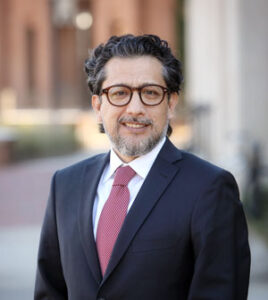
PhD in Economics
31 January 2022
Hypocrisy, bad ideas and half-truths
The speech delivered by President Arce on January 22, during the celebrations for the anniversary of the Plurinational State, was a true display of hypocrisy, bad ideas, and half-truths. Probably the only redeeming feature was that it lasted only 40 minutes instead of the usual two hours of endless boring speech.
Let’s start by saying that there was nothing to celebrate here. The conversion of the Republic to the Plurinational State is a historical absurdity that does not deserve any celebration. One thing is multiculturalism, which one welcomes, but another thing is to establish nations or groups that, as the new Constitution says, have “the right to exercise their political, legal and economic systems according to their worldview.” This is nonsense because it means that a group that defines itself as a “nation” (and supposedly predates the “Spanish colonial invasion”) can have its own laws and apply its own justice as it sees fit. At this point, and when we are all mestizos and citizens of the same country, granting privileges to some and not to others is simply unfair and discriminatory.
Let us now turn to the speech. The 40 minutes began with a treacherous hypocrisy. The President said that in the “Colonial Republic” there was a “kind of social apartheid” in which there were “first-class and second-class citizens” with a “State that represented and benefited only a few.” Is such nonsense possible? Is it not now, in the multinational era of the MAS, that the true “social apartheid” is being experienced? Aren’t those with a blue card, the members of the party, those from the environment, the true “first-class citizens”? Don’t the MAS members do what they want with justice and put anyone who dares to contradict them in prison? Don’t they have a rule that obliges every public servant to be a member of their party? Make no mistake, President, now we have a State that represents and benefits only a few, you, the familiar faces, those who raise their little fists and persecute those who think differently. The rest of us, “second-class citizens,” can only tie shoelaces and see how the country is being divided.
Shortly after, the bad ideas start. The President mentions and praises socialism several times. He says that “socialism is being reborn in new soldiers of the process of change,” that his Government is based on the redistribution of wealth, that we must close the gap between rich and poor, and that we must fight against capitalism. For now much of that is rhetorical. For now, we are not a socialist country, although we are a country in which the State has an enormous and perverse influence on the economy and society. Bolivia is a repressed country in which there is no institutionality that generates economic freedom. We are ranked 172 out of 178 countries in the Heritage Foundation’s index of economic freedom, very close to countries that are socialist such as Cuba (176), Venezuela (177), and North Korea (178). The enormous influence of the State in society translates into a mountain of regulations and bureaucracy, and the absence of legal certainty. This pushes the country into the informal sector (80% of the economy) in which we survive with very low productivity and no hope of generating a solid production network. Instead of praising outdated ideas like socialism, the President should have to worry about moving us in the other direction. The most capitalist countries, that is, those that embrace economic freedom, are the ones that have been able to develop the most and have lifted the most people out of poverty. Ideas matter and it is time to tell the Government that its socialist rhetoric sucks.
Speaking of outdated ideas. The next blunder of the President (and of the Economic and Social Development Plan) is the announcement that Bolivia will develop using “import substitution industrialization.” Something crazy. ECLAC sold the story of import substitution to the region during the 50s, 60s, and 70s, and the only thing it achieved was to generate a deep crisis that lasted a decade (the lost decade of the 80s). Import substitution is a Chinese tale that has never worked and will never work because it ignores the fundamental law of international trade: countries must specialize in what they have a comparative advantage, that is, in what they can produce at a lower cost than the rest. If you do not have a comparative advantage in a certain product, it is rational to import it from countries that do. Do you think, perchance, that we should produce Quipus computers to replace the computers of China, Japan, or the US? Or that we should produce cars or cell phones to replace the ones we buy abroad? It wouldn’t make any sense to do so. It would be very expensive and we would use resources that are better used in what we can compete in.
And now we turn to the half-truths. The President proudly said that the growth of the third quarter of 2021 was 8.9%, somewhat less than the also bombastic 9.4% of the second quarter that appears on giant billboards next to his face. 8.9% seems high, but it is a lie. All growth is great if the starting point is the bottom of the well. Let us remember that in 2020 the country decreased by almost 9%. After such a strong drop, the recovery will always be high due to a statistical rebound effect. Note, for example, that Chile grew more than 17% during the same period, Colombia more than 13%, Peru more than 11%, and Argentina more than 10%. As you can see, our 8.9% is not as impressive as it is made out to be. According to Arce, we will grow 6% in 2022, but ECLAC and the World Bank expect only 3.2 and 3.5%, respectively. In an external context in which all variables are adjusting downward, it is much more likely that international organizations will be the ones to get it right.
And, of course, the President forgot to say that the country’s sources of growth do not come from a solid production network, but from the art of inflating the famous “internal demand” through deficits and debt. He did not say that we have had deficits for 8 consecutive years at an average of 8% of GDP, that our internal and external debt now comfortably exceeds 50% of our production, that the gas era is over, and that in a couple of years our hydrocarbon imports will be higher than our exports, that our international reserves have suffered a brutal setback and are now barely USD 4.6 billion when they were more than USD 14 billion in 2014, that the vast majority of public companies are in deficit, that we have more than half a million public employees, and that this year’s budget plans to spend 80% of the GDP! No, none of that, just hypocrisy, bad ideas, and half-truths.
Source: https://brujuladigital.net/opinion/hipocresia-malas-ideas-y-medias-verdades
CHANCELLOR BY FORCE
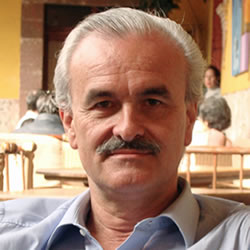
Writer and Filmmaker
22 January 2022
Chancellor by force
What can be said of a chancellor whose most important visible act has been to fall ill with Covid? For everything else he has been invisible: the shadowy operator of a repressive apparatus motivated by animosity and political revenge.
In the first scene of Molière’s farce “The Doctor in Spite of Himself”, Sganarelle, a poor and drunken lumberjack, is beaten into admitting to being a doctor (which he is not) and assisting a rich man who provides him a fortune. Attracted by that life that he never enjoyed before, Sganarelle decides to forever adopt the disguise of a doctor, although it does not go well for him at the end of the play.
The farce of the clueless and undiplomatic Foreign Minister of Bolivia has not been so amusing. He doesn’t even try to take on the role “by force” for which he was never prepared. When he makes headlines it is always for nefarious reasons, but most of the time he assumes the status of “disappeared”.
It is hard to conceive that at the head of Bolivia’s international relations there is a person who festers thirst for revenge and babbles social resentment, and who, can be noticed from a mile away, shows ignorance on diplomatic issues. Behind him, the shadow of Choquehuanca, his inspiration, and of Evo Morales, who appoints ambassadors from his entourage, can be discerned.
Disrupting and shattering the diplomatic rank, a corollary of an arduous job of classifying career professionals with many years of experience, was one of Mayta’s greatest blunders, as it resulted in the dismissal of 90% of foreign service officials, for being “snub-nosed diplomats, who liked to go to lounges to flex their little fingers while having cocktails,” (as he said). With that bitterness, he fired many career diplomats who worked in MAS governments.
The result of giving priority to his gallbladder was a year of abandonment of the 36 diplomatic missions of Bolivia. He summarily fired career diplomats, but also administrative and consular staff, including secretaries, auxiliaries, and local contract drivers, who had worked for Bolivia for decades. Embassies and consulates were left as empty shells without being able to meet the needs of the Bolivian community, nor maintain a minimum of relations activities with the authorities of the host country.
Much later the MAS supporters arrived with criminal records, who were appointed on the spur of the moment in commissions of the Legislative Assembly where the candidates were not even interviewed, as is mandatory. Approval requests were sent directly to governments, without going through the diplomatic missions as they should be. The few Ambassadors were chosen directly by the “boss”: Pary, Arce Zaconeta, Llorenti, Michel, Aguilar, Tapia, among other unconditional faithful supporters.
For lawyer Mayta, the position is as big as a carnival Pepino costume*, a Pepino that assumed the role of punisher. He is whipping with firecrackers all the diplomats of the administration of President Jeanine Añez and has not even read the reports and recommendations left by the outgoing officials, complying with the regulations.
The Foreign Ministry has dedicated itself with heart and soul to finding excuses to persecute dozens of diplomats, and since it has not found reasons, it does so with banal administrative tricks. For example, he compiled a long list (14 pages) of “prosecuted” for not having submitted their affidavit of assets on the exact date (although almost all of them did so when they handed in their job positions). Others are harassed with administrative letters; simply to quench Mayta’s thirst for revenge who, although he does not appear as a member of the MAS in the Supreme Electoral Tribunal (TSE), does not need a political militancy card to behave well with his bosses.
The anonymous Torquemada from the Foreign Ministry, for whom the earth is flat, do not review in their investigations the 15 years of administration by Choquehuanca, Pary, or Huanacuni, where money was squandered by the handful when they organized costly international meetings in Bolivia and used State resources to prescribe for themselves countless international trips, most of them superfluous. An independent audit of the fifteen years of mismanagement is urgently needed.
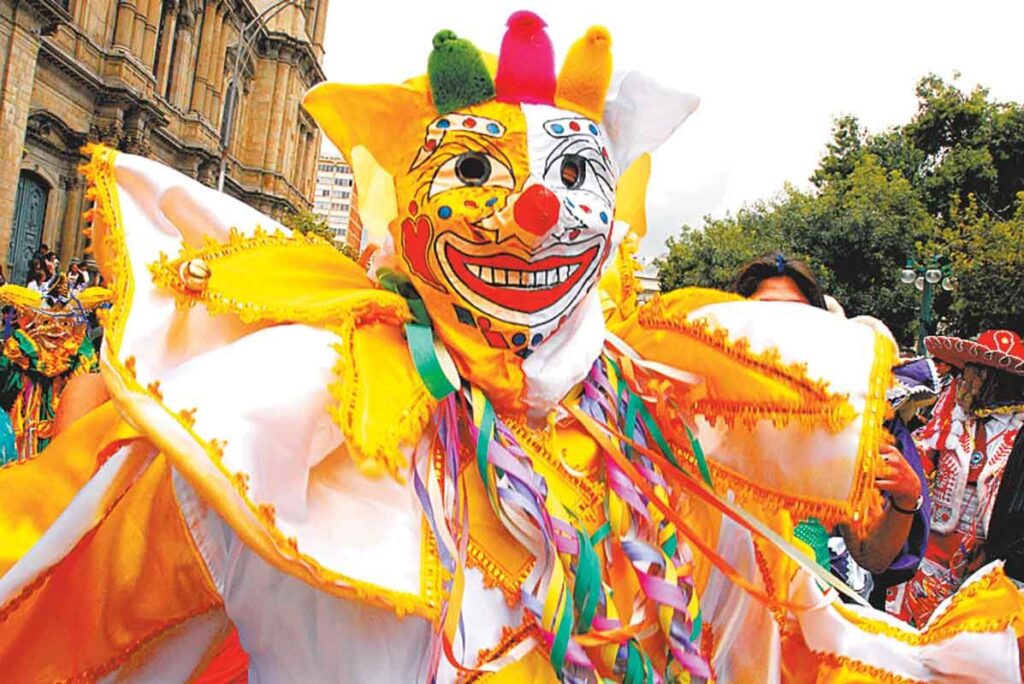
Source: https://www.paginasiete.bo/opinion/alfonso-gumucio-dagron/2022/1/22/canciller-palos-321417.html
SEA OF MISTAKES

Former Chancellor
19 January 2022
Sea of mistakes
“Don’t look up.” As in a recent movie, a new mega meteorite is fast approaching that will have a devastating impact on the heart of our relationship -or lack of it- with Chile; all because of an erratic national foreign policy ignorant of the consequences of irresponsibility.
The trajectory of a course of action is followed that tragically led us to the War of the Pacific, or Saltpeter [War], as a result of the unilateral decision of the Government of Hilarión Daza to increase taxes, giving Chile reason to invade Bolivia, and causing us the loss of one of the largest copper reserves in the world, as well as territory and maritime access.
That same irascible and irresponsible logic of Daza led Evo Morales to “release the genie from the bottle”, prosecuting Chile and giving that country a new opportunity to inflict another resounding defeat on us, this time diplomatic, at the International Court of Justice (ICJ) in The Hague on our more than century-old maritime claim.
And now, as incredible as it may seem, we are headed for a third debacle, the second one at the ICJ in The Hague, against Chile. It began with the public denunciation by Evo Morales that Chile was “stealing” Silala waters from us, in March 2016, and his irresponsible announcement that he would also take this issue to The Hague. But Chile beat us to the punch. After verifying that the Silala waters were, in fact, an international natural course flow, that country sued us before the ICJ in 2017.
Evo used to “just do it anyway”, to shoot and then ask the lawyers to fix the wrongs resulting from his haste and disregard of the law, Bolivia recently had to commission the verification of the nature of the flow of the Silala waters to Danish experts of prestige and international recognition, who confirmed the similar studies previously commissioned by Chile and which were presented in The Hague.
With Bolivia having already presented its counterclaim argument, the ICJ is days away from setting a date for the oral pleadings of both countries.
Given the technical evidence of the natural nature of the international flow of waters, which demolishes the initial Bolivian position contained in Evo Morales’ claim, that 100% of the flow originates in Bolivia and has been artificially canalized towards Chile, the judgment of the Court is predictable, to agree, once again, with Chile. This is going to have devastating political consequences for Potosi in particular, and for all of Bolivia.
The haste and improvisation with which this claim against Chile has been conducted, originally by the Morales Government, but fundamentally now due to the apathy and incompetence of the Arce Catacora administration, is criminal. To date, the Bolivian Foreign Ministry has not designated the diplomatic representative in Santiago. Only recently, after almost more than a year of government, has he appointed the diplomatic agent before the Court of The Hague, a third-rate official, without a professional degree. We do not have a representative before Chile or a defender in The Hague.
In times of peace, the Foreign Service is the only international defense a nation has to assert its rights and move forward in its interests. The current Government has disbanded more than 90% of career diplomatic officials, leaving Bolivia completely unguarded and powerless. This is a crime of high treason, the results of which we will see very soon.
This new “mega meteorite” will hit us head-on in the face of impotence, negligence, and indifference of this misgovernment whose driver is also “asleep at the wheel” of the foreign policy, as well as of the economy and health, among others.
If the previous one “just did things anyway”, the current one is petrified.
Source: https://www.paginasiete.bo/opinion/2022/1/19/mar-de-errores-321101.html
IT IS GETTING MORE DIFFICULT TO OVERTHROW A DICTATOR
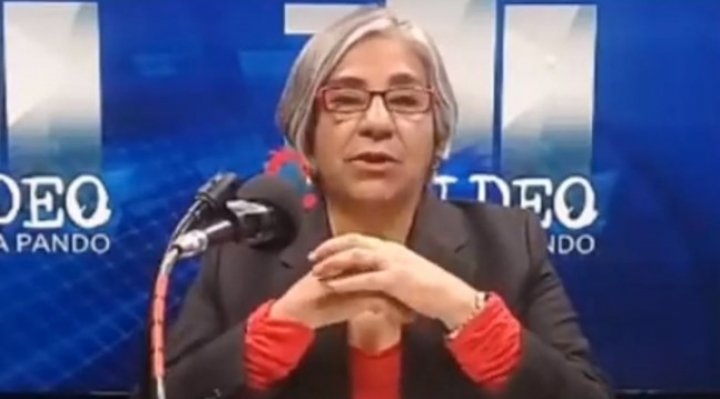
16 January 2022
IT IS GETTING MORE DIFFICULT TO OVERTHROW A DICTATOR
A shadow of hopelessness covers the country. Luis Arce, being a small-time leader, heads a dictatorship tougher than that of Evo Morales, and despite the struggles within the Government and the MAS for power quotas in the cabinet and in state-owned companies, the democratic feat of October 2019 seems unrepeatable in the short term.
There are four long years to go before the next elections, enough time to put an end to the opposition in inquisitorial trials and to set up another fraud that will keep them in power in perpetuity.
THE MASTER OF THIS MODEL
The master of fraud, the extermination of the opposition, and the trampling of human rights is called Vladimir Putin, President of Russia since 1999 and quite possibly until 2036 when he will be 83 years old.
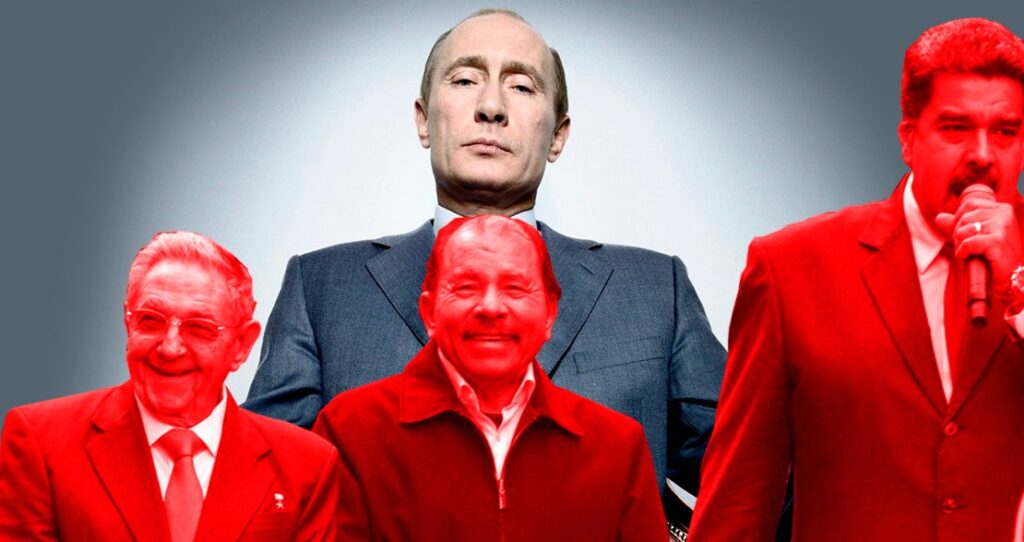
The latest blow to Russian democracy was the closure less than a month ago of the Memorial Center that was fighting for the release of political prisoners.
COMMUNISM FELL, BUT THE DICTATORSHIP CONTINUES
After the fall of the Berlin wall in 1989 and the dissolution of the Soviet Union in 1991, the global irradiation of the democratic system was expected. But then Putin arrived and reversed the situation.

“Russia is like the USSR. The difference is that, instead of the communist old hags, we have two dozen millionaires at the helm,” the exiled opposition member Vladimir Osechkin explained clearly to EFE.
And the same thing has happened in Russia’s backyard, in the 15 republics that became independent from the USSR but remain in Putin’s orbit, except for two: Georgia and Ukraine.
THE PINK AND ORANGE REVOLUTIONS
In 2003, the President of Georgia, Mikheil Saakashvili, initiated the transformations that thousands of protesters demanded of him in the streets and in Parliament, which had been occupied by young people who carried roses instead of guns.
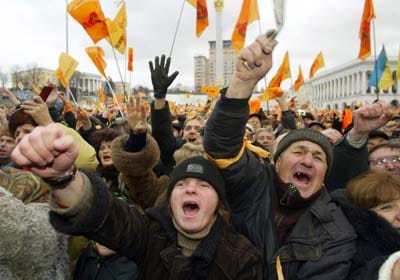
Months later, another revolution broke out, the orange one in Ukraine that ended with the annulment of the fraudulent elections that had given victory to Viktor Yanukovych.
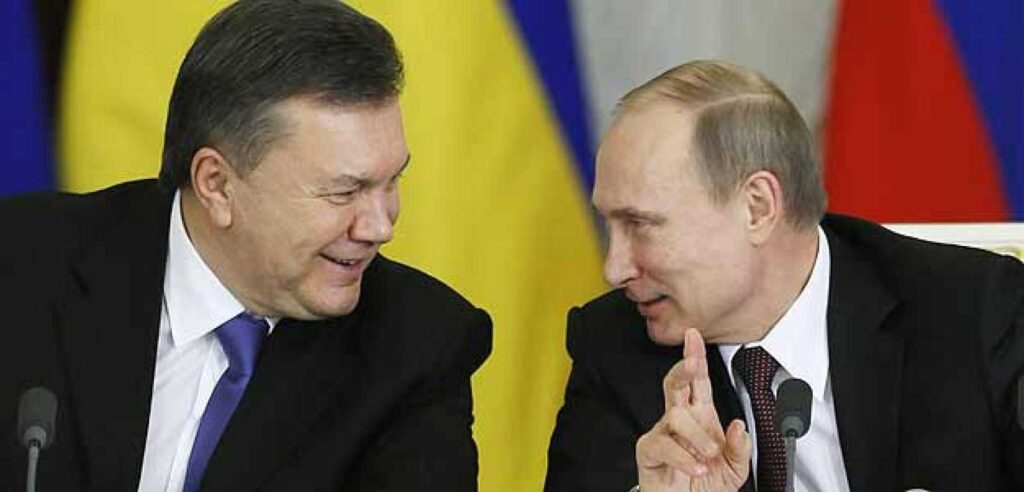
However, Yanukovych was appointed Prime Minister until he won the presidential elections in 2010 and submitted as he was to Putin, he refused to sign an agreement with the European Union. This led to an unexpected and huge popular uprising in Kyiv, the capital, in 2014, which ended with Yanukovych’s escape to Moscow.
PUTIN’S VIOLENT REVENGE
That second revolution cost Ukraine the loss of Crimea, invaded and annexed by Putin’s army, and the promotion in the country’s southeast of all kinds of pro-Russian and pro-Kyiv independence actions.

Not satisfied, Putin threatens to invade all of Ukraine, which has no defense capacity against the Russians and depends on the failed negotiations between Putin and the European Union and the United States so far.
NO MORE COLOR REVOLUTIONS
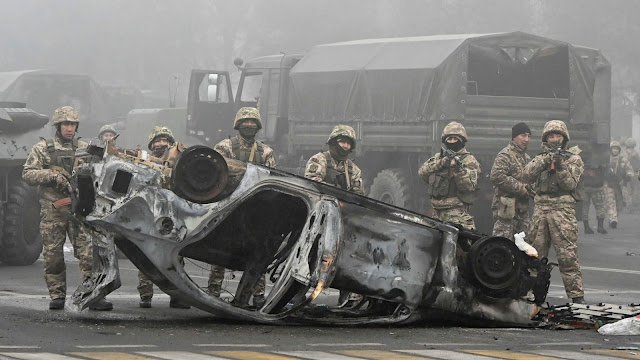
A few days ago, at the request of dictator Tokayev, Putin invaded Almaty, the capital of Kazakhstan, with 2,000 troops and tanks, where he put out the fire of a revolution triggered by the increase in gas prices.
The Russian intervention left 160 dead and about a thousand arrested. A massacre justified by the world “left” for the alleged existence of a coup d’État.
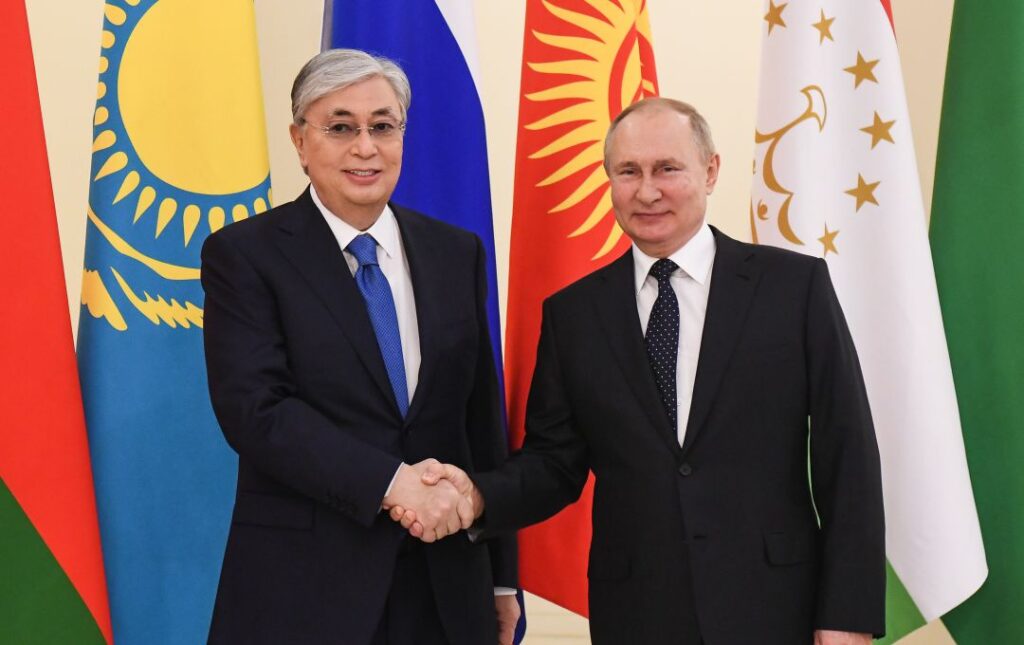
THE FRAUDS OF 2020
As in Bolivia, electoral fraud to favor Putin’s friends has been the reason for two other revolutionary outbursts in 2020.
In Kyrgyzstan, a bloodbath was avoided thanks to the resignation of President Boronov, who wanted to be re-elected in fraudulent elections.
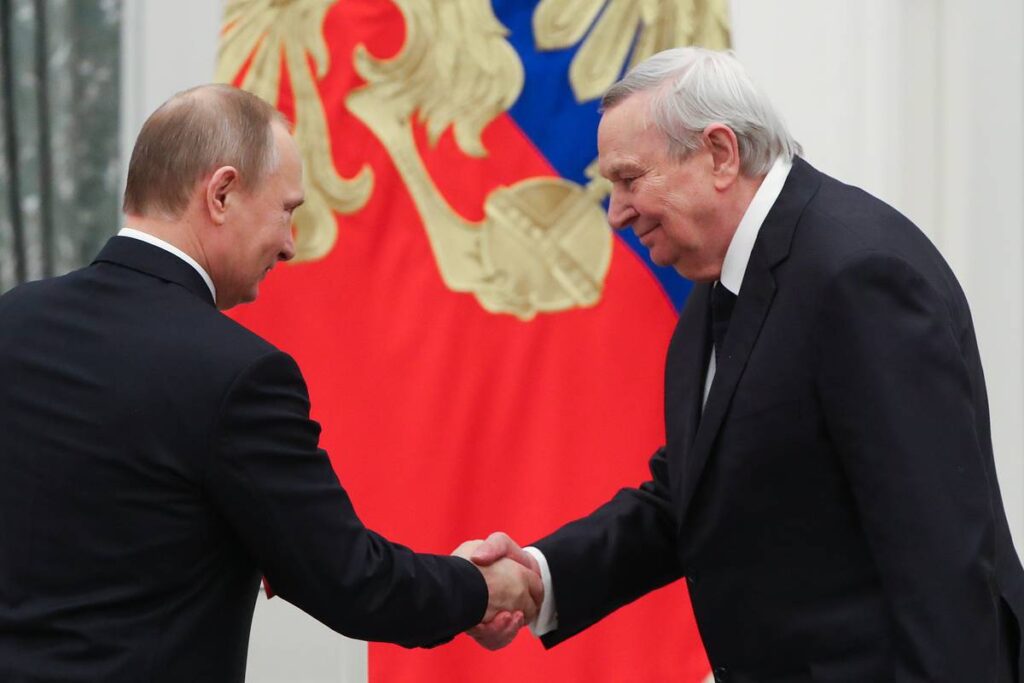
Instead, in Belarus, with the open intervention of Putin, the dictator Lukashenko was reelected for the sixth time after drowning in blood a popular uprising that lasted five months and that moved the entire society against electoral fraud.
There are no figures of deaths, but there were a few hundred who lost their lives, and many more wounded, tortured and nearly seven thousand detained. Maria Kolesnikova, one of the three women who led the August 2020 revolution in Belarus, was sentenced to 11 years in prison.
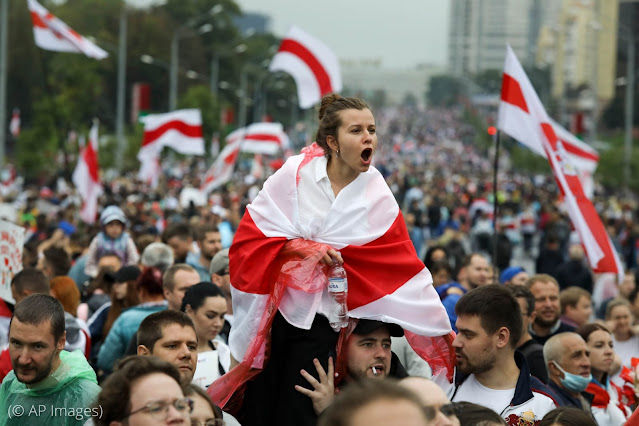
LATIN AMERICA, RUSSIAN COLONY?
Three days ago, in the dispute over Ukraine, and while Kazakhstan was fresh news, Putin warned Joe Biden, President of the United States, that he would send troops to Venezuela and Cuba. Those referred to, showing complete colonial subordination, did not open their mouths.
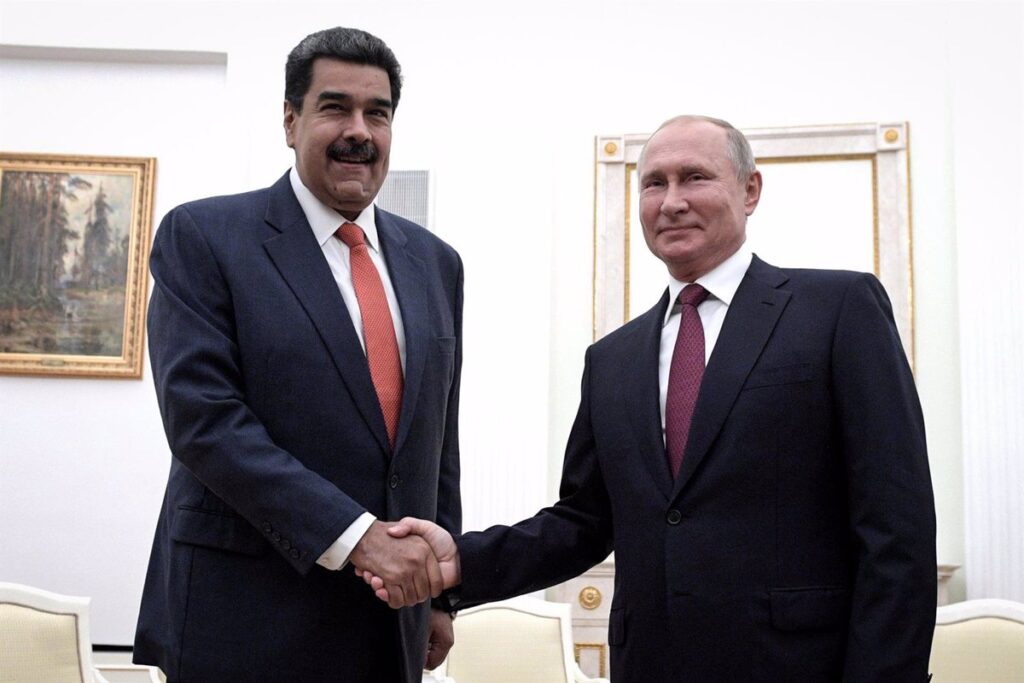
As we have described, Putin has learned in his own backyard how to maintain through blood and fire dictators that are loyal to him. That experience has been transferred to our region, which is becoming Putin’s second backyard in the face of the inaction of the decaying North American empire. What would be of Maduro without Putin! And Argentine President Alberto Fernandez, who is always in economic and political trouble, will travel to Russia and China in early February to see if they can save him.
RUSSIAN AND CHINESE ON THE ATTACK
The dictatorial regimes of Russia and China are on the economic and military offensive throughout the world. On the other hand, democracies are threatened even in the United States. A new world order is emerging that discourages anyone.
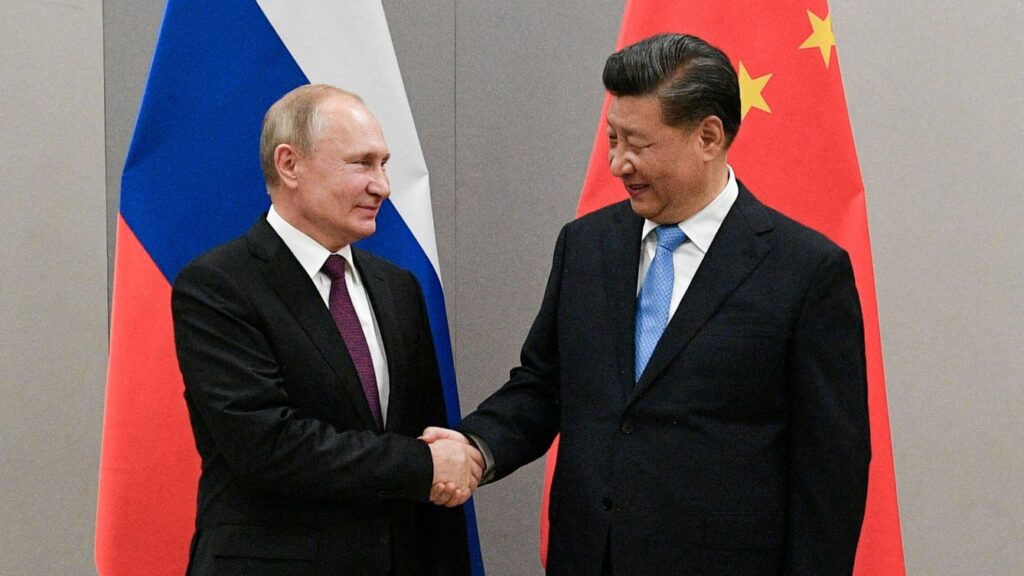
Both China and Russia, plus the votes of the dictators of the world, neutralize any sanction or condemnation in the United Nations. Ortega who kills with impunity in Nicaragua, arrests all opposition candidates, and wins openly fraudulent elections, could never be sanctioned in the United Nations.
Tokayev, the dictator of Kazakhstan, the one who ordered the firing of demonstrators without warning, the one who allowed the Russian invasion of his country, is the president of the United Nations Security Council.
And the UN Human Rights Council since January 1 is managed by the 10 worst regimes in the world, including China, Russia, Venezuela, and Cuba.
Meanwhile, Luis Almagro’s OAS is losing strength with the repeated victory of the left in several countries in the region.
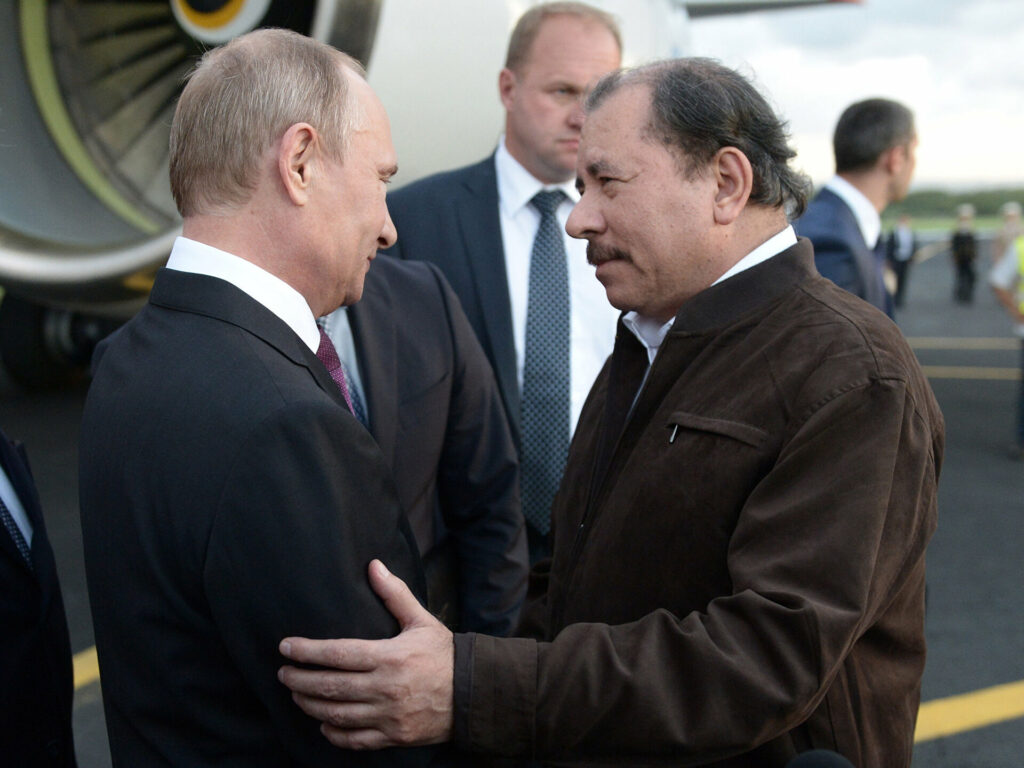
Yes, we are alone, just like the resistance in Cuba, Nicaragua, and Venezuela. And yet, a week ago the opposition won the governorship in Barinas, the cradle and apparently the grave of Chavismo in Venezuela. He won despite the fraud, the tanks, the intimidation, and the arrest of candidates. This is encouraging.
Source: http://www.cabildeodigital.com/2022/01/cada-vez-es-mas-dificil-tumbar-un.html
RELEASE JEANINE AÑEZ, NOW!
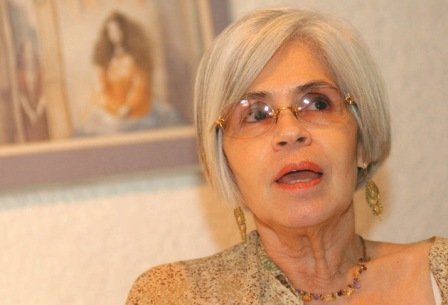
Journalist and Political Analyst
12 January 2022
Release Jeanine Añez, now!
“From her vulnerable position, Jeanine Añez speaks her truth. Fear does not silence her.”
Roberto Laserna on twitter.
One day before the tenth month of her abusive preventive detention* Jeanine Añez Chávez affirmed: “I know that there is an order to kill me and day by day they are moving forward… I am kidnapped in this prison; I have had many health problems. I have to be under observation; I have many mental gaps… I will probably die in this prison, but the good thing is that I am at peace with my God and my death will end the thirst for revenge and hatred of Evo and his elite. I forgive them and hope they find peace one day. Of course, they will never be able to erase from history that I was the Constitutional President of Bolivia, after the resignation of a fraudulent President.”
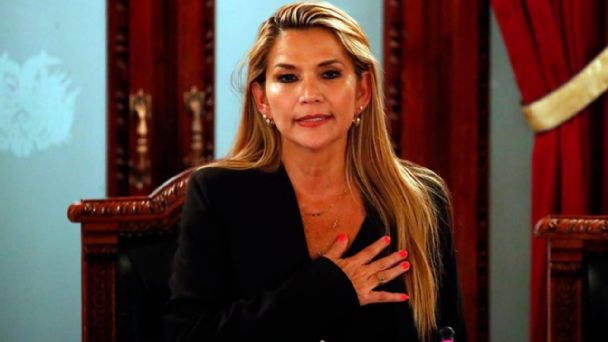
These and other statements appear in the extensive interview that the La Paz newspaper Página Siete (La Paz 09.01.2022) conducted with the former President. They are written in her own handwriting. In them, the former acting Constitutional President clarifies doubts and leaves others to talk about them ”before international organizations, when they come to listen to me.” So far they have not listened to her, although the “country needs to understand what happened during the time I took office as President.” She did clarify that they had ”many meetings with different sectors to pacify the country… many ministers made agreements and arrangements for it and it was the right thing to do because Bolivia required peace…” She points out that many of these agreements were not directly coordinated with her, because “they were hard times and of great tension, where many politicians, people, Ministers, authorities acted independently.”
On the subject, she points out that some took advantage of her inexperience and good faith since they believed that everything could be solved by talking and giving in, but she also highlights that “It must be recalled that the MAS had 2/3 in the Assembly. To reach those agreements, we had to give up many things requested by the social movements…”

Página Siete asked her if she thinks she is in prison as part of a MAS strategy to deny the electoral fraud of 2019, clean up the image of the party and former President Evo Morales. Her response was blunt: ”Evo Morales needs to whitewash his image, trying to invent a sordid story of a coup d’état, when the entire country, the world, and international organizations know that what he did was a shameful and blatant electoral fraud… All the situations of violence, terrorist acts such as surrounding the city of La Paz and not allowing food to enter, trying to blow up the Senkata plant, burning police units, private houses, etc., we owe it to his ambition to perpetuate himself in power. That’s where the thirst for revenge comes from. He could not carry out the plan to leave, generate violence, generate a power vacuum, and return as the savior…”
Jeanine Añez adds ”His plans failed, since he came across a woman, me, the one who disrupted his plans. He does not forgive her for that, since he is an abuser of women and must control them and he could not do it with me or with Eva Copa (president of the National Assembly), since it was necessary to pacify the country. He is known for mistreating ladies, young ladies, and girls, and today he mistreats me, the former President of Bolivia. If to avoid a civil war, the one that the MAS was looking for, to pacify the country and give Bolivians peace of mind at a time of so much violence, it resulted in prison for me, that’s what I got. I do not evade responsibilities, I would do it again. I fulfilled my patriotic duty, I have a clear conscience. We confronted the violence and called for new elections.”
In my capacity as a citizen, I stand in solidarity, once again and always, with the former president and I agree with her: the wounded pride of Morales, who resigned and then fled, wants Bolivia and the world to forget that he himself is the origin of everything the democratic mess that Bolivia is experiencing. First, he did not respect the 2016 Referendum, which said NO to his fourth candidacy because it violated Article 168 of the State Political Constitution, which only allows two continuous ones. Second, he wants us to forget the premeditated fraud staged in the 2019 elections to perpetuate himself in power.
Morales wants to erase those origins. And he does so by recycling his leader’s populist practice as head of his party, the Movement Towards Socialism. From there he intends to impose absolute lies as truths, criminalizes justice, judicializes politics and constructs hate speech.
The face of Jeanine Añez already reflects the relentless traces of the suffering to which her executioners subject her, who have turned the administration of justice in Bolivia into a vicious model of administration of justice; with a Prosecutor’s Office at the service of former [President] Morales, of the Executive with Luis Arce President and Iván Lima Minister of Injustices. Thus, they violate human and constitutional rights and procedural transparency in the most arbitrary manner.
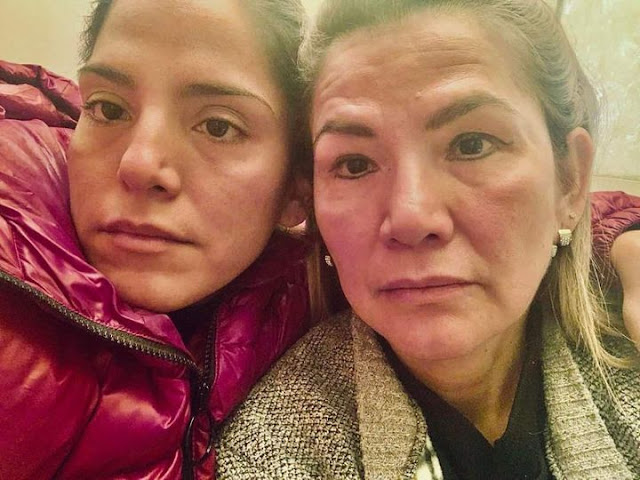
The former President faces two processes: Coup d’état I for terrorism, sedition, and conspiracy, about which they have not been able to prove anything. So, they invented a Coup d’état II for resolutions contrary to the Constitution and the laws and non-fulfillment of duties.
Along with Jeanine Añez, there are other civilians from her Government, military, and police officers who are also prisoners, with the same aberrations and procedural abuses.
For her, for all, democratic Bolivia demands justice and freedom.
* 10.03.2021, Trinidad, Beni, and later transferred to La Paz, held incommunicado.
Source: http://www.cabildeodigital.com/2022/01/nunca-podran-borrar-de-la-historia-que.html
A CERTAIN EVO…
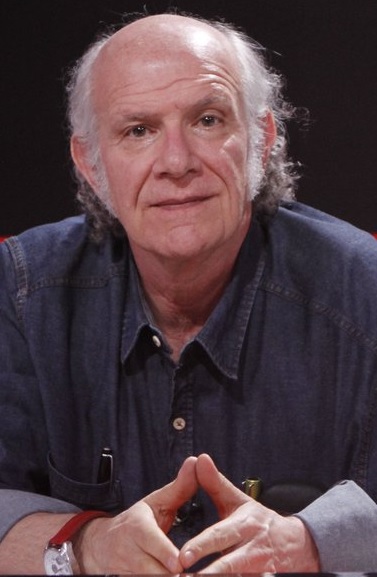
Journalist, political analyst, and writer
9 January 2022
A certain Evo…
He did not wake up one day with a conscience smeared with “morality” and realized that corruption is the worst scourge in the country; in his government, he had exercised it at whim and will, using State assets to distribute them among his followers of the Indigenous Fund with amounts that passed the hundreds of millions of bolivianos that, until now, the exact amount is not fully known. But if that is not all, the favors to his girlfriend, to whom he even recognized a son that was never born, reach the tens of millions of dollars and she was “imprisoned and released and not affected at all” in her personal fortune because they did not take a single penny from her… and we could talk about the Urea plant, with surcharges that exceed $ 200 million, or the sugar mill in San Buena Ventura, or the liquid separation plant in the Rio Grande with a surcharge of $ 40 million, or the so-called Carlos Villegas, to the South, in Tarija; anyway, there are more but the subject is different. Not to mention the capricious and discretionally handling of the ordinary and electoral administration of Justice that even enabled him to an election in which, in the worst style of the 20th century, he committed fraud, counting on a militant Electoral Tribunal and the help of a Mexican group that toured the country’s electoral system, like Juan Evo through the coca-growing Chapare, that is to say, “at pleasure”, so… I move on to another topic.
“That certain Evo”, understanding the weight and value in the economy and political resistance of the Department of Santa Cruz and, above all, aware that the Santa Cruz “Model” is a reality, believes that saddle with the municipal corruption committed by Percy Fernández and “Architect” Sosa at the head, counting on many operators of this corruption, as an expression of the Santa Cruz model will allow him to weaken the Department, aware that, despite some, Santa Cruz is, today, the only one that stands up to political power in the country and shows active political resistance.
Santa Cruz expresses the resistance today, the city of Potosí also; Morales believes that power is his and tries to make the country see in Arce Catacora a ventriloquist doll that says and does what he, Morales, tells him; that is why he has publicly suggested a change of ministers, “taking care to warn” that the President must be protected, his so-called “brother, Lucho.”
From Radio Kawsachun Coca, where he is a tenant because he does not have greater access to capital cities, Morales tries to weaken the Santa Cruz image and after that the opposition political action of Santa Cruz, because he knows that this is the only way to go if he wants to continue having validity in politics.
No one can deny the corruption in the Santa Cruz Mayor’s Office; from the possibility that it gives me in this medium and where I work, I have been denouncing it for years and maintaining, in addition, that without the complicity of the MAS this would not have continued, this could not have been maintained for so long, even if the fled political Judas and former ally of Percy Fernández dared to say that they never had an agreement (“PEVO”, he boasted of repeating on more than one occasion).
And I am not the only one who has denounced the corruption of Percy and the “Architect”; many former city councilmen, former collaborators have done it but the perverse system was invulnerable, until it fell due to a weak link, exploding due to a domestic lawsuit, but that is a well-known story; the important thing is that Santa Cruz had already decided on the punishment for Percy/Sosa: it did not even give them a city councilman. Someone is going to doubt that the corruption of Percy and his allies was stopped, understand all those who benefited from the money that Santa Cruz city generated?
Listening to the “Dandy without a trade” (Richter) say that the Santa Cruz model is exhausted, just the year in which non-traditional exports (agro) surpassed hydrocarbons, is the symbolic slap in the face of such stupidity, but they do not care, they are “sentence shooters”, some “catch on” and others do not.
Morales and his minions may try to weaken us that way, indeed, from his refuge in the Chapare, because he does not dare to say it here, he says that the “ghost items are the Santa Cruz Model” and that … no thanks, that is not what he wants for Bolivia, (thinking of re-running if he manages to weaken Santa Cruz?) when Luis Fernando Camacho mistakenly suggests replicating the model in the rest of the country, as if it could be “copied and pasted” elsewhere, with another history, other connotations.
The Santa Cruz Development Model process dates back to 1825 and exploded in 1957; in all that time we had not only the abandonment of the Department (which was in the “confines”, according to those who administered the State) that suffered from the postponement of demands, that saw fragmentation and loss of territories, not only against foreigners but in the country itself and, of course, with material and infrastructural underdevelopment (hence the struggle for royalties, for water, pavement, and Electricity, in 1957); this is marked very well in several works, by Sergio Antelo, Paula Peña, Ana Carola Traverso (who is about to publish a book of her research), Carlos Valverde Barbery, to name a few, without excluding others who do and did so much for this land.
The Governor of Santa Cruz, to enter this debate, needs to understand it better; he must have the ability to develop an idea that truly expresses the Santa Cruz Model, which is not a slogan, which is a reality, that has been a reality since 1957, when due to civic struggles we began to “be what had been thought” and, after receiving the first money from royalties (1964), we began to take off… of course, before, we already had “think tanks”, we already had the Public Works Committee with a planning structure and everything that put us where we are today, being the base of national development, those of us who supply more than 70% of what the country consumes, being the second city in population-wise of all the country’s Departments; in a nutshell, what Morales and those who do not love us (they will have to excuse us for not crying for that; it causes us laughter because it is inevitable).
In sum: Morales believes that if he weakens Santa Cruz (let him continue to shout at Radio Kawsachun Coca, the radio station of his tenancy) he will come back, that is why he is with one foot inside and the other outside the Government, harassing Luis Alberto Arce who doesn’t know what he is going to do; there it is, that fight is easy if Arce concedes, he ceases to be his own image, of course, the issue is what he does with Del Castillo, Lima Magne, and a few other Ministers who are terribly awful.
Morales looked for a fight with which he will not be able to win, nothing strange that in a short time he flatters us and looks more at Arce. Quiet, he’s not going to stay.
Source: https://www.paginasiete.bo/opinion/2022/1/9/un-tal-evo-320249.html
HAPPY FLIGHT 2022!
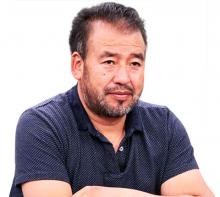
Journalist and University Professor
2 January 2022
HAPPY FLIGHT 2022!
Many times I imagined life as a finite journey on a ship called planet Earth. A journey of 365 continuous days; in leap years, 366. The flight includes a round-trip around the Sun star. According to statistics, about 60 million, of the more than seven billion on board, will not finish the journey. Another 140 million will board flight 2022 at some date. In sum, the new passengers who get on the ship will be more than those who get off for different reasons.
And who is the Earth pilot? Us. Therefore, it is up to us –the passengers– the comfort of flight 2022 that we started hours ago. We will go through the same months, through the same stations, and (most likely) we will see the same people of flight 2021 during the journey, but the facts and the results may be different if we essentially change some aspects, including hate speech.
The American journalist Susan Benesch, founder of the project “Dangerous Speeches”, developed, supported by the three dimensions of rhetoric according to Aristotle, five criteria to determine when hate speech becomes dangerous language.
- Hate speech is dangerous when the speaker is powerful and has a high degree of influence over the audience.
- It is dangerous when the audience is easily influenced and vulnerable because they have feelings of grievance and fear that the speaker can exploit.
- When in a speech act he clearly calls for violence.
- When the social context or the historical context is conducive to violence.
- When the message is disseminated through a media outlet that is influential in itself, either because it is the only one or because it is the main source of news for the audience.
On flight 2021, in the space called Bolivia, there were powerful speakers with a high degree of influence who spread their message to a vulnerable audience. These messengers of death stirred up feelings (resentments) with accumulated myths and infused fear of the other with fallacies.
At some point during the journey, some of those speakers called frontally to annihilate the different ones. Others created an adequate socio-historical context to meddle the most atavistic feelings in the easily influenced beings. The confluence of the language of hate unleashed violent actions. A little more, [and] we ended flight 2021 badly.
What to do to make 2022 a happy journey? Apply the power of the word against the language of hate. Doesn’t power consist in the ability to get what you want? Therefore, where there is a will, there is a way.
But who gets what, how, where, when. British historian and journalist Timothy Garton Ash quote American geopolitical scientist Joseph Nye and British political scientist Steven Lukes to explain the three dimensions of power.
The first, and most obvious, is to get someone to do something that, at first, was not among their priorities. Get a person to do something.
Second, power involves the setting of an agenda, or “the power to decide what is decided.”
The third dimension, and the most subtle, is the ability to shape people’s initial preferences in such a way that they do not even realize that their choices result from a prior exercise of power by others.
Information and knowledge weigh in on the first and second dimensions. Consequently, people committed to the search for the truth are forced to dismantle every fake news and post-truth so that audiences do not do something that was not among their priorities.
Truth, understood as the exact use of words to describe the facts, is synonymous with democracy; on the other hand, authoritarianism is a friend of lies.
Quality control of messages will raise the quality of audiences. As a result, these audiences will demand including public issues aimed at building and not destroying the public agenda.
During flight 2022, universities and non-governmental organizations (civil society) are obliged to produce and disseminate knowledge aimed at countering the lies fabricated by promoters of hate speech.
The third dimension summons creators who accurately describe reality from fiction: cinema, theater, novel. This group is capable of changing the conception of history and modeling refuting thoughts and erecting critical people.
The challenges are marked. It is up to us that flight 2022 is not turbulent and completes another orbit around the Sun with more humane beings and capable of coexisting on the Earth ship.
Happy journey 2022!
Source: http://www.cabildeodigital.com/2022/01/feliz-vuelo-2022.html
THE ABSURDITY OF THE SPOKESMAN
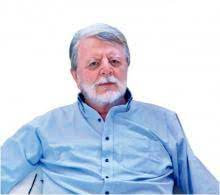
Bolivian writer, diplomat, and politician.
27 December 2021
The Absurdity of the Spokesman
That the spokesman Richter affirms that the Santa Cruz model is “exhausted” is nameless nonsense. The fact that some crooks in the Santa Cruz Mayor’s Office have stolen many millions has nothing to do with the fact that our development model could be affected by this blatant robbery. Simply, because one thing is the municipal administration and another, very different, the agro-industrial work in the field of entrepreneurs and day laborers, cambas and collas (people from Santa Cruz and La Paz), which produce 70% of the food consumed in Bolivia and that today occupy the highest position in national exports.
Is the Santa Cruz model exhausted by what happened in the Mayor’s Office? Will we have to be sucked into the failed “process of change” then? [Sucked into] by the most corrupt and incapable thing that has been known in Bolivia? We are going to make a recap of the hundreds of million-dollar deals that the Movement Towards Socialism (MAS) has committed in its 15 years of government and we would never finish. The greatest thieves who have passed through the country have been, without a doubt, the MAS members.
So, what do they want? What is their wish? Undoubtedly they long for a major scandal, which has already occurred. But they not only want those who committed robberies and embezzlements to go to jail, which, obviously, must stand trial and have their guilt punished, but they want to take advantage of the mess to try to get their hands on COTAS, CRE, Saguapac, and all the Santa Cruz cooperatives. The Andean-centrism, a lover of embezzling the State, never looked favorably upon the companies created by Santa Cruz people and now, more than ever, they want to seize them to bury them.
We already know that spokesman Richter is a huckster, but he is dangerous because, with genteel, seemingly innocent gestures, he makes dangerous suggestions that are supported by President Arce. And we see how he takes pleasure from the disunity that appears on the Santa Cruz scene, to accuse lodges, alleged family clans, and in general against the Santa Cruz business community. We are already warning: the Mayor’s Office is the beginning of the drama and then colla (La Paz) prosecutors will arrive, sent to open a gap and for the Plurinational State to take over our cooperatives.
Source: http://www.cabildeodigital.com/2021/12/los-dislates-del-portavoz.html
OBITUARY OF A DEATH FORETOLD
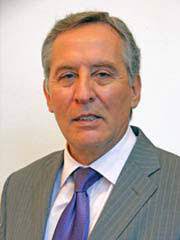
Former Mayor, Minister of State, and Chancellor of the Republic of Bolivia
9 December 2021
Obituary of a death foretold
The time is coming. The obituary of the MAS of Evo Morales has already been written by none other than one of the theoretical fathers of the “process of change”: Raúl Prada.
A man of the left, a respected intellectual, he now reveals to us that he is a man of ethical principles and political honesty.
In a document that could easily have also been signed by Filemón Escobar, Marcelo Quiroga Santa Cruz or Juan Lechín Oquendo, “Chato” Prada titles “The funeral march” to the penultimate political death rattle of the MAS: a march of llunk’us (todies), of a misgovernment that marches to support itself and for the umpteenth time to attack La Paz with the threat of another “siege”, similar to the one that took away its oxygen in the middle of the pandemic.
“When there is nothing left inside, even when what was shown was a pure pose, appearances by exposure of simulations, one resorts to desperately insist on the political theater, even if it does not offer promising results, for the collapse and implosion have reached the crushing level of apocalyptic collapse and spread.
When you have nothing to offer, except what has been left as a dramatic inheritance: the death of the process of change, the dismantling of the Constitution, the destruction of the economy, education, and health, apart from having enriched the Palace environment, converted into rentier bourgeoisie, opts for the show business of a government mounted march, with the eloquent mass of llunk’us (toadies), increasingly similar to a funeral, to bury the political corpse, the despotic leader, and a conglomerate of corporations and labor unions of corruption, pretending to be a party or movement…”
There couldn’t be a more sincere and lapidary judgment than that.
The great assault of Evo Morales’ MAS is hidden in plain sight. The 2022 Budget is nothing less than a justification to cover up the final and definitive corruption of the MAS, before closing suitcases and fleeing to their “socialist paradises” where they will enjoy their ill-gotten wealth.
In addition to million-dollar “investments” in anti-economic companies, the inflation of the payroll of public employees (militants, by statute) has tripled to half a million, of which there are 300,000 new lazybones. Every day [the State] spends $ 21 million on its salaries and three times that on its “operating” expenses. How many of them are “ghosts”?
To prove a point. The former municipal administration of Santa Cruz, coexisting with the MAS during its long past administration, apparently hid a fictitious payroll of 800 public officials, for more than ten years, generating spurious rents estimated at 48 million bolivianos per year or more than 68 million dollars in ten years, for their political leadership.
Only comparable with Cuba or North Korea, the economist Antonio Saravia has estimated that the 2022 Plurinational State Budget absorbs 95% of the Gross Domestic Product (the sum of ALL the goods and services produced in the economy by all of us). Comparatively, Chile absorbs 37% of its GDP, the US 35%, and the average in South America should be below 40%, comparable with the Nordic countries). The State monopoly is complete and is at the disposal and usufruct of the MAS.
This means that the Bolivian economy is ALREADY socialist! The Government absorbs ALL the GDP, including its monopoly access to borrow our retirement contributions from the Pension Fund Administrators (AFP) and the already starving reserves of the Central Bank, which it will never repay. While it has already lost almost all possibility of external credit and it only remains to squeeze the citizens with higher taxes through “cursed laws” and other mechanisms. The country at the service of the party.
Its death is already announced by its own children. But as a friend told me: “I do not fear death, but dying.” To a long agony. How much longer will Evo’s MAS agonize, ruling with hatred and resentment, behind people’s backs and looting our heritage?
Source: https://eldeber.com.bo/opinion/obituario-de-una-muerte-anunciada_258115
MARCHES AND HANGOVERS
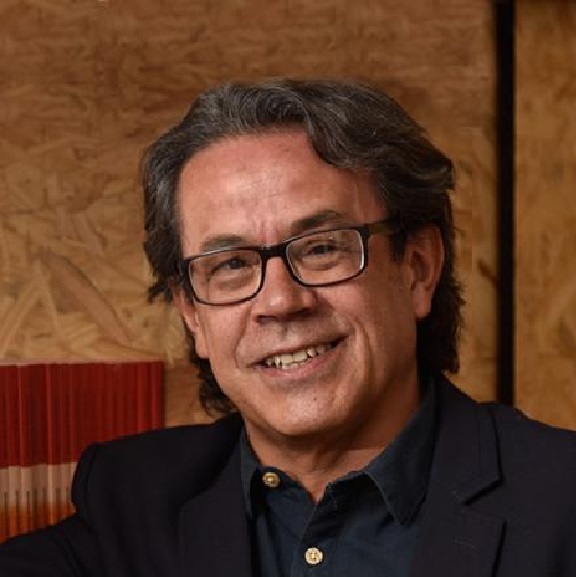
Journalist
6 December 2021
Marches and Hangovers
And the Movement Towards Socialism (MAS) march reached La Paz, there were a few effusive speeches, the usual adjectives, the occasional threat of the usual against companies and businessmen, and even a few presidential tears to thank such a demonstration of support, but that’s it.
Not to mention the numbers. In the MAS they said that the march was more than 100 kilometers long, but they did not reveal that between column and column of marchers there were several meters of distance, and between social movements, a few kilometers. So, being relatively precise, it should be noted that it was a march similar to other marches because, in the end, it was only enough to fill the Plaza de San Francisco in La Paz, which even in the best times of the Popular Democratic Unity (UDP) did not exceed 60 to 70 thousand people, a little more than the Hernando Siles, the largest stadium in the country (45 thousand spectators).
Other chronicles mention the tons of garbage accumulated in the city, the desolate public offices whose employees had to clock-in in the streets to avoid being unemployed, the enormous amount of money that is needed to mobilize and feed people, and the feeling of sadness that public spaces always leave behind when the “masses” disappear to continue with the routine of their lives.
The march changed nothing. A week later, the President continues to have the same problems as before the mandatory social walk and does not compensate for the loneliness of power or with the solidary and fleeting embrace of the crowds, or with the proclaimed loyalties of those who accompany him on the front lines.
Perhaps because deep down he knows that not all those who attended did so voluntarily and that even the support of those who were by his side is subject to a variety of conditions, Luis Arce shed a few tears, the kind that only official photographers record and that do not appear on the front pages of the newspapers, because nobody believes much in the cry of the powerful.
The day after the demonstration, Luis Arce returned to silence, the kind that leaders feel when they are left alone at their desks and calculate with more anxiety than ambition the time that still lies ahead. Perhaps he will hear as an echo the “Lucho, you’re not alone, damn it”, but only he knows how far those words can be from reality. Loneliness is not necessarily a weakness. It is a void that surrounds the decision chair.
The marches pass, but the consequences remain. Santa Cruz is further away from the Government than ever after, from the vociferous demands shouted on stage, some clueless union leader threatened to nationalize the companies that the Santa Cruz people created. They are the voices that seek applause, the impact of a phrase, the “comrades we are going to take away their industries from the rich, even if we don’t know what to do with them later”, “create one, two, three Vietnams and so on until they all starve to death”. Talk is cheap!
Beyond the anecdotal, there remains the feeling that, deep down, the other leaders of the march think the same and that, if the conditions were given, they would not hesitate to take that path. The “nationalizers” have not completely disappeared, even in words, because, in fact, their experience has been more than bad. Perhaps, for this reason, the President did not refute the head of the Bolivian Labor Union (COB), nor did he offer an apology. Anger, resentment, and that obsessive desire for revenge are used more than good sense to govern.
There is a sense of disorder in the country that is only aggravated by demonstrations of force. When the international news reports on the events of the past week, they say that Arce led a march that was organized to back him up. It seems like a joke, but it is not, because the President was there, so far from the Palace and so close to disorder and partisan uproar.
Almost at the same time, Evo Morales’ ex-girlfriend was coming out of jail “for good behavior” and “vocation for work.” Gabriela Zapata served part of her sentence for the crime of legitimizing illicit profits and left the prison in the Miraflores neighborhood of La Paz only on the condition that she did not approach anyone who had been part of the scandal.
The main suspect of organizing an influence-peddling network to benefit a Chinese company with millionaire contracts seems to have more rights than a former President, Jeanine Añez, who is accused of having been part of a non-existent coup d’état and remains locked up “preventively”. That is how the disorder is.
A few days after the march, the socialist government left workers from the airport administrator (AASANA) on the street and put airport security at risk because it needed to restructure the office without [having to deal with] strikes or conflicts. In the purest style of the liberal manual, he ordered the creation of a new entity to absorb less personnel than the other one had and thus kill two birds with one stone. And the legal problems? They will be solved along the way.
The pending issues add up for Arce. The arduous discussion with municipalities, regions, and universities about the scope of the Law of the National Development Plan remains ahead. The agreements will not be easy, because two opposing views on how to administer the State are at stake. It is not easy to negotiate after having insulted and that the Head of State knows more than ever after the passing euphoria and the shouts of the Plaza de San Francisco.
Far from the noise of the demonstrations, the news is still “boisterous”. They say that the gas reserves of the Argentine fields of Vaca Muerta will leave us without a market in a very short time and that the hen will stop laying the “golden eggs” that it laid during the blessed decade that filled the public coffers with money. Goodbye to the golden age of gas is very close.
If to all this we add that there is a new variant of COVID 19 (OMICRON) that could put a stop to the recovery and return us to the times of restrictions, the scenario ahead of us is not encouraging at all.
The President learns about all these things in the solitude of his office, where the armored glass prevents the noise of the demonstrations from reaching and only the clink of the spoons in the fine teacups that survive from the old crockery acquired much more than a century ago by President Montes is heard.
No, things are not resolved with large demonstrations and Luis Arce knows it, especially now that, after a year in office, he can no longer compare himself to Jeanine Añez. Lonely, he only has to look at himself in his own mirror. It is the hangover of the marches.
Source: http://www.cabildeodigital.com/2021/12/marchas-y-resacas.html
THE BUDGET OF HORROR

Ph.D. in Economics
5 December 2021
The budget of horror
The General State Budget (GSB) for 2022 is a horror movie. The horror it produces comes not only from the numbers that, as always, do not add up, but, above all, from the intentions of the Government that they represent. This budget leaves no room for doubt. The Movement Towards Socialism (MAS) wants to completely control the country and lead it unfailingly towards socialism.
Let’s start with the total amount. The consolidated General State Budget for 2022 plans to spend Bs. 235,090 million, that is, US $ 34,000 million. This huge number represents 90% of our GDP. As you read it. The government is planning to spend in 2022 an amount equivalent to almost all the national production of that year. Take the case of the United States for comparison. In that country, the government budget represents only 30% of the GDP. In Chile, it represents 32% of the GDP. In Paraguay, which is a country with which we typically share the last place in development levels in South America, it represents 37% of the GDP. Even in the Nordic countries, which maintain a relatively large government, the government budget does not exceed 50% of the GDP. The General State Budget 2022 is, therefore, and however you want to see it, a real elephant.
Having such a large government produces at least three fundamental problems. The first is that all that money has to come from somewhere. Since 2014, the government has been unable to sustain its huge spending and, therefore, has been accumulating deficits. We come from eight years of consecutive fiscal deficits averaging 7.8% and 2022 will be no exception. The General State Budget 2022 foresees an 8% deficit that will continue to increase the debt that, by now, has already far exceeded 50% of the GDP. The second problem with a huge government is that it generates a huge bureaucracy and an ordeal of paperwork that continues to torture private agents. The government employs half a million people! Public employees alone would be the fifth most populous city in the country. The third problem, and probably the most pernicious, is that a huge government also has a huge influence on the economy. With this budget, the government makes it very clear that it claims economic leadership by deciding what to do and how. The government spends and does not let go of the control, but private agents pay for the dance.
Let’s now look at financing. Here the horror movie reaches a climax. The largest component of the General State Budget 2022 financing is debt! That’s right, 40% of the resources that the government will spend next year comes from internal or external financing (more from the former than the latter). This means credits from multilateral organizations, loans from the Central Bank, sale of bonds to the Pension Fund Administrators (AFPs), and unused money from the past administration. In sum, the government plans to spend 40% more than it will generate as income next year. The second component of financing is operating income (23%) and the third is taxes paid by citizens and ordinary businesses such as Value Added Tax (VAT), Transaction Tax (IT), etc. (18%). Oil revenues (Direct Tax on Hydrocarbons (IDH) and Special Tax on Hydrocarbons and Derivatives (IEHD)) represent only 3% of revenues.
Notice then that the elephantian government is not financed mostly with gas sales but with debt and our taxes. Considering also that only 30% of the economy is formal and pays taxes, the dance is being paid for by a very small segment of the national population.
Let’s now look at the expenditure. 57% goes to current expenses, 17% goes to capital expenses, and 26% to other uses that include debt service. For every dollar invested in capital expenses, therefore, $ 3.5 in current expenses is spent. And where does the capital expenses go to ($ 5 billion)? To the 70 public companies, the vast majority of which are unprofitable and inefficient.
Within current expenses, only the item of wages and salaries reaches $ 6,499 million, which represents 20% of the budget. We spend about $ 18 million a day on wages and salaries alone ($ 25 million per workday). 34% of the $ 6,499 million goes to the teaching profession (which we already know is a nest of corruption and incapacity that keeps our education imprisoned in mediocrity), 9% to health, 6% to the Police, and 6% to the Armed Forces. The rest, more or less 50%, goes to the bureaucrats who occupy a seat in the public administration that includes all the people who occupy the 17 ministries, 53 vice-ministries, and 200 entities that depend on those 53 vice-ministries.
This huge administrative apparatus is also built on very weak and unrealistic assumptions. The budget assumes that our product [GDP] will grow in 2022 at a rate of 5.1% when international organizations such as ECLAC or the World Bank expect only a rate of 3.5%. An oil price of $ 50.5 is also assumed when the US Energy Information Administration (EIA) expects it to reach $ 68.28. Here it is important to remember that a high oil price today hurts us more than benefits us because our gas sales volumes have dropped and we continue to strongly subsidize the domestic price of hydrocarbons.
This is, in short, what the MAS wants to sell us and what it will probably be approved without problem in parliament. Debt and voracious spending when what we need is savings. To add more monsters to the movie, last week we learned that our cash reserves (currencies) are already on the ground at $ 1,769 million. Let’s remember that next year we will have to pay around $ 1.8 billion of previously issued bonds. Ronald MacLean illustrates this whole alarming situation by saying that the car is going over the cliff and the driver is asleep. It seems to me that the driver is not asleep. He knows we are going to the cliff, and even so he does not let go of the accelerator.
Antonio Saravia is PhD in economics (Twitter: @tufisaravia)
Source: https://brujuladigital.net/opinion/el-presupuesto-del-horror
RIBERA TAKES THE AÑEZ CASE TO THE WORLD CONGRESS OF LAW ON DEMOCRACY IN COLOMBIA
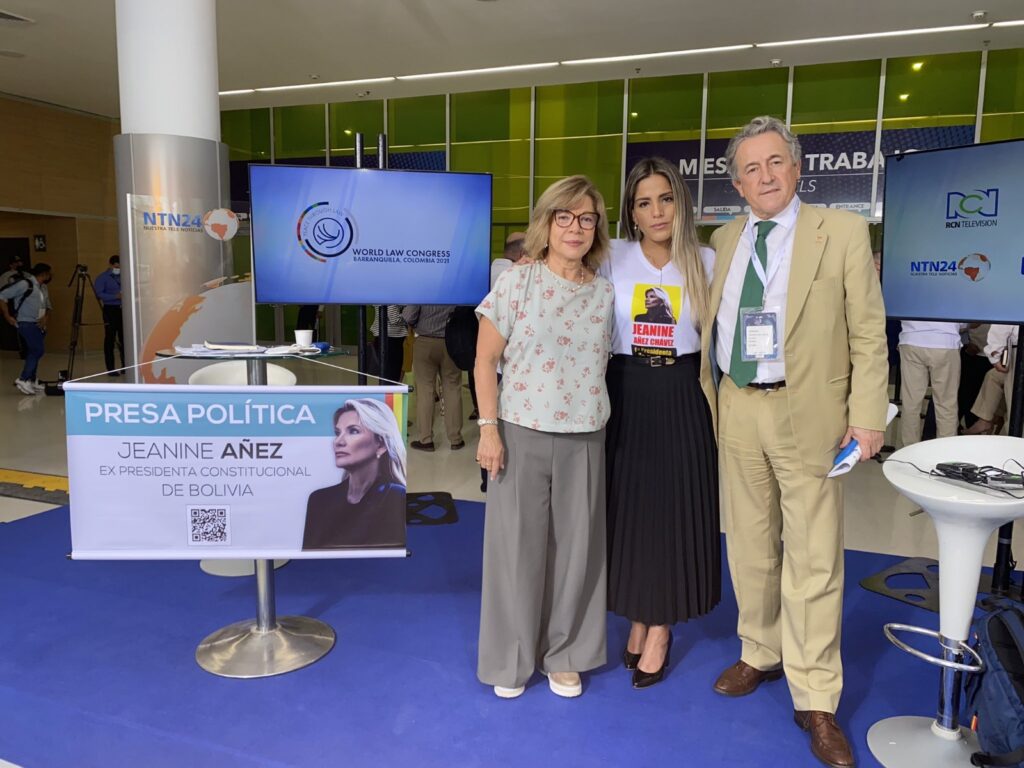
Photo: Página Siete [Newspaper].
2 December 2021
Ribera takes the Añez case to the World Congress of Law on democracy in Colombia
The daughter of former President Jeanine Añez will speak at the meeting about the “political persecution” in Bolivia and the situation of her mother as a “political prisoner.”
Carolina Ribera, daughter of former President Jeanine Añez, arrived in Barranquilla, Colombia, to participate in the World Congress on Law. The event has panels referring to democracy, human rights, and justice.
Ribera will present at the meeting on the “political persecution” in Bolivia and the situation of her mother as a “political prisoner,” she reported this Thursday.
“In this Congress of the World’s Jurists, issues of the rule of law, democracy, respect for due process, and human rights will be discussed. All these issues have robbed and violated [the rights of] my mother. I come to be her voice to ask for a fair trial and for the whole world to find out about my mother’s situation, I seize every opportunity and every location,” said Ribera in contact with Página Siete Digital.
Former Foreign Minister Karen Longaric, who was part of the transitional Government led by Añez, will also participate.
In the meeting, which consists of 49 panels, lawyers and personalities of international politics will give their presentations, such as Colombian President Iván Duque, King Felipe VI of Spain, the Venezuelan opposition leader Leopoldo López, the Secretary-General of the Organization of American States (OAS), Luis Almagro, and others.
The event takes place this Thursday and Friday and has the participation of more than 3,000 people who can also expose the problems that their countries are experiencing.
This is the case of Ribera, who will participate in two spaces [to present] her mother’s case.
A tweet published on the account of the former President, imprisoned since March of this year for the cases “coup d’État I” and “coup d’État II”, gives an account of that participation.
“Carolina is the voice of #JeanineAñez as a political prisoner since 13 March 2021. Thanks to the World Congress of Justice where she is exposing the situation of the illegality of her detention, the despicable accusation, and crying out for the injustice suffered by democratic Bolivia,” the text outlines.
For her part, Longaric will participate in the Human Rights and Justice panel.
The Venezuelan López, during his speech in a discussion published by NTN24, expressed his support for Carolina Ribera and the former Bolivian President.
The member of the European Parliament Hermann Tertsch also expressed his solidarity with this cause through a message on his social networks.
Source: https://www.paginasiete.bo/nacional/2021/12/2/ribera-lleva-el-caso-anez-al-congreso-mundial-de-derecho-sobre-democracia-en-colombia-316955.html
A MULTIFACETED MAN, A NEW MAN

2 December 2021
A multifaceted man, a new man
He was the founder and director of Presencia, an emblematic newspaper. He studied Philosophy and Law and inspired hundreds to teach in these areas. His book on Criminology is a fundamental guide on this subject. He presided over a distinguished Electoral Court, recognized for defending institutionalism. Catholic, humanist, defender of human rights, father, who acted as mother, grandfather. A lover of life, knowledge, and Bolivia.
There is no doubt that Huáscar Cajías Kauffmann was a multifaceted man.
For the same reason, the book that commemorates his centenary bears that name. This Tuesday 30, the publication was presented at the Bolivian Catholic University “San Pablo” (La Paz headquarters), thanks to the efforts of this house of studies and its Department of Social Communication. In the text, presentations and reflections of the protagonist are presented, accompanied by memories of those who shared his multifaceted life with him.
In the writing, it can be recognized that, in addition to being multifaceted, Cajías Kauffmann was a clear representation of the “new man.” That ideal of better beings committed to the Common Good, the defense of human values, the search for truth and freedom.
The “new man” has been conceptualized from different perspectives. But as D. Negro (2008) indicates, this concept is associated with the twentieth century, when “it was proposed to improve, through illustration and scientific knowledge, living conditions, but with an eye toward creating a better man, a new man.”
It is a complex task to define what is “best” in a human being. However, the shared memory of Huáscar as a man with a horizontal gaze, whatever his interlocutor and in all kinds of settings, is an undeniable guideline to be better.
Respect for the other and the search for the Common Good was the practice of Cajías in his daily, personal, and work life. In the book presented, Harold Olmos recalls that the notes from the Director of Presencia were “a reflection of his commitment to a less selfish and more caring world.” Likewise, Armando Mariaca concludes his memory of Huáscar as the one who “was an example in everything to live well, serve better and act for the good of all without any reluctance.”
To live well, serve, and act. An illustrative synthesis of the life of Cajías Kauffmann. His commitment to the Common Good led him to be a servant of society, through a recognized “appreciation of justice, dignity, and law,” as indicated by Alejandro Colanzi.
Throughout the book, Huáscar is remembered for his work ethic and his character as a “public servant.” A concept that seems forgotten. But the biography of this universal Santa Cruz character reminds us to vindicate him.
More so, because his story recalls another virtue of the “new man”: the defense of human values and rights. Cajías’ reading of the biblical passage “The Beatitudes” to strikers for democracy, in 1978, is a postcard in the national history of human rights.
“It was a moment of great emotion, of great strength because he read it convinced, as a Catholic that he was, and the group listened. They say that even the agents were moved to see the scene and the strikers [were] so weakened but firm. They also said that Cajías did not let them mistreat or denigrate them, ‘they are under my protection,’ he said,” wrote Amparo Carvajal in her chapter of the book.
Finally, it is worth highlighting Huáscar’s commitment to truth and freedom, in each of his functions. In the book presented, this principle is particularly translated in one of his texts: “The truth will set us free.”
For all of the above, and for other reasons that readers will find in Huáscar Cajías Kauffmann’s book, he is the semblance of a “new man.” Not only because of the many recognized virtues but because all of them aimed to be a “better man.” Inspiration for so many beings who knew him. Final guideline of one of his texts…” At the end of the day, everything elevated is achieved by arduous roads. The easy is the refuge of those who do not want to be what they should be.”
Thank you so much, grandpa.
Guadalupe Peres-Cajías / Alias Agatha
Source: https://eldeber.com.bo/opinion/un-hombre-multifacetico-un-hombre-nuevo_257195
FROM FRAUD TO FRAUD?

Writer
25 November 2021
From fraud to fraud?
In addition to the electoral fraud that Evo Morales carried out in October last year, apparently, another fraud occurred against the people in October 2020; it means that national democracy is not worth a damn, because not even the vote, of which we all brag about, has value. Morales provoked a fraud that the OAS censored, the European Union agreed with, and even Morales himself recognized, who decided to annul those elections and make a new call for elections, which the citizens did not accept. Then, seeing that the electoral trap had no solution, the MAS, in order to clear the dirt from the face of its boss, now declared persona “non grata” in Peru, invented the story of the “coup d’État”, a subject that has remained as an irrefutable dogma within their ranks.
One of the arguments that the MAS maintains in support of the coup’s invention is that a year after those tricky elections, Mr. Arce Catacora won the general elections with a surprising 55%, leaving out Carlos Mesa, the candidate of the moderate line, who, according to the polls, could aspire to obtain the necessary to go to a ballot to define the Presidency.
But nothing is impossible in Bolivia and even more so in politics. It is very likely that there would have been fraud in the elections that Evo Morales won in 2014, as there was certainly in 2019 and, perhaps, in 2020. The surprise for that 55% that Arce obtained was enormous. But Bolivians are either very confident or very slow, because just after a year, Mrs. Rosario Baptista, a former Tribunal member of the Electoral Power, has opened our eyes by having announced the existence of an inflated electoral register, where there would be more than one million and a half “ghost voters.”
But is it possible that we have been taken for a ride again? Frankly, we can’t believe it. We are ashamed of the mere idea that the MAS has regained power with another consecutive trap. And that, in addition, they brag about their triumph and accuse us that we were coup plotters because as Arce won last year, there was no mystery for Morales to win in 2019. They rub this in to our naive people and show it abroad, who stare in amazement at these unstable Bolivians who, according to that, do not know what they want.
If what the former Tribunal member Baptista affirms is true, that there would be no reason for her to lie, it means that we were and that we are in front of a Supreme Electoral Tribunal where dishonest characters swarm to obscenity. If the former Tribunal member Baptista had already warned, some time ago, that there was a “parallel electoral register,” which earned her a sanction from the Tribunal, how was it possible that we remained with the same disaster? Did the Electoral Power reach such an extreme of submission and fear of Morales? As much panic as the Legislative and Judicial Powers have? Is this the democracy we brag about and celebrate every October 10 for almost 40 years? Could it be that Bolivian democracy has become muddy to the neck since the 2009 Constitution and has been sinking more and more into the quagmire? Or as Mrs. Baptista says, could it be that this democracy is nothing more than an illusion generated in the people? Just an illusion for the unwary?
Today we find ourselves before a Government that persecutes and insults, aggressive as none has been seen for a long time. This was demonstrated by Arce last Sunday in the Plan Tres Mil zone, calling the people of Santa Cruz fascists. Every dissident enters his telescopic sight, which is nothing other than obsequious and rotten justice. It is the same method that Cuba, Venezuela, and Nicaragua use. Aiming at the head of the enemy that bothers them to apply the law with a trigger that kills the adversary and benefits the power.
This administration, which is beginning to be questioned, scaring those who exercise it, not only targets Camacho, Calvo, Reyes Villa, and Arias but, due to their fear, they target political leaders, opposition parliamentarians, and all journalists who have the right to be curious; even more so, if there is so much talk that we would be under the grip of an intolerable illegal authority, imposed by a detestable deception. If Rosario Baptista’s denunciation is true, this Government should not expect any submission or respect from Bolivians.
Source: https://eldeber.com.bo/opinion/de-fraude-en-fraude_256357
FORMER TRIBUNAL MEMBER BAPTISTA REVEALS THAT THE SUPREME ELECTORAL TRIBUNAL (TSE) DID NOT RESOLVE TWO CAUSES OF ACTION THAT COULD HAVE LED TO THE LOSS OF THE MAS LEGAL STATUS
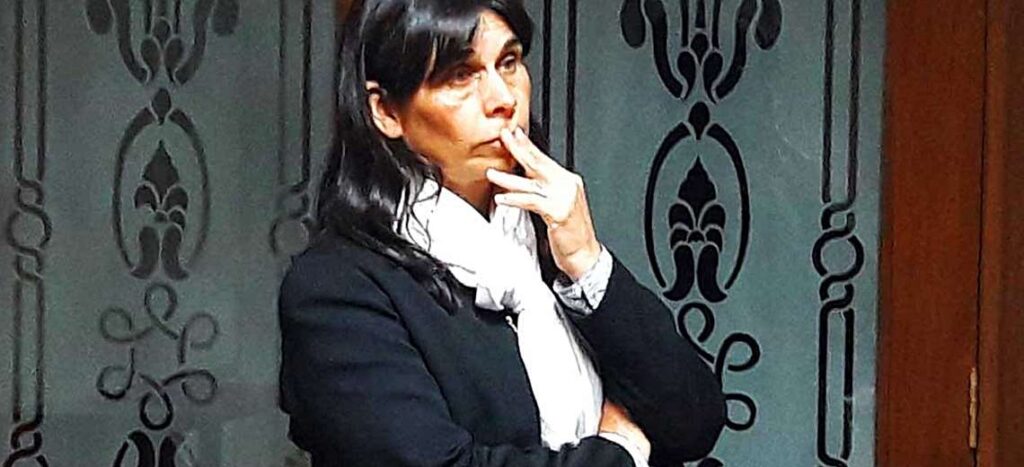
Former Supreme Electoral Tribunal Member
22 November 2021
Former Tribunal member Baptista reveals that the Supreme Electoral Tribunal (TSE) did not resolve two causes of action that could have led to the loss of the MAS legal status
The former electoral authority re-wrote a letter explaining the reasons for her resignation. Among several denunciations, she says that in the week she was on vacation, 60 officials without merits were hired
Rosario Baptista reappeared after her resignation from the Supreme Electoral Tribunal (TSE). The former Tribunal member, in an extensive letter, revealed that the electoral body did not resolve two causes of action that could have led to the loss of the legal status of the Movement Towards Socialism (MAS). The former authority also assured that if Bolivia does not change the electoral system –and also the functioning of justice– “a tyrant government” will be consolidated and “Evo Morales will go unpunished,” whom she considers as a person who wants to hold on to power.
In addition, Baptista revealed that in the week that she was on vacation, 60 officials without merits were hired and with the endorsement of Tribunal member Dina Chuquimia, appointed by President Luis Arce.
“And it is for this unique party that the Supreme Electoral Tribunal chose not to process a denunciation. A Tribunal resolves the cases submitted to it, it does not hide them, it does not choose what to judge and what not. It is its obligation to process everything, even if only to reject it, in accordance with the law. In this specific case, the existence of two causes of action that could have led to the cancellation of its legal status was denounced, one for the use of State property for the electoral campaign of Evo Morales, and the other for discrimination, explicit in the Organic Statute of the MAS-IPSP approved in 2012, which determined that access to public service corresponds only to party members,” Baptista revealed.
The former Tribunal member said that the denunciations were unsuccessful because the causes of action went from one “direction to another direction” and that there was no response from the officials of the electoral body, who according to Baptista, were threatened in order not to resolve the case.
“I was accused in the Plenary Chamber of inventing the fact that the denunciation was pending, they forgot that I was going around from one direction to another, without anyone wanting to process it. The investigation was carried out; the evidence was obtained, not legalized because the officials in charge were threatened, the Ministers in office refused to hand it over, and all this during the transitory Government. Today, this denunciation is still pending processing, many others filed for the same purpose were resolved, but with different causes of action and without valid grounds, all were resolved in due time; not this one,” Baptista said.
Then, the former Tribunal member demands that changes be made in the State Organs in order to avoid a “tyrant government” and to avoid impunity in favor of Evo Morales.
“Failure to make corrections to the system that makes up all the Organs of public power, distorted by a malicious will that has hijacked the sovereignty of the people in favor of a political party, entails the consolidation of a tyrant government, which has dismantled democracy and will persist in sustaining with impunity those who, like Evo Morales, cling to power by deceiving and betraying the very people they claim to represent, to whom they have done nothing but divide, based on lies,” says part of Baptista’s letter, who does not clarify whether she is in Bolivia or outside the country.
Baptista questioned that there is only one political party in Bolivia, referring to the Movement Towards Socialism (MAS), and rejected that there is a system of political parties in the country. The former Tribunal member considered that the MAS should lose its legal status and considered that “the circles of impunity and corruption should be broken” so that “those who have hijacked democracy” do not govern.
“Under these conditions, things cannot even be corrected from the inside; the responsible, active and committed participation of the population is required; it is time for citizens to regain their sovereignty, and exercise it directly and legitimately, respecting their diversity, free from pressure, extortion, and manipulation of the ruling power, exercising their right to resort to ‘the supreme recourse of rebellion against tyranny and oppression’ considered by the Universal Declaration of Human Rights, when their rights are not protected by a regime of Law. It is not a political issue, it is a Human Rights issue and minimum guarantees to regain the Rule of Law. Changing things requires starting from something, and that something is nothing more than breaking the circles of impunity and corruption. Those who have hijacked democracy to dismantle it cannot govern,” says another part of the letter.
Baptista added that in the week that she was vacationing, 60 officials who do not meet the criteria to join the electoral body were hired. These new public officials –she said– had the endorsement of Tribunal member Dina Chuquimia, who was appointed by President Luis Arce to replace Salvador Romero. The former Tribunal member again denounced that the electoral body has employees who “are under pressure and control from those who operate internally for the MAS.”
“The appointment of personnel must be made through public recruitment. In my absence due to vacation, they appointed more than 60 people, without even verifying if they met the requirements of the position; they refused to do it for six months, starting in April, and in one week, during my absence, they filled all the vacant positions, under the lead of the newly arrived Tribunal member,” revealed Baptista.
The former Tribunal member regretted that she now needs to look for security for fear of reprisals from the current ruling power and the justice [system] for the denunciations that she put forward. In addition, Baptista said that it doesn’t matter where she is at the moment, so she did not specify if she is in Bolivia or abroad.
Below, the letter from Rosario Baptista in full:
MY COMMITMENT TO BOLIVIA
I am Rosario Baptista Canedo, from Cochabamba, I was born in 1965, I am a lawyer and I have worked all my life in the field of human rights, especially the rights of women and indigenous peoples. I decided to run for the Supreme Electoral Tribunal in 2019, after the serious political and social conflict that occurred after the General Elections process of that year. 502 people applied, and after a process of qualification, examination, and merit contest, the Legislative Assembly appointed 6 of us as members of the Supreme Electoral Tribunal.
The position for which we were elected is that of Members, it is a judiciary position of a Supreme Court, in which political rights are protected and the democratic institutionality of the country is safeguarded, through the formation of the organs of the public power through the citizen vote, for which we must be impartial, and ensure that the entire Electoral Body is impartial; we have relations of cooperation and coordination with the other Organs: the Executive, the Legislative and the Judicial, but it is our obligation to also preserve our independence and separation from them because that is how the organization of the State in democracy is founded. But we must not only be independent from them, but also, and especially, from political organizations, which we regulate, register, and supervise.
As members of a Tribunal, we do not denounce; we receive people’s requests, denunciations, and warrants; we process, respond, investigate and sanction them, when appropriate. That is why we are a Supreme Tribunal. Receiving a denunciation and evading its processing due to the consequences it could have is unethical, undemocratic, violates human rights, generates responsibility for the State, and constitutes a crime. It is lying to the people, it is omitting the obligation to impart electoral justice; is to look away and feign insanity.
In our political system, electoral participation is mediated by political organizations: [political] parties, citizen groups, and indigenous peoples. In the last 15 years, we have seen that a single party of national scope has been consolidated, there are 10 other small, dispersed, some without even militants, which have given rise to a black market of acronyms, borrowed, rented, sold, regardless what their declaration of principles, their government program or the ideological position they have (because they no longer have any of this), which the opposition turns to for each election; other parties, the least, have national legal status, but only departmental presence. The truth is that the political party system practically does not exist. There is a single party.
And it is for this unique party that the Supreme Electoral Tribunal chose not to process a denunciation. A Tribunal resolves the cases submitted to it, it does not hide them, it does not choose what to judge and what not. It is its obligation to process everything, even if only to reject it, in accordance with the law. In this specific case, the existence of two causes of action that could have led to the cancellation of its legal status was denounced, one for the use of State property for the electoral campaign of Evo Morales, and the other for discrimination, explicit in the Organic Statute of the MAS-IPSP approved in 2012, which determined that access to public service corresponds only to party members. On a second occasion in which its legal status was at equal risk, the party itself confessed that the provision, by which in a previous election the legal status of a Beni political organization was canceled, a few days before the voting day, was unconstitutional and this was officially recognized by the Constitutional Court, which on the previous occasion found a way out to avoid saying it.
The justifications for not processing that denunciation can be many; the political conditions that existed just a few weeks before, the threat of a civil war, a political pact between the different forces in conflict, with the endorsement of some Tribunal members, ideological conditioning, financial gifts, personal threats, or simple negligence. None of them are a legal reasons; none of them are in accordance with justice. None of them are given directly to the people, and none of them justifies failing to fulfill our obligations. I was accused in the Plenary Chamber of inventing the fact that the denunciation was pending, they forgot that I was going around from one direction to another, without anyone wanting to process it. The investigation was carried out; the evidence was obtained, not legalized because the officials in charge were threatened, the Ministers in office refused to hand it over, and all this during the transitory Government. Today, this denunciation is still pending processing, many others filed for the same purpose were resolved, but with different causes of action and without valid grounds, all were resolved in due time; not this one.
The problem is not just whether or not there was a fraud (the word does not even exist in our legislation). There is no true transparency, we always had and will have that doubt. Because there were doubts, a new electoral register was requested in the streets, which was made in 2009 and the spurious means of its creation also generated doubts, never cleared, leaving the door open to uncertainty about its legitimacy. And more than 10 years later we are at the same point, with the same doubts, after another questioned election in 2014, the shameful one in 2019, and the supposedly exemplary one in 2020. Not carrying out a thorough investigation makes doubts persist, mistakes are repeated and illegitimacy is installed. The problem is structural, of an electoral system designed to measure, with unconstitutional laws, submissive officials, and all the inaccessible information (the most critical under confidentiality protection). The solution must also be structural and not political. There are general problems and other specific ones. Summarizing, I mention a few:
The Organs of the State with jurisdictional competence, that is, the Electoral and the Judicial, as well as the Constitutional Tribunal, are formed through the Legislative Organ, which is eminently political, with an absolute majority of a single political party, the citizen vote in judicial elections only legitimizes the party’s candidates, maintaining an iron submission over them.
The Constitution and the main laws are the product of agreements emerging from high-conflict situations, in which politicians made and make agreements responding to their interests, often personal, because they do not have a political party and they omit the interests of the population, for their benefit.
The political party system has been completely destroyed, leaving a few surviving parties, by decision and will of the hegemonic party, to which they are functional. The politicians join in, paying the “rent” of the initials for each election, participating in this farce with all enthusiasm. This system is maintained despite its democratic ineffectiveness, but independent participation without political organizations is prevented.
When the system cannot manipulate the results in its favor, it simply ignores them, as it did with the 2016 referendum, violating the Constitution and the laws. Not only did the Supreme Electoral Court itself do it, which enabled Evo Morales for the third time in 2014 and for the fourth time in 2019; the Constitutional Court also did it in 2014, 2016, and 2019; and the politicians also did it by participating in elections with an absolutely illegal candidate, without questioning anything. They legitimized him with their presence; now they demand my presence to legitimize the acts of this Supreme Electoral Tribunal, to which my dissident position benefited to simulate a “balanced” conformation, and we citizens have legitimized it with our vote, the vote that when it is doesn’t suit their interests they do not want to respect.
The electoral legislation is unconstitutional; this was recognized by the MAS itself when its legal status had to be canceled, as they did without blinking in 2015 against a political adversary, but it also violates due process, putting individual rights in the hands of the party delegate, thus allowing corruption and sale of candidacies and preventing internal democracy in political organizations. Law 1096 is unconstitutional; it violates political rights, giving political organizations (the single party) the political right to be elected. Filing actions of unconstitutionality only serves for the record, because the Constitutional Tribunal will not do its job impartially and will only consolidate them, with all its arbitrariness.
The system tolerates torture exercised against women in elective office, to achieve their resignation in favor of their substitutes or that their actions be subjected to the interest of the party. Violence against women, especially in municipalities and departmental assemblies, is not addressed effectively, the treatment of a regulation that sanctions political parties for these acts has been omitted, which has been seen in the cases brought to the attention of the Supreme Electoral Tribunal (TSE), respond to organic decisions, especially and mainly in the case of the MAS.
In the technological, legal, and jurisdictional field, it is avoided to open the sources, to allow the observation, supervision, and real and effective citizen control; they expect an act of faith from the people, to justify the absence of institutional transparency. There is no need to carry out an “archeological [study]” of the electoral register. They want to convince about the integrity of the electoral register through publicity, with slides and exhibitions. Technology must be open, subject to public scrutiny, all the time, permanently. There is no reason why it should not be. Confidentiality clauses only raise doubts. Everything can be fine, it is a possibility. But nothing indicates that it is. What cannot be verified, cannot be validated, and much less legitimized. There are enough reasons to doubt. But there are also mechanisms to clear up these doubts and they are not being used.
The appointment of personnel must be made through public recruitment. In my absence due to vacation, they appointed more than 60 people, without even verifying if they met the requirements of the position; they refused to do it for six months, starting in April, and in one week, during my absence, they filled all the vacant positions, under the lead of the newly arrived Tribunal member. In the electoral period, designations were made on the basis of merit, but it was agreed that after the elections, designations would be done through public recruitment, which was complied with. They are dubious designations, with their backs to the people and, above all, faithful to their Statute.
People do not have access to information, elementary things are kept in reserve; there are no means for the population to verify the conditions of an election or challenge it. The algorithms should be public, open; the algorithms of the [electoral] calculation, of the jury random selection, should be visible so that citizens who understand the issues can verify that they are okay; the sessions, recordings, and minutes of each plenary session must be public, they are essential elements to generate public confidence, as well as the processes of hiring electoral notaries and many etceteras.
The participation of indigenous peoples has been limited, it is unacceptable that the first time they participated directly without party mediation for the election of special indigenous seats was as recently as 2020, eleven years after the approval of the Constitution, and 3 elections later; but even so, they were forced to compete against the party. The possibility of participating as political organizations was recognized, but their participation in single-member constituencies, for example, is prevented. The MAS has divided the indigenous, native, and peasant organizations, preventing the defense of their rights and subjecting once again the interests of their peoples to the party. And there are the issues of the prior, free and informed consultation that the Electoral Body supervises, nominally and seeing mining, logging, and hydrocarbon concessions pass, without complying with this constitutional requirement, in addition to invading their territories, again and again, to hand them over to corrupt interests.
The form of allocation of multi-member seats in the departmental assemblies has been designed so that regardless of who assumes the governorship, the assembly is always in control of the MAS, by far. The presidential system (which is not the best anyway), planned at the national level, has been broken, whereby the vote obtained by the Executive determines the percentage of multi-member deputy delegations. At the departmental level, the Governor goes alone, which would not be bad at the national, departmental, and municipal levels, so that all representatives, in all legislative assemblies, be elected individually and democratically. But as currently designed, the percentage allocation by political organizations clearly creates benefits for a single party.
But this is not all.
I understood that my presence not only legitimized impunity; my presence was generating a mirage that prevented us from seeing how the Electoral Organ is kidnapped; although initially professional, committed to democracy, efficient and reliable personnel were appointed, today they are under pressure and control from those who now operate internally for the MAS.
We must not forget the already open, shameless, and shameful defenestration carried out by President Luis Arce of six Tribunal members of the Departmental Electoral Tribunals of Pando, Beni, Santa Cruz, Potosí, Oruro, and Tarija, three of them who held the presidency, nor the complicity of the Constitutional Court for a similar act, to remove with the stroke of a pen four Tribunal members of the Beni Departmental Electoral Tribunal, legitimately elected and appointed as determined by the Constitution, now in legal limbo due to a constitutional protection action granted to a person who was disqualified in the selection process, and for which the appointment process of four Tribunal members who were in office has been annulled, leaving from July 21 an entire Departmental Tribunal without authorities (except for the Tribunal member imposed by President Arce).
And to date, four months later, that Tribunal is in the hands of a single Tribunal member, who is the “trusted” member of the President and is administered by the Supreme Electoral Tribunal (TSE). But, above all, it should not be forgotten that the Electoral Body maintained public silence in both cases and that internally they received and welcomed the presidential Tribunal members. And now, only a few Tribunal members are waging a solitary struggle defending themselves not only from the indifference and passivity of the Supreme Electoral Tribunal itself, but from the many criminal proceedings initiated against them and the “procedural burden” that prevents the Constitutional Court from addressing in a timely manner the constitutional actions filed.
I showed my dissent, they were published; I exposed them, despite the gag of the sole member’s position. I have not seen those who now regret the “take over” of the Electoral Body, regarding the Organic Statute of the MAS, with which they not only appropriate the Electoral Body but the entire State, unabashedly. It states that THERE ARE NO NEUTRAL OR INDEPENDENT AUTHORITIES IN ANY STATE INSTITUTION. And I have not seen those who now regret a biased Electoral Body get outraged. Those who exercise functions in positions that require independence and impartiality have two paths: either join the party, make monthly contributions and accept the mandatory consultation with their National Directorate to make decisions, or leave. Unless, as the Tribunal members say, the militants do not agree and file the “corresponding actions to determine their unconstitutionality,” which should have been determined by the Supreme Electoral Tribunal. They made their decision, and they stay. We know under what conditions, the Statute they registered sets said conditions.
When the political and social crisis of 2019 occurred, which was nothing other than the overflow of an already inadmissible situation generated by the MAS-IPSP, to impose itself violently and remain in power indefinitely as a mechanism to guarantee its impunity; those called to respond to this situation to give the population a truly democratic, honest and justice-framed option, with a vocation for service and loyalty to the citizenry, acted away from that clamor, they did so from pride, taking advantage of the situation to postulate their candidacies in a voracious struggle, leaving people –once again– without options that truly respond to their needs, adding another factor of advantage to the many already existing in the system, to perpetuate in power those who have criminally dismantled democracy.
It is important not to lose the horizon of the structural. If only one issue is resolved, it is not enough to correct the system. The agenda indicates that later will come the legislative reform of the laws on electoral matters; the population and housing census, which will lead to the redistribution of single-member districts; the judicial elections, and then again the cycle of general, departmental, regional and municipal elections, successively, all this without making open corrections, with citizen participation and observation.
A binding means of verification, carried out by citizen input, open to those who freely assume the responsibility of verifying with the endorsement of the scientific research method, the processes and the application of human rights in the Constitutional, Justice and Electoral Tribunals, in order to verify the impartiality, independence, and adherence to the Constitution and the laws that apply in the cases submitted to its jurisdiction and competence, is the way to restore justice, establish guarantees and with it, democracy, restoring the rule of law, restoring sovereignty to whoever belongs in an inalienable way: the people. And the people are all of us, not just the militants of one party.
In the meantime, there will be no other solid political organizations, nor will citizens be adequately informed, nor will respect for the vote be guaranteed. Failure to make corrections to the system that makes up all the Organs of public power, distorted by a malicious will that has hijacked the sovereignty of the people in favor of a political party, entails the consolidation of a tyrant government, which has dismantled democracy and will persist in holding with impunity those who, like Evo Morales, cling to power, deceiving and betraying the very people they claim to represent, whom they have done nothing but divide, based on lies.
Under these conditions, things cannot even be corrected from the inside; the responsible, active, and committed participation of the population is required; it is time for citizens to regain their sovereignty, and exercise it directly and legitimately, respecting their diversity, free from pressure, extortion, and manipulation of the ruling power, exercising their right to resort to “the supreme recourse of rebellion against tyranny and oppression” considered by the Universal Declaration of Human Rights when their rights are not protected by a regime of Law. It is not a political issue, it is a Human Rights issue and minimum guarantees to regain the Rule of Law. Changing things requires starting from something, and that something is nothing more than breaking the circles of impunity and corruption. Those who have hijacked democracy to dismantle it cannot govern.
I want to express my appreciation for all the expressions of solidarity, appreciation, and support, thanks to which I feel good, with the spirit to continue, always. I regret having to seek protection, not only from those who exercise power, but also from our justice system, which is the one I should trust and the one that should protect me, but, on the contrary, it has become a servile tool of persecution and extortion. It doesn’t matter where I am. I am with my country, seeking that human rights and justice be restored.
Rosario Baptista Canedo
Source: https://eldeber.com.bo/pais/exvocal-baptista-advierte-que-si-no-hay-cambios-en-el-sistema-electoral-se-consolidara-un-gobierno-t_256067?utm_medium=Social&utm_source=Twitter#.YZzF10XOs70.twitter
ROSARIO BAPTISTA: A CALL FOR THE RESCUE OF THE PLURINATIONAL ELECTORAL BODY (OEP)
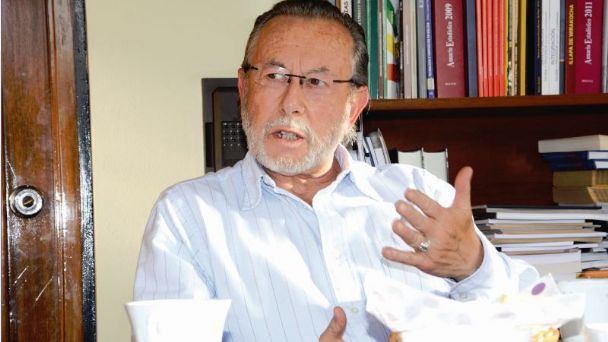
Lawyer, former Parlamentarian and Mayor of La Paz
“The total control of all State Bodies by the ruling party (…) has left the vote as the only surviving element, but under technical, institutional, and legal conditions that make it nominal, since the citizen’s will and sovereignty are manipulated; (…) in the 2020 electoral process the true results were ignored (…) subjecting the citizens to the will of the political party, which under current conditions will never lose an election (…).”
Rosario Baptista C. – Former member of the Supreme Electoral Tribunal
22 November 2021
Rosario Baptista: a call for the rescue of the Plurinational Electoral Body (OEP)
“The total control of all State Bodies by the ruling party (…) has left the vote as the only surviving element, but under technical, institutional, and legal conditions that make it nominal, since the citizen’s will and sovereignty are manipulated; (…) in the 2020 electoral process the true results were ignored (…) subjecting the citizens to the will of the political party, which under current conditions will never lose an election (…).”
This is what the lawyer Rosario Baptista affirms in her resignation letter, which is, at the same time, a very serious denunciation not only against the MAS Government but against the Supreme Electoral Tribunal (TSE) itself, now placed in the dock.
The seriousness of what Baptista affirmed will surely be supported, in the coming days and weeks, by data, evidence, or at least indications that the former Tribunal member, who was an integral part of the Supreme Electoral Tribunal (TSE) for two years, has in her possession, and who, at least three times, has put forward her dissent regarding the handling of the Plurinational Electoral Body (OEP), especially, in regards the Electoral Register.
However, we should not wait for this evidence, which the former Tribunal member must transmit to us, to take initiatives and face what is a deep fissure in the credibility of the Electoral Body that can crumble its precarious structure and, with it, the democratic stability that is based on the majority popular will expressed in the vote, as an essential political right, whose safeguard is in the hands of the Supreme Electoral Tribunal (TSE), today seriously questioned.
For this reason, because an immediate and true institutional reorganization is required, the statement made by Óscar Hassenteufel, on behalf of the Electoral Body, “vehemently rejecting the reckless and fanciful assertions of former Tribunal member Rosario Baptista” does not seem the best response to the denunciation. As if the national political context and the conduct of the ruling party were not precisely that of the authoritarian exercise of power and the permanent deployment of hegemonic actions that today try to silence the parliamentary minority, which have absolutely subordinated the judicial body and which they try to eliminate, through judicial persecution, the dissent of the departmental and municipal autonomies.
Rather, what is fanciful is to believe that we enjoy the rule of law, independence of powers, democratic institutions, and the full validity of constitutional rights and guarantees.
For this reason, the announcement of the electoral member Francisco Vargas seems more appropriate that the “biometric platform of the electoral register will be updated with a budget close to 30 million bolivianos,” but that update is not enough at all. There are better voices such as those of Comunidad Ciudadana that proposes the formulation of a new electoral register, which should at least oblige the immediate promotion of an external and international audit of the electoral register, to verify its integrity, to correct its deficiencies, or to effectively carry out a new electoral registration about which there is no doubt.
If the biometric basis of the electoral registry of the voting population is in doubt, what is in question is popular sovereignty, enshrined in Article 7 of the Constitution as a State principle and fundamental value, from which “emanate, by delegation, the functions and attributions of governmental bodies (…).” And the popular sovereignty of the vote is under the custody of the Plurinational Electoral Body (OEP), which must become transparent.
For this, a plural, impartial and immediate investigation must be opened by the commission provided for in subsection 19 of Article 158 of the Constitution, to which the lawyer Baptista must be summoned, to whom all personal guarantees must be provided, so that she can explain to the country the components and reasons also for this other blunt statement of her: “The Supreme Electoral Tribunal is kidnapped by interests unrelated to justice, democracy and political rights (…) it is a Body that is neither independent nor impartial (…).” If there is evidence of this kidnapping –which seems to have started in July of this year, with the illegal removal of the departmental electoral members–, it is clear that citizen and popular attention will have to be focused on RESCUE because, in the past, a well-known autocrat affirmed that whoever defines an election is not the one who votes, but the one who counts the votes.
MUCH MORE THAN JUST OCCUPATIONAL HAZARDS

Journalist
21 November 2021
Much more than just occupational hazards
It is already known that each profession has its own barriers or difficulties to be overcome by those who exercise it. They are barriers and difficulties, we could say, specific to each one of them, according to their nature. These barriers and difficulties are faced by park rangers in the middle of lonely and inhospitable places, firefighters or doctors when attending an emergency, parliamentarians or public officials in their interventions, press workers when investigating the facts in search of the truth. And the list of examples continues of what we usually say that they are just occupational hazards. Only that, for some time now, barriers or difficulties are no longer simple occupational hazards, but major obstacles turned into serious threats.
What was seen in the Las Londras case helps to illustrate what was said: a score of people, including six press workers and four policemen, including no less than the Chiquitania Commander, were kidnapped and subjected to seven hours of verbal and physical torture by an armed group that did not hesitate in shooting many times, destroying press kits, and damaging the vehicles used to reach the scene. The Police Commander fainted from the blows he received and another of the troops had to be admitted to a medical center, with three broken ribs, according to the testimony given by each of those affected by the violence.
This violence is no longer just an occupational hazard, neither for policemen, nor for journalists, because it is not only about difficulties or risks that are part of both professions, but rather a criminal action that is being undermined, and probably encouraged, by officials of the State institutions, which are rather called to protect citizens, everyone without a single exception, and to ensure constitutional guarantees for the exercise of their work. It is the evidence of this arrangement from the State bodies that leads to affirming that it is no longer a question of occupational hazards, but of real and serious threats, which can even be lethal, which are facing –in this case– policemen and journalists.
I am going to emphasize the case of the press workers, because it is no longer an isolated case and, furthermore, because of the danger that this reality entails for freedom of press and expression in Bolivia and, therefore, for democracy. It is clear that there is an excessive desire to restrict the work of the media as much as possible and thus prevent irregular events that are occurring in the country from coming to light, under the protection and encouragement of the ruling party. They will say that in this effort there are many more, and that is also true: power, be it political or economic, is uncomfortable with the control of their actions and that what they often hide is revealed. But in recent times, it is also evident that this desire is greater and with more violence from the central power.
It is not just about what was seen in Las Londras. This violence at the hands of irregular groups, which also threatens other sectors of civil society, as has already been denounced by firefighters, park rangers, and indigenous peoples who suffer the illegal occupation of their lands and territories, is also perceived in other areas and through other manifestations, such as verbal violence, of which there are plenty of examples among the official spokespersons who do not tire of feeding feelings of hatred and resentment among their peers. Undoubtedly, this type of violence is part of the statement of a supranational MAS deputy in which he advocates economic asphyxiation of the media that do not submit to the official account of the events. Threats that are increasing in tone and aggravate a problem that no longer concerns only the media or press workers, but also society, because information, recognized as a common good by UNESCO, is at risk.
A major problem to which we should give the greatest possible attention, not only in a testimonial way, with verbal complaints or public pronouncements, but with de facto and coordinated actions among all institutions and sectors of civil society. Something that will have to begin by demanding the media themselves, whose owners seem to have not yet perceived the real danger that their companies are at as a business, as their main capital is in serious danger, which is none other than human capital, its workforce, which makes it possible to reach their audiences and sponsors with information.
We are in a high-risk situation. The threat against freedom of press and expression is real; it is not a fictional story. That this threat does not reach greater proportions. Let it be stopped now! There is no time to lose. In reality, we have already wasted too much time waiting for the actions of authorities and institutions called by law to stop and punish the excesses of those who have passed, without any dissimulation, from threatening to the consummation of these threats. And it is good to note: here we all lose.
Source: https://eldeber.com.bo/opinion/mucho-mas-que-solo-gajes-del-oficio_255806
THE ELECTORAL REGISTER THAT WE HAVE
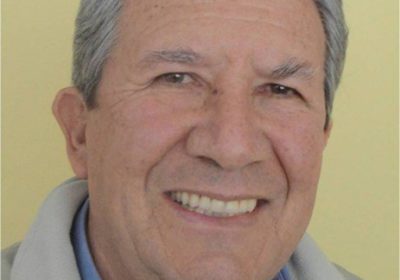
Journalist
20 November 2021
The electoral register that we have
Memories of the present
“Thanks to this spectacular growth in the electoral register, the goal of President Morales of September 7th was finally reached. From 2,616,846 registered voters on September 9th, it went to 5,088,924 on October 22nd: 2,472,078 additional registered voters. 94% growth in just 6 weeks!”
Fernando Bazúa – Center for Studies on Public Problems of Mexico
The denunciations of the Tribunal Member Rosario Baptista have been described as “fanciful” by the Supreme Electoral Tribunal (TSE), where those whom she denounced as MAS militants have decided that the current electoral register is “quite safe and reliable.”
The history of the current electoral register dates back to 2007, according to a very detailed inspection made by Fernando Bazúa, from the Center for Studies on Public Problems of Mexico, in 2009. Bazúa is Professor of Political Economy and Public Policy at the Autonomous Metropolitan University and at the Latin American Faculty of Social Sciences (FLACSO), Mexico.
The coca grower Morales, in the position of President since 2006, had decided that a free, fast, and complete issuing of identity cards should be carried out in the country. The European Union then observed that the National Electoral Court (CNE) should be in charge of doing this, since the method decided by the Government lacked transparency.
On 07/08/08, La Razón [newspaper] denounced that the issuing of identity cards in Cochabamba was being carried out at the MAS [Political] Campaign House.
On 05/10/09, 34 companies were invited to make the new electoral register. According to El Deber [newspaper], the National Electoral Court reports that the famous Venezuelan company Smartmatic was not chosen. However, on 11/24/09, La Razón reports that Smartmatic did participate in the development of the biometric [system].
On 09/07/09, Morales ordered to reach the number of 5 million registered. Amazing miracles began to occur during the registration.
On 09/11/09, Luis Pereira, director of the biometric [system], said that the registrants totaled 2,616,846, which was 91,318 more than Antonio Costas had reported the day before!
Eleven days later, the figures released by those responsible for the feat cause the author of the study to exclaim: “At an ultrasonic speed, between 09/09/09 and 09/20/09, the total number of registered voters went from 2,616,846 to 3,568,906 registrants. That is, in just 11 days, the electoral register grew by 1,043,378 registered voters!”
And about the figures of 10/12/09, Bazúa states: “At a similar speed, from 09/20/09 to 10/12/09, the total number of registered voters went from 3,568,906 to 4,561,300 people. That is, in just three weeks, the electoral register grew by 992,394 registered voters!”
On 10/15/09, the Mexican expert increased the tone of his amazement: “Accelerating the pace, only three days after 10/12/09, the electoral register grew by 268,638 registered voters! From 4,561,300 to 4,829,938 registered voters. 89,546 daily!”
“And it exceeded its expected total on 09/11/09 by 1,312,672. But it almost reached the goal of President Morales.”
I give the floor to Bazúa, whose amazement was as inflated as the figures of the new electoral register.
“Thanks to this spectacular growth in the electoral register, the goal of President Morales of September 7th was finally reached. From 2,616,846 registered voters on September 9th, it went to 5,088,924 on October 22nd: 2,472,078 additional registered voters. 94% growth in just 6 weeks!”
The Mexican expert must have seen many miracles of this type on the part of the Institutional Revolutionary Party (PRI), but when reviewing the figures of the Bolivian electoral register it seemed to him that such levels of impudence had never been reached.
Well, that’s how the current electoral register was made, “reliable and safe.”
Very safe for the MAS.
A LIE HAS NO LEGS, BUT…
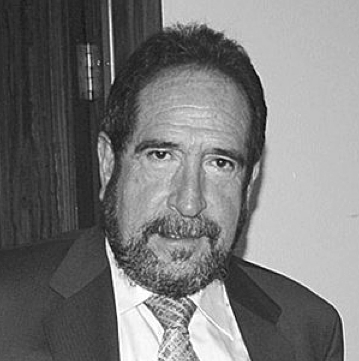
Journalist
19 November 2021
A lie has no legs, but…
When the lie becomes a resource of State management, there are moments, in which the lie is constantly reproduced, that it seems to be true.
The issue is relevant when observing the behavior of the MAS leadership in the face of pressure to abrogate Law 1386. If even the leader of the MAS and escaped former President advised to abrogate it after the social mobilization that led to its enactment, the Government authorities and the MAS leadership may have realized that they were once again presented with the opportunity to recover democratic values and open spaces for dialogue that, on the one hand, allow them to adequately face the acute crisis that the country is experiencing and, on the other hand, to regain legitimacy.
Unfortunately, once again they misunderstood the message of society, as is shown in the statement of reasons for abrogating the regulation that contains a pack of lies that even affects them in order to avoid the recognition of mistakes; rather, like roguish adolescents, they decided to approve in the Legislative Assembly other regulations that were also resisted by the people, after having mobilized their radical and violent followers, and uttering in a threatening tone that “be careful that the Inca resurrect.”
In other words, the Government authorities and the MAS fail to calibrate the mood of the citizens, but rather blindly believe the lies that they themselves believe.
This attitude is not exhibited only by the Bolivian militants of the 21st-Century socialism. The Argentine case, if possible, is more pathetic. As was foreseeable, the ruling party lost patently in the mid-term legislative elections and despite this, its President, the ineffable Alberto Fernández, summoned his followers to “celebrate victory” and one of its main candidates, who came second in the Kirchnerista main electoral stronghold, very loose of body, declared that there are those who win by losing (they) and others lose by winning (the opposition).
Not to mention Maduro, Díaz-Canel, Ortega, who are sure, feeling anointed, that reality is what they believe it to be and in that way, they lead their peoples to situations of intolerable misery and violence.
Regardless of the damage that attitudes of this nature do to society as a whole, where distrust grows in everyone and everything, ideals are also lost in the construction of modern, inclusive, deliberative societies, and power is conceptualized as simple enjoyment of those who assume it, who also take advantage of this mistrust to prevent society from organizing itself according to their interests.
In one way or another, that authoritarian black hand is also felt in the spaces of society. In the case of the mobilization against Law 1386, once it was abrogated, the Civic Committee for Santa Cruz lifted the indefinite strike, against the position of radicalized groups that wanted to maintain it, which could lead to situations of violence. Surely under these circumstances the president of the civic institution, Rómulo Calvo, recalling former Governor Rubén Costas that, when the MAS managed to put Santa Cruz under siege in 2009, assumed a responsible attitude that avoided a violent confrontation.
Once again, it is learned that above any demand that is pursued to build a better society is that of guaranteeing people’s lives, a lesson that must always be remembered in the difficult handling of social mobilizations.
In addition, history shows us that despite the lies, which sometimes have long legs, it is through the use of the resources of democracy and the commitment to solidarity that it will be possible to recover values of peaceful coexistence to face inclusive development. This is how we are shown by the attitude of the native peoples of the lowlands, the 2016 referendum, the rejection to the fraud of 2019, [and] the elections of 2020 and 2021.
Source: https://eldeber.com.bo/opinion/la-mentira-tiene-patas-cortas-pero_255569
HOW ARE WE AND WHERE ARE WE HEADING?
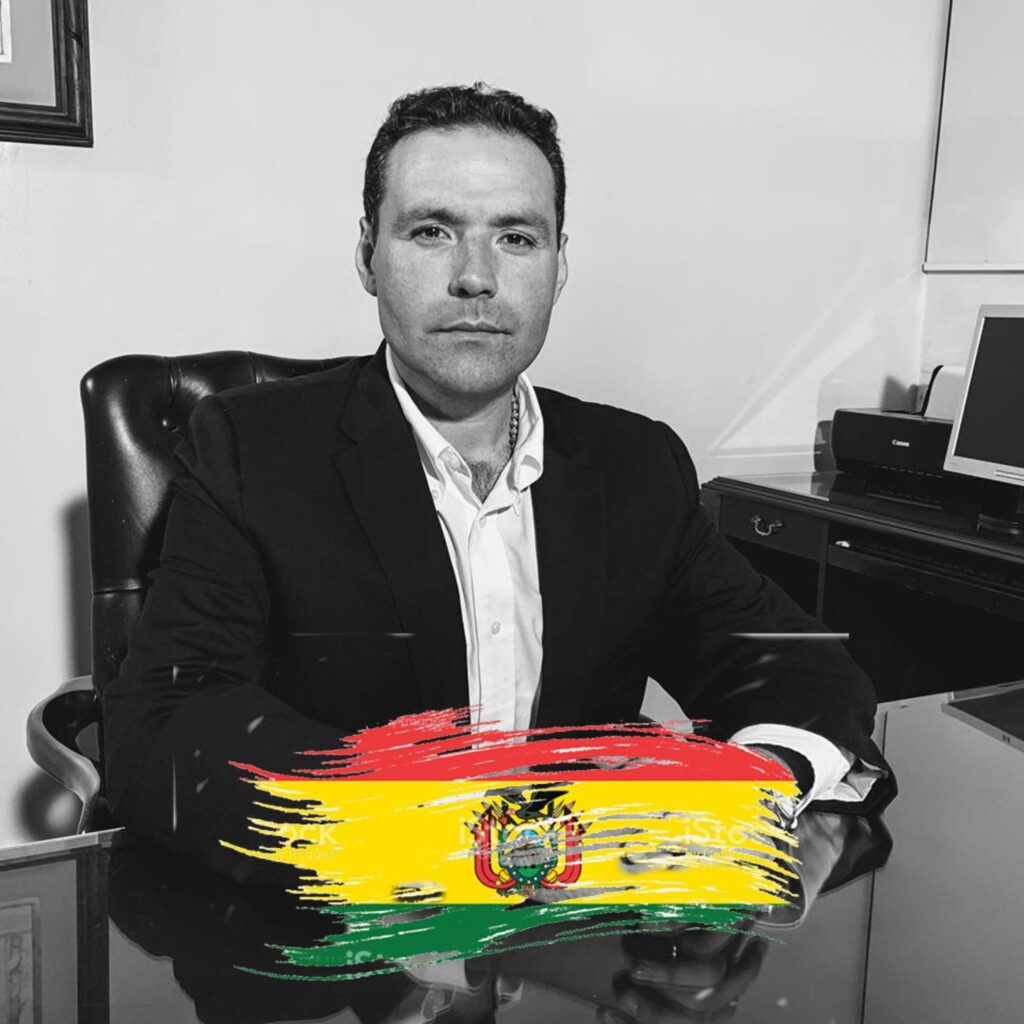
Journalist, Lawyer, and a patriotic activist.
15 November 2021
How are we and where are we heading?
In the political sphere, the Bolivian population finds itself on opposite positions, between an ethnocentric socialist approach, which seeks to reach radicalism to sustain a political instrument arguing the sovereignty of the peoples as if they were subjugated or subjected while in the exercise of power.
The other position defends an autonomous progressive thought with connotations contrary to those of socialist thought, in which it perceives that it violates their rights and, therefore, violates the Constitution, because it endangers their work, their undertakings, and their patrimony, among other things, but fundamentally, they feel that the education of their children takes place in a framework of absorbent statism that undermines their will to choose and to function.
As regards the Electoral issue. In the October 2020 elections, the governing party obtained 55% of the citizen vote (percentage, currently questioned by Rosario Baptista, a Tribunal member of the Supreme Electoral Tribunal and several different actors) and the opposition obtained 45%.
As a conclusion, it should be mentioned that the MAS cannot govern as if it had obtained 100% of the votes and pretend that there is no counterweight of minorities; and [they should understand that] that 45% is far from being an absent minority.
From the point of view of Baptista (Member of the Supreme Electoral Tribunal), there is a serious questioning about the actions of some members of this Court that, with the knowledge of Salvador Romero, who in the past administration served as President of the Supreme Electoral Tribunal, could be that this 55% in favor of the governing party be challenged again due to irregularities that could soon come to light, which would constitute a second fraud. Therefore, it is essential that a forensic audit be carried out on the electoral register.
As regards the Economic sphere. Beyond the figures cited in an inconsiderate, bellicose, confrontational, and ethnocentric speech in which President Arce accused 45% of the population (possibly this percentage being higher) of being coup-mongers; obviously there is uncertainty in regards precise data of the economic situation, information such as the Net International Reserves, the monetary issue, the Bolivian Fiscal Oil Fields (YPFB) budget execution, and the budget execution of the rest of State companies.
The National Statistics Institute is currently a politicized institution, whose data do not coincide with the analysis of other economists (such as, for example, with that of Dr. Gonzalo Chávez and his prediction of 1.36% annual GDP growth) and the Government figures of around 4% growth for the current year.
Therefore, the economic data is very uncertain, and proposed bill 342 on the Economic and Social Development Plan 2021-2025, intends that the reactivation processes go through the embargo of resources from governorships, city halls, universities, and autarkic institutions so that they survive with the minimum [budget]. To date, there is no report on the profitability of the State companies (Cartonbol, Evabol, Lacteosbol, San Buenaventura [Sugar Mill], Urea Plant, etc.).
In regards Health and Education. Relying on a health event that is conducted by way of necessity in the case of Covid 19, without taking into account the efforts of the governorships, city halls, and other health institutions, says absolutely nothing. There is no information on patients with other pathologies (kidney pathologies, cancer, Acute Respiratory Infections, Acute Diarrheal Diseases, birth rates, morbidity, and other endemic pathologies such as Chagas, AIDS, etc.). Of course, we have data on the vaccines that were discarded due to an uncoordinated vaccination plan by the central and regional governments.
In the area of education, the results of the teaching/learning processes, especially of previous years, will become evident when students go on to high school or face an option for higher education. This also shows that former Minister of Education, Adrian Quelca, resigned due to acts of corruption.
Opportunities for young people. With regard to this important age group, the figures on the development of educational, professional, technical, or learning competence are not known. Data on whether young people are satisfied with their work, with their daily lives, their goals, their hopes, their future projects, and, even less, with regard to their expectations about the future of the country, is unknown.
Popular demand. It is no coincidence that the Bolivian population is organizing against the package of laws that the MAS Government intends to enact, without first promoting a consensus process, as it should be in a democratic government.
What is the solution to the current conflict? The crisis situation that the country is going through, as a result of the rejection of part of the population to the enactment of the package of laws that the Government of Luis Arce intends, requires a solution. First, the population wants Bolivia to have stability and that happens through politics in current times. Second, if the MAS Government is sure of its 55% vote, it must exercise its ability to convince the population from two-thirds of the vote in the Plurinational Assembly, restoring the equilibrium of checks and balances mandated by the State Political Constitution. On the other hand, it must institutionalize the judicial system and carry out an audit of the electoral register and of the servers used to count the votes. Finally, it is necessary to sit down with Bolivians to discuss a new State-Government administration model, since the current one neither manages to bring the population closer together nor meets their basic needs.
The solution to the current problems is in the hands of the Government, which must consider the abrogation of laws 1386 and 342 and others, and get to work.
Work on what? Govern with equity, equality, and respect for free expression.
The Government must make amends for its mistakes and must gentlemanly acknowledge its mistakes, in this way it will be recognized as a democratic Government that emerged from the popular vote. Otherwise, it will be remembered as the new Nicolás Maduro, Hugo Chávez’s successor.
Source: https://eldeber.com.bo/opinion/como-estamos-y-adonde-vamos_254952
LICENSE TO KILL
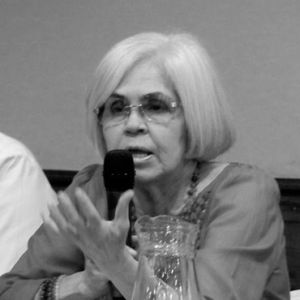
Journalist and Political Analyst
12 November 2021
License to kill
“It is not just a law… it is a much more serious problem that points to an authoritarian government, determined to impose its will over the national interest and without any predisposition to dialogue. The Government of Luis Arce intends to control society, the economy, and law enforcement agencies.”
Senator Rodrigo Paz Pereyra, in ‘Journalism without Photoshop – MT’.
The bosses of the Bolivian regime, Luis Arce, Evo Morales, David Choquehuanca, and their minions, believe that having obtained 55% of the votes in the October 2020 elections gives them the license to kill democracy.
The Assembly-member of Tarija José Yucra, affirmed that “…if we have to kill, we will do it” (Página Siete Digital 12.X.2021). Or with the deployment of Police, para-police forces, soldiers in the streets, or peasants mobilized by the regime, with excessive use of force as in Santa Cruz de la Sierra, in Potosí, in Tarija, with tear gases, with Neptuno anti-riot cars, paid gang members, threatening women, adolescents, and disabled people. The life of a young peasant has already ceased to exist, there are dozens of injured, and more than 120 detainees.
It is the “raw power”, Levi-Strauss would say, to repress road blockades, marches, and multisectoral work stoppages of union members, transporters, cooperative miners, health sector, civic and democratic platforms against laws that only seek, as the opposition Senator says, the total control of society. The peaceful protests are against the National Strategy Law to Fight the Legitimization of Illicit Profits and the Financing of Terrorism, better known as “mother law” and others, plus its bulky annexes that would allow the President to rule through [supreme] decrees. This ‘package’ paves the way for the seizure of goods and properties by the State/Government, discards rules of professional and financial secrecy to a simple complaint without a fiscal order, and can be used in the persecution of political adversaries.
It is domination to ‘equalize’ society downwards and thus lead Bolivia towards socialism “as in Cuba,” Arce’s own words: https://fb.watch/9dLk7wvpeb/.
They were never democrats, that is why Morales violated the Constitution by running for a fourth election in 2019, when in fact the Law only allows two continuous elections, and that is why he also ignored the 2016 Referendum that told him NO. They got on the bandwagon of history using the democratic method, that is, the vote, like so many populists, but they discarded the social condition of democracy, which is political pluralism so that citizens participate in the construction of the destiny of their own society.
The MAS and its leaders have opted for anti-politics from power, not only to dismantle the plural foundations of reality as a synthesis of multiple determinations but in its most radical form: the total concentration of power, in the old Stalinist way: “outside the political sphere,” as Hannah Arendt wrote in the “Origins of Totalitarianism”.
In other words, anti-politics leads to the unreasonableness of violence and brute force. That is, without democratic commitments, without dialogues, without debates, without seeking consensus, without respect for democratic institutions, there is no peaceful coexistence between different people, there is no independence of powers, there isn’t an honest and fair Judicial Power, with transparency and accountability.
The MAS of Luis Arce, of former [President] Morales and his Jacobin former Vice[-President], believe that winning elections gives them the power to despise the Indigenous Peoples of the East and to impose decisions that threaten personal freedoms, and to go against socio-economic identities of life and survival of around 80% of the economically active population. It is informality, most of them without sufficient resources to reproduce their workforce and that of their family.
Members of the MAS abuse their majority and go against the political rights of minorities, turned into disposable, that is why they don’t take them into account in the conformation of chamber directives. They are poisoning democracy because they want a unique [political] party and monolithic thinking, to the point that they encourage political turncoats who go from the opposition to the ruling party in Parliament without respecting the regulations or minorities.
We must “steal their souls,” the former Vice-President García Linera must be repeating, through the judicialization of politics, the criminalization of the opposition, and the generation of a Leninist-style press and propaganda structure. They make use of the selective use of political cruelty that they apply mercilessly to former President Jeanine Añez, through an invented coup d’État. The regime has 52 political prisoners, an unknown number of people persecuted, and more than 1,200 former exiles, plus the new ones. It is the “revenge” of the populist coca grower Morales.
Researchers studying the tentacles of the First Capital Command of São Paulo, Brazil, qualify Bolivia as a sanctuary for Narcosur (drug trafficking in the south), in addition to being a transit country for cocaine from Peru and Colombia to Brazil and Europe. One of the reasons for this illegal collusion, according to the investigations, is that drug traffickers have protection from the police and the military, given the high levels of corruption in Bolivia. According to the Corruption Perception Index for 2020, Bolivia obtains only 31 points out of 100, the same as Mexico, surpassed by Venezuela (17), Haiti (18), and Nicaragua (22).
The MAS and its followers are stealing the present and the future of Bolivian society, which we always want with freedom. Not even with 55% of votes are they licensed to kill democracy.
Source: http://www.cabildeodigital.com/2021/11/licencia-para-matar.html
Tik Tok DIPLOMACY
9 November 2021
Tik Tok Diplomacy
By: Iván Camarlinghi – Diplomat and Journalist
A few days ago, the former Ambassador to Paraguay Mario Cronenbold was dismissed from his duties for the mockery he made of one of the traditions of the Guaraní people: the Tereré, as important as tea in England, Yerba-Mate in Argentina and Uruguay or mid-morning Salteñas time in Bolivia.
Cronenbold had the curtness to believe that he was with Tachuelita or any other clown, to record a Tik Tok video in which he distorted his voice to make a fool of not the tradition of the tereré, but the Bolivian diplomacy before Paraguay, a noble and combative people that faced Argentina, Brazil, and Uruguay in a war (that of the Triple Alliance) in the 19th century and Bolivia in the 20th century.
It is shameful (also for the Mayta Foreign Ministry) that an administration in 12 months of management has been so conspicuously absent, just as we warned eleven months ago in this same [opinion] column. The only “epic” battle won by the management has been to have exterminated institutionalized diplomacy in less than 24 hours, by means of a communiqué that ordered all career diplomats to leave their positions, under penalty of being prosecuted for those who did not proceed in this way. They tell me that now several former diplomats of the Añez administration are being prosecuted.
We do not know what the Chancellor intended to do with the previous measure. Exterminate career diplomats with one stroke of the pen? He must have already realized that that will not be easy. What’s more, here we are more than 250 professionals trained by the Bolivian State to defend its interests, and we will continue to do so even if Mayta does not return our items back to us (which he should do if the judges who heard our three lawsuits against the Chancellor for having dismissed us without any motive, other than politics, had extended a just mandate).
Mayta says there is no diplomatic career (how will there be? If one of his first measures was to lay off 90% of career diplomatic personnel) and that is why it is justified to send the most rancid and rickety MAS militants to our consulates and embassies, e.g.: Mario Cronenbold. Will all ambassadors appointed by Evo and appointed by Mayta be tested? Or is the political membership card enough? Although they cannot answer even with which countries Bolivia borders.
Diplomacy is a matter of personalities. The great difference between the Ambassadors of the traditional parties and those appointed by Evo is that the traditional parties were concerned with appointing militants who had experience and merits in the activity such as Manfredo Kempff, Valentín Abecia, Guido Riveros, Lidia Gueiller, Fernando Messmer, Jorge Soruco, Jorge Gumucio, to name just a few; the difference is abysmal in relation to Evo’s Ambassadors: Mario Cronenbold, Jerjes Justiniano, Arce Zaconeta, Sacha Llorenti, Norma Brito, Diego Pary, Gringo Gonzáles, Felipe Cáceres and others who have to their credit, the ridiculous record of having tried to prosecute the Secretary-General of the OAS, with the support of 3 countries (obviously Bolivia among them), Luis Almagro, something that not even the most recalcitrant Cubans had tried at the height of the Cuban Revolution.
Is what happened to Cronenbold in Paraguay by chance? We don’t think so. Ambassadors who were not even given instructions for the mission, because that old but effective practice of the Republican Chancellery has been discarded, like most of the procedures of traditional diplomacy for having been demonized since, “supposedly,” it was employed “during neoliberal governments.” It is worth remembering that these norms are of universal use and are common to all Foreign Ministries of the world, except ours.
Mayta had to dismiss Cronenbold as soon as the offensive Tik Tok towards Paraguay was known, but the Chancellor is so badly advised that he waited for the Chamber of Deputies of that country to approve a declaration of “persona non grata” to dismiss the former “diplomat” from his position, an act that made diplomats from other countries laugh, because of how grotesque it was, but it made us cry.
Cronenbold’s outburst is by no means an isolated case. Like this case, there are many others that can be remembered in the 15 years of the Choquehuanca, Huanacuni, Pary, and Mayta administrations, such as the accusations of sexual harassment against the former Bolivian Ambassador in Moscow; the case of former Ambassador Nardi Suxo, whose daughter (former Consul in Berlin) was reported to the German Chancellery because she had confiscated the passport of the domestic worker that she brought to her destination and she seized her salary for several months without valid reason; something very similar to the confiscation that Mayta has made of more than 250 public servants whom he dismissed without justification. These are just some of the many scandals in the MAS Foreign Service, not counting other irregularities such as the payment of tickets and per diem to leaders of social movements, without these belonging to the Ministry’s payroll.
Much was said in the past about the Diplomacy of the National Revolution, of the Diplomacy of the Mining-Feudal Cronyism, of the Diplomacy of the Peoples (fantasy of the MAS), the Diplomacy of the Military Uprising, the Career Diplomacy, but nothing was ever said about the Tik Tok Diplomacy until now because the Tik Tok App did not exist, but now that it exists, it can be said, without any doubts, that the Diplomacy of Arce Catacora and Rogelio Mayta will be known as the “Tik Tok Diplomacy”. Hopefully, there is time to rectify this “diplomacy”, before the Bicentennial of Bolivia in 2025, because our great and heroic homeland and people deserve a better and more serious diplomatic and consular representation before the world.
Source: https://www.paginasiete.bo/opinion/2021/11/9/la-diplomacia-del-tik-tok-314623.html
The diplo(MAS)cy

5 November 2021
The diplo(MAS)cy
“In the world of international relations, where ‘misunderstandings’ are generally the best understandings, this phenomenon is exacerbated by the hardly reversible effect of the term used,” says Benoit Turcat in his foreword to the Basic Dictionary of International Relations, by author Aitor Iraegui.
That of the “term” is extended to the acts, actions, and gestures of diplomatic agents who represent their States in their respective legations and the highest authorities in foreign policy matters —Ministers of Foreign Affairs, Chancellors—. At times, silence can be thunderous; other times, the greatest grievances can be uttered in language so elegant that they seem like buds about to bloom. That’s how delicate the matter is.
Each government has the right to imprint its style on the relations with “other powers”, as was said before, in such a way that it is possible that each new administration generates its own particular approach on macro policies or on certain disputes. Historically, the maritime case has been a source of diplomatic formulas regarding the peer State: we have gone and returned from bilateralism to multilateralism, from vindicationism to practicalism and its nuances, the “fresh approach”, the “maritime quality”, up to a final solution that cost us the definitive loss, by a Judgment of the Court of The Hague, of sovereign access to the coasts of the Pacific.
What cannot happen, and if it does, already becomes, at least, an irregularity, is to incur in improvisation, picturesqueness, or plain rudeness. And the last fifteen years they have been prodigal at it.
The quality of the Foreign Service of a State not only depends on its policies in the matter but, fundamentally, on the preparation of the personnel that represents it. While there is a kind of tacit agreement to assign career officials and others, among prominent intellectuals and recipients of political favors, through discretionary appointments, today the Foreign Service is at its worst. A part of the diplomatic corps is made up of former judicial officials who gave the green light to the desire for indefinite reelection of their jefazo (boss); another, as if being a candidate for Mayor or Governor for the MAS was political insurance for former candidates defeated at the polls.
Mr. Morales Ayma coined “The diplomacy of the peoples”, implying that foreign relations were a matter of the “social movements”, going over regular and official channels, for this purpose. Demagoguery of colossal proportions.
The one who held the reins of Bolivian diplomacy, at least formally, for most of this period of time was the current Vice-President, David Choquehuanca Céspedes, acting as Chancellor, he went against reading, pontificated regarding the sex of rocks, and prepared papaliza in a UN assembly inviting attendees to try it because it was the “Andean Viagra”; he is also the mastermind of the “reverse clock” of the Legislative Palace. Now, the one who led the Foreign Affairs of Bolivia, confirming his flat-Earth short-vision, refuses to be vaccinated: we might as well call him Covid Choquehuanca.
The most recent episode of the impoverished diplo(MAS)cy is the one starring the adventurer who, in clear offense to the nation who gave him an undeserved approval, produced a burlesque video believing that removing it from circulation would settle the mess.
In 2015, shortly after his appointment as Ambassador to the Holy See, career public officer Armando Loayza gave an interview to a Chilean media outlet in which he referred to Morales Ayma’s “anti-Catholic trauma”. The journalist exploited the statement towards the maritime issue, but, although what the Ambassador said is absolutely true, it was not appropriate for him to mention it given the mission he held. Loayza resigned before being asked to do so. The adventurer in question does not think of doing it.
Source: https://www.paginasiete.bo/opinion/puka-reyesvilla/2021/11/5/la-diplomasia-314254.html
TikTok LEVEL FOREIGN SERVICE
4 November 2021
TikTok level Foreign Service
El Deber Newspaper Editorial
The Bolivian Government yesterday dismissed Mario Cronenbold from his functions as extraordinary and plenipotentiary Ambassador in Paraguay as a result of a publication by him on the social entertainment platform TikTok, in which the Bolivian politician is seen representing a trending video that was considered offensive in the neighboring country.
The incident, beyond the shameful considerations that they imply for the former Mayor of Warnes and former candidate for Governor of Santa Cruz for the Movement Toward Socialism (MAS), unreservedly reveals the decadence of the Bolivian foreign service, politicized in the extreme and converted by the Governments of Evo Morales and Luis Arce in “awards” for party loyalty, for former ministers and former candidates.
The current Foreign Ministry does not recognize career officials, those who have dedicated several years of their lives to training professionally as diplomats to work in the foreign service, and prefers to appoint MAS militants regardless of whether or not they have diplomacy knowledge or whether they have, at least, the basic conditions to represent the Bolivian State before nations of the world.
All the States of the world, except Bolivia, appoint professionals trained in the diplomatic specialty as ambassadors, and if there are some politicians, they are very few and, even so, usually they are people with a certain level of preparation, adequate to fulfill the delicate mission of representing a country.
In Bolivia, there is a Law of the Foreign Service and the Diplomatic Rank that is not complied with; the Foreign Ministry is completely deinstitutionalized and the universal principle that a diplomat represents the interests of the State and not of a specific government seems unknown to the authorities of the Ministry of Foreign Affairs.
The consequences of extreme politicization and improvisation are observed in cases such as Mario Cronenbold who, without any diplomatic training, experience, or preparation for the position, lasted only 24 days in his mission.
In this specific case, Cronenbold put forward the playful sense of his presence in Paraguay, and a childish gesture to add acolytes or make his followers laugh, led him to commit an offensive act for the Paraguayan republic, touching nothing less than one aspect vital in the identity of the peoples, as is their language and the accent so characteristic and different in each country.
The incident debunks that old axiom that is often repeated by certain political marketing strategists, who believe that the most important thing is to be known and therefore you have to have a high public profile, no matter what you have to do to achieve that goal.
Cronenbold strictly complied with that rule and there he is, back in Santa Cruz, without having had enough time to do absolutely nothing for the benefit of the country in the three weeks that he held the diplomatic mission was held in a country important to Bolivia, for its vicinity, for the commercial ties, and for the historical ties that have nothing less than a war in their book of common events.
If there is anything positive that the Government could draw from this painful incident, it is to reconsider its diplomatic policy to review appointments and resume the institutional route that prioritizes the presence of professional officials, who work in missions to defend the interests of the Bolivian State, and not the MAS.
Source: https://eldeber.com.bo/opinion/servicio-exterior-nivel-tiktok_253605

FIDEL, PINOCHET AND PROSPERITY

Former Mayor, Minister of State, and Chancellor of the Republic of Bolivia
2 November 2021
Fidel, Pinochet and Prosperity
I have extracted from my memoirs a colossal incident. In the early 1990s, the Cuban Ambassador to Chile visited Andrónico Luksic Abaroa, the great-grandson of the Bolivian hero Eduardo Abaroa Hidalgo and an important businessman, to extend an invitation to visit his country. As Andrónico was about to accept the proposal, the Cuban Ambassador clarified that the businessman would be received by Fidel Castro.
Faced with this singular invitation, Andrónico and his son Guillermo flew to Havana and were received by Fidel at the House of the Revolution late at night. Andrónico, who expected to face the tropical heat, wore a thread guayabera shirt, while Castro received them in an olive green uniform and military cap, warmly clothed for the freezing, fully air-conditioned room.
Andrónico, who in addition to his son was accompanied by the Chilean Ambassador to Cuba and his counterpart in Santiago, had been warned that he had to expect long monologues from the Commander. Nothing like that happened. Castro was all ears that night. He asked Andrónico about the economy in Chile, private investments, the business climate, etc. And he raised the possibility that Luksic Abaroa could invest in Cuba in the beer industry.
Towards the end of the night, Castro asked Andrónico to summarize the economic and social situation in Chile in his opinion. Andrónico explained to Castro the dynamics of economic reforms in Chile during the previous two decades and how this country had achieved a degree of economic progress with its consequent social transformation translated into general prosperity of the middle classes and a radical reduction in poverty. Andrónico explained that this new situation that placed Chile at the head of South America had also generated high expectations in the people, who would not accept in the future anything less than maintaining economic progress and sustaining the prosperity achieved.
Andrónico said that Castro kept a long silence, after which he said verbatim: “That, boy, prosperity, you owe it to Pinochet!” Andrónico, very confused, believed he had misheard, and to his disbelief, Castro repeated his statement: “Yes, boy, you owe it to Pinochet.”
Back in Santiago, a few days later, Andrónico received an invitation from Pinochet to a formal dinner. The dinner was attended by the entire military hierarchy, the Chilean Ambassador in Havana and Andrónico. At dessert time, Pinochet addressed the latter and asked him to tell the audience what Castro had said. Surely the Chilean diplomat accredited to Cuba had reported that curious as well as implausible conversation. Unsure, Andrónico asked Pinochet to specify what he was asking him to tell. To which Pinochet clarified: “That, what Castro said about me and prosperity.”
For many years I have kept this family anecdote, reserved for my memoirs. But in these unfortunate moments for Bolivia, with a tyrannical, abusive, inept, and arrogant government, I wonder if Castro, deep down inside, was not questioning himself about the path he adopted for his miserable Cuba, unlike the one chosen by the other dictator that transformed Chile. Pinochet was also a tyrant, but he made his country modernize and develop, not impoverished, as was the case with Castro. And, in addition, he kept his word, respected the result of the referendum, organized free elections, and left power.
I sense that Andrónico was correct in his diagnosis: Chileans have already tasted prosperity, and no matter how unhappy they may be today, they will not hand over their fate to the Chilean left-wing. Between the extremes, they will choose who will continue along the capitalist route that has modernized Chile.
Source: http://www.cabildeodigital.com/2021/11/fidel-pinochet-y-la-prosperidad.html
PROTECTION AND COVER-UP FOR LAS LONDRAS ASSAILANTS

1 November 2021
PROTECTION AND COVER-UP FOR LAS LONDRAS ASSAILANTS
CRIMINALS IN POWER
Dulfredo Suárez do Santos is identified as the ringleader of the gang of land-grabbers that operates in Guarayos.

For a case prior to Las Londras, he was arrested and released. He had threatened the prosecutors of San Julián, Grobert Vega, and of Guarayos, Basilio Villca, with their dismissal and so it happened, without further explanation the dismissal memorandum came to both of them, and the judge, out of fear, only gave him a month in Palmasola [prision].
They also run the National Institute of Agrarian Reform (INRA). After taking over any property, using firearms and dynamites, the INRA Regional Director, Adalberto Rojas, hands them the concession.
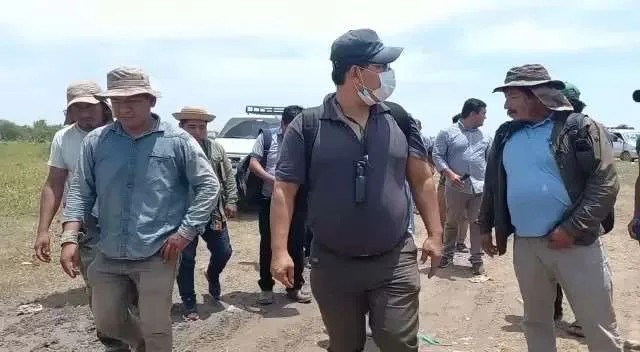
Rojas, the INRA Regional Director, was sharing lunch with the assailants in Las Londras on October 29, a day after the massive kidnapping of four policemen, journalists, and producers who, in addition to torture, suffered gunshot wounds.
And they also manage the Police who gave them 72 hours to escape and leave the camp where drugs were possibly manufactured. When the 200 policemen sent from Santa Cruz arrived in Las Londras, what a surprise, they did not find anyone.

Dulfredo Suarez do Santos and his group of land-grabbers and kidnappers are part of the Federation of Interculturalists and the Confederation of Peasants, social instruments of the Movement Towards Socialism (MAS) Government. They are the Government. This explains the protection and impunity with which they act.
The use of people with criminal records in “collectives” to beat up and murder opposition members is a “Chavista” practice that the Arce Government is copying. They are the ones who are leading the armed land-grabbing assaults, but also the prison riots against the “privileges” of Jeanine Añez, as seen in the last hours by the official television channel.
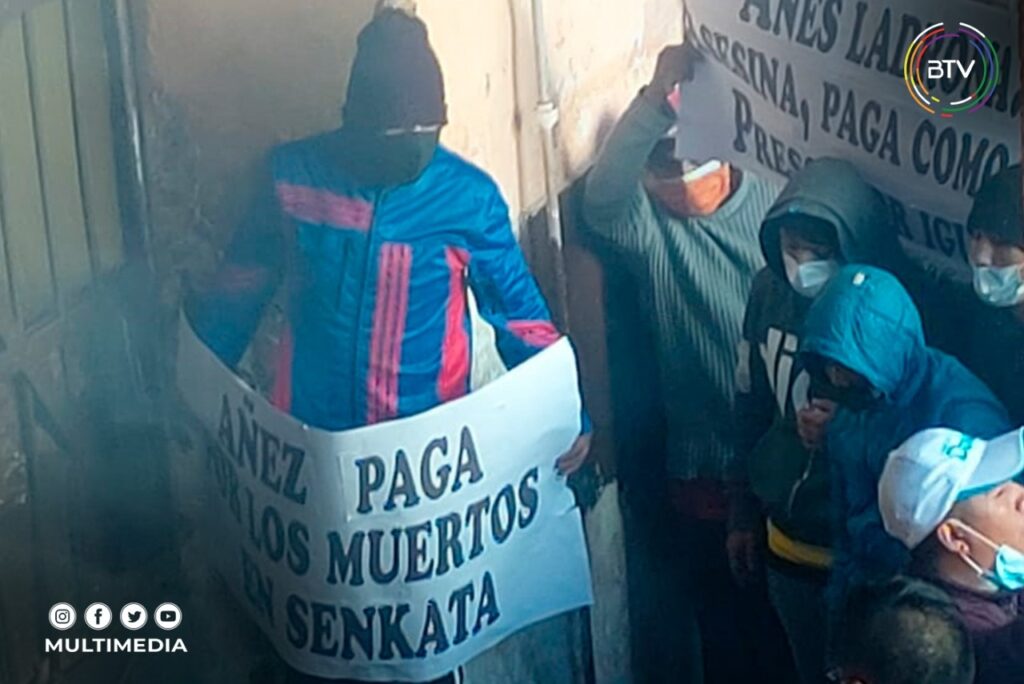
In addition, this Government is denounced for tolerating (and who knows what else) the powerful and dangerous Brazilian drug trafficking cartel, the First Capital Command (PCC).
Thus, it is understood why in four days the Government would not have detained any armed assailant, but it did apprehend Adolfo Chávez at the Viru Viru airport, former president of the Confederation of Indigenous Peoples of Bolivia (CIDOB), the organization of the native peoples of the East that was seized this Sunday by the MAS. People that marched against the illegal occupation and that obviously the Government did not want to listen to them.
This Monday, Chávez was sentenced in record time to five years in prison for an alleged crime in the Indigenous Fund.
The armed militias used by the land-grabbers are a reality in the current Government, a disastrous component for the rule of law, and we dedicate the following subtitles to them.

LAS LONDRAS AND THE MAS ARMED MILITIAS
They were exposed. We saw them in action, they exist and they are the most dangerous threat to the lives of those who go out to protest, for those who defend their property, for those who practice journalism, for anyone who crosses their path. The armed groups of the MAS are the true gravediggers of Democracy.
LAS LONDRAS
It is a farm property located in Guarayos taken over by the interculturalists of Evo Morales who in Santa Cruz have the outposts of the MAS in San Julián and Yapacaní. From there they head out, organize, get supplies, and, now we can say with certainty, they arm themselves to illegally occupy the lands of native peoples, businessmen, and nature reserves.
OCTOBER 28
Thanks to short videos and the testimony of ATB cameraman, Percy Suárez, the country was able to see an armed militia in action, a very well-armed militia. You had to see to believe. It is the copy of the drug trafficking security groups that operate in Mexico, Colombia, and the Chapare.
They have no mercy. Using gunfire bursts and striking with rifle butts, they ambushed and kidnapped 17 people, including journalists, four policemen, and the owner and employees of the farm property. They all ended up face down in a shed, where they were tortured and beaten. The worst part was suffered by the employer and his workers, who suffered repeated blows with rifle butts and withering kicks. They are miraculously alive. Suddenly the kidnappers were ordered to release them. They had suffered seven hours of terror. Percy Suarez’s voice breaks when he remembers those eternal hours in which he entrusted himself to God while death haunted that shed smelling of blood.
His camera with a bullet entry and exit mark will be the proof of this criminal episode.
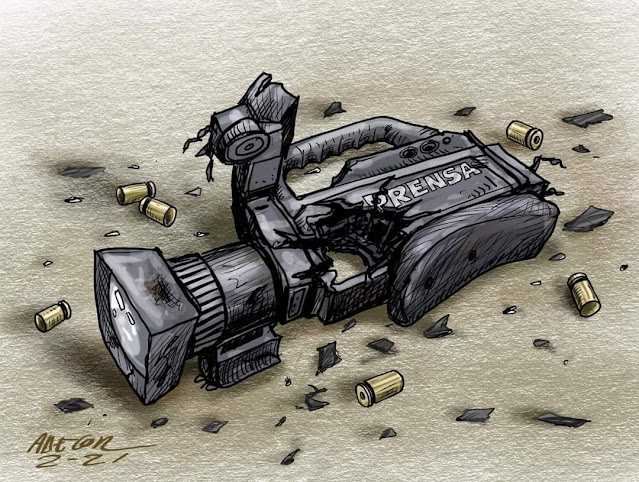
Cynicism hurts too. The next day one of the kidnappers told a local television station: “It was a misunderstanding, we scared them, there was no kidnapping.” Backing up this version, the Police Commander, Johnny Aguilera, defined what happened as an “ALTERCATION” and consequently assured that no one was going to be evicted.
Aguilera responds to the Minister [of Government], Del Castillo, the latter to President Arce, and the latter -in turn- to Evo Morales. Hence, there is no doubt that illegal land occupation and irregular armed groups are a Government policy.
GOVERNMENT POLICY
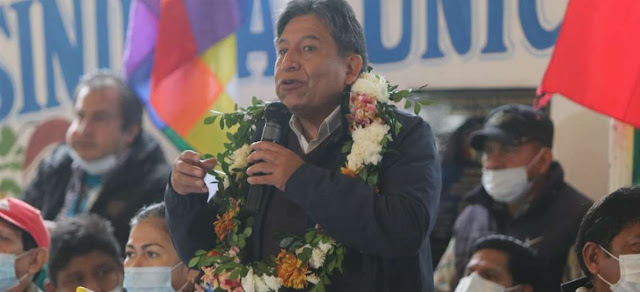
In June of this year, when there was a clamor in Santa Cruz to stop the illegal occupation of lands in four municipalities of Chiquitania, Vice-President David Choquehuanca met with the interculturalists and there endorsed and promoted the illegal taking of land. On that occasion, he said:
“It is not possible for the lands to be seized by a few. We have sworn to recover our land and territory… Those of us who have roots are the majority in this country. We are the owners of this land and territory.”
With this discourse, the interculturalists obtained the right to occupy whatever land they wanted.
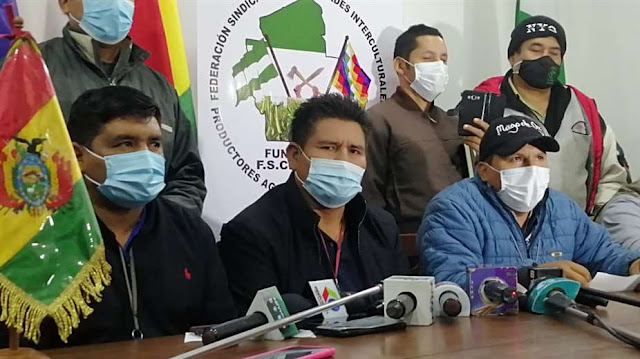
At a press conference, the leader of the Federation of Interculturalists of Chiquitania, Oscar Castro said:
“We are organizing a defense group and we will defend ourselves, even if we have to die.”
And this October 28 we saw them in action. They were not so willing to die, but rather to kill.
28% of the cleared land belongs to peasants and interculturalists of the MAS, that is, 24.8 million hectares, according to the Santa Cruz Governorship.
The illegal occupation of lands also affects Cochabamba, where at least 50 properties have been affected in recent months.
COX WANTS TO BEAT ABOUT THE BUSH
For the Vice-Minister of Government, Nelson Cox, the irregular groups that the Government has to dismantle are the Cochala Resistance and the Cruceñista Youth.
These two organizations were protagonists of the peaceful resistance to the electoral fraud of 2019 and had to face the violent offensive of the armed groups of the MAS that tried to siege cities to starve millions of citizens.
The Interdisciplinary Group of Independent Experts (GIEI), issued a report on Human Rights in Bolivia that recommends that the Government dismantle the irregular groups.
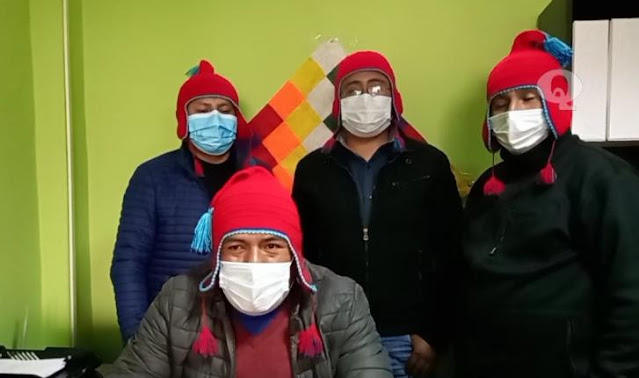
Cox ignored the existence of violent groups of the MAS, those who wear lluch’us or red ponchos, the self-organized groups that he himself armed in K’ara K’ara, those existing in Chapare, and now -evidently- in Santa Cruz.
Instead, he attacked a dozen activists and leaders of the Cochala Resistance until they were detained and prosecuted. Mario Tonchy Bascopé was sentenced to 10 years in prison on a fabricated drug trafficking charge. The same has happened in Cuba with a participant in the protests of July 11, they also gave him 10 years in prison.
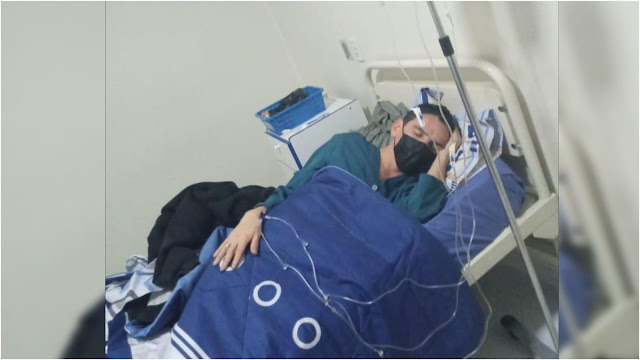
So, on the one hand, they use the most vicious repression against opposition organizations while gearing up armed militias of the MAS, which will have the task of violently crushing protests against the Government and, in return, have carte blanche to commit misdeeds. Since they were given weapons, they are going to use them in kidnappings, assaults, and illegal occupation of lands and other properties.
SELF-CONFESSED AUTHOR
I refer to the evidence, judge. That piece of evidence is the video of Evo Morales recorded in January 2020 in Buenos Aires. Openly, Evo Morales gave the MAS the task of organizing armed militias, as in Venezuela, he said. With that public instruction, the denial of a democratic leader was shown as it is.
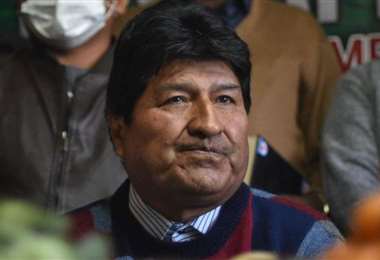
Already in October and November 2019, the MAS armed social organizations with clubs and used them as riot squads.
But also in that period of time, trained, structured, and armed groups came to light. They carried out operations in Montero, Sacaba, Senkata, and Vila Vila. But these operations were insufficient.
Evo wants more, as in Venezuela where in 2017 they killed 163 students who protested in the streets against the Maduro dictatorship, and in Nicaragua where in 2018 they took the lives of around 400 young protesters.
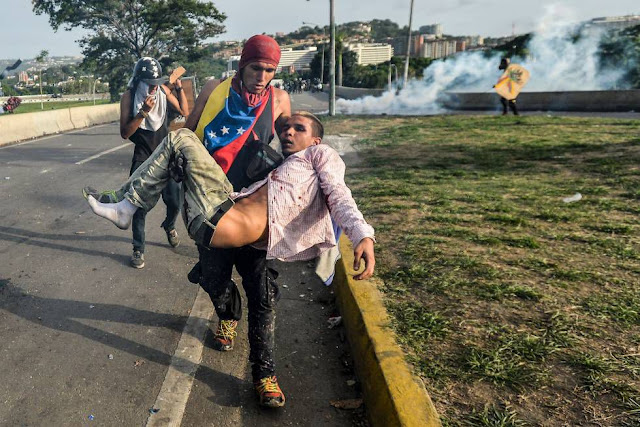
In Las Londras we have seen that Evo Morales has moved forward with his purpose of organizing armed people who will come out to defend him at all costs, as in Venezuela.
The New York Times described the actions of Maduro’s “collectives” as follows:
“The motorcyclists came with a loud noise; they were a phalanx of red jackets with dark clothes. Some had their faces covered as they revved their engines in front of the protesters. They threw tear gas bombs to disperse the crowd and, according to witnesses, they then drew their pistols and open fire.”
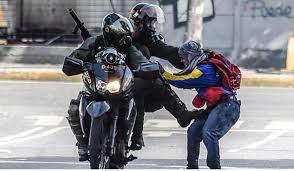
We have entered a very violent phase of the political struggle, where the undemocratic side has all the strength of the State and also with these groups that allow the Government to carry out criminal acts of which it will always wash its hands of these matters, as it already happened in the La Paz Coca Leaf Producers Association (ADEPCOCA) conflict, and now in Las Londras.
Source: http://www.cabildeodigital.com/2021/11/proteccion-y-encubrimiento-los.html
THE FAILED SPECTACLE OF THE MAS AT THE OAS
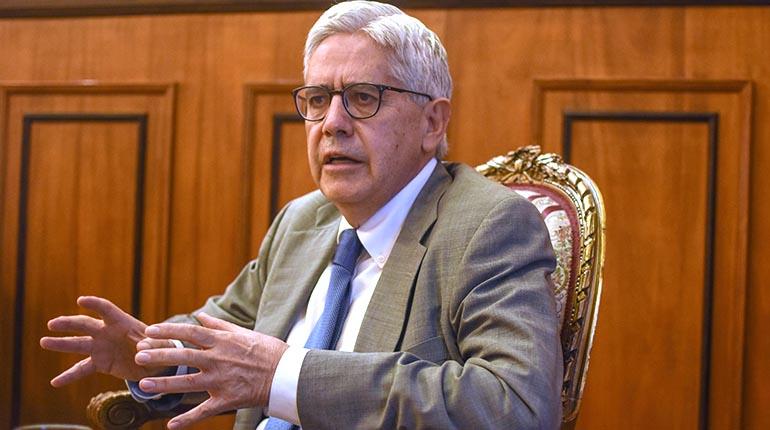
Career Diplomat, former Bolivian Ambassador to the United States
24 October 2021
The failed spectacle of the MAS at the OAS
A curious fauna of colorful characters: nostalgic for Che Guevara, statistical scholars under a contract of a radical NGO, compulsive liars, and a North American activist defender of the coca leaf to whom the wise phrase of Oscar Wilde applies that “every time a person says something completely stupid, it is always for the noblest reasons,” were summoned to the headquarters of the Organization of American States (OAS), by the permanent missions of the populist regimes of Argentina, Bolivia, and Mexico, in order to evaluate the fraudulent Bolivian elections of 2019.
In this event, some actors have put on the table their resentments, their visceral hatred towards liberal democracies and their ghosts about conspiracies, alleged arms trafficking from Argentina and Ecuador to Bolivia in a non-existent new Condor Plan, fictions about plots of the financial capitalism to destroy them, imaginary schemes attributed to Luis Almagro to destabilize them and other fantasies to collectively victimize themselves in a group therapy session.
Statistical experts, authors of reports that were already rejected by the OAS two years ago, were not well trained and were unable to deny the breaks in the voting trend after the cut-off of the data transmission from the Transmission of Preliminary Electoral Results (TREP), but they limited themselves to merely justify them. But what effectively invalidates all their analysis is that they only analyzed graphs and statistics, and left aside the evidence provided by the OAS on the innumerable electoral crimes that irreversibly contaminated the election.
This spectacle by the Puebla Group, aimed at discrediting the Report and the binding Audit of the OAS on the presidential elections in Bolivia, meant a new diplomatic setback for the Government of Luis Arce, which insists on trying to hide the electoral crimes duly proven by the OAS audit, as well as the shameful escape of Evo Morales to Mexico. However, the intention of the delegations of Argentina, Mexico, and Nicaragua to dismantle and weaken the electoral observation system of the OAS, the most solid, independent, and professional in the world, along with that of the European Union, is still worrying. That fact and that attitude is the one that should concern the international community the most. The Electoral Observation Missions (EOMs) of the OAS, which are the only guarantee that elections in the region are credible and transparent.
The strategy of using international events for circumstantial domestic policy purposes never favors the objective of a professional foreign policy, which is the defense and promotion of the permanent interests of a State. Proof of this improvisation is that they have chosen the OAS headquarters to organize a political event aimed at victimizing Evo Morales, discrediting the OAS electoral observation missions, and personally attacking the OAS Secretary-General. None of these objectives has been achieved: First, because the presentation did not have a significant audience and even Bolivians who wanted to participate were not allowed to enter. Second, the limited virtual participation was overwhelmingly from the opposition and forced the moderator to cancel the questions. Third, the political speeches left no doubt that it was a gathering between representatives of Latin American populism for the purposes of propaganda and spreading false narratives. The Argentine Representative, a dilettante of radical Kirchnerism, punished the audience with accusations of conspiracy against the former Argentine President, Mauricio Macri, and a speech from the sixties that confirms the idea of how dangerous it is to leave the destiny of our freedom in the hands of noisy demagogues.
Another dangerous element that reveals the true objective of the event is a phenomenon that transcends the very issue of the Bolivian elections and is that of the increasingly widespread practice of misrepresenting the truth. Populists presume that, currently, it is not the facts that matter but who dominates the narrative with which they acquire meaning. Under this vision, they try to impose their narrative using the lie repeated and disseminated countless times through different media. This practice generates what the Oxford Dictionary considered the word of the year for 2016: The “post-truth” or false narratives that prevail in the current global information system.
One of those gears of post-truth in the region is that of the Puebla Group and its machinery that, with the support of extra-continental powers and other obscure financings, uses propaganda for the dissemination of false narratives, actions, and coordinated speeches among its operators in governments, the international press, certain NGOs, some human rights organizations, organic intellectuals, bureaucrats, the Cuban intelligence service, whose objective is to consolidate a hegemonic power project of mafia populism in Latin America. These strategies, both left-wing and right-wing, are nourished by the methods of 20th-century European fascism and Cuban Castroism. It is not a fantasy that the ghost of that fascism is once again threatening our societies and the reality is that liberal democracies in the region are at risk of becoming their opposite: democracies of masses deprived of democratic behaviors.
Source: https://publico.bo/internacional/el-fallido-espectaculo-del-mas-en-la-oea/
IMPRISONED DUE TO A CELL PHONE NUMBER

Journalist
24 October 2021
Imprisoned due to a cell phone number
Martín Luque felt an infinite emptiness in his stomach the moment the Anti-Corruption and Anti-Violence against Women investigating judge 2 from El Alto, Miriam Tarqui Flores, ordered his arrest in the San Pedro prison. A numbness of helplessness crept from his feet to his head. His vision blurred and he felt [that he was] in an unknown dimension. He did not know, at that moment, if time was moving forward or moving backward.
Until today, he cannot explain to himself that the prosecutor Favio Maldonado Parada has not heard his statement. Isn’t the word of the defendant his main defense?
Nor is it explained, a year after the fact, that the prosecutor did not take into account the statements of his witnesses who assured that on October 2, 2020, the day of Mónica’s murder, he was kilometers away from the scene of the crime. How is it possible that prosecutor Maldonado has charged him and Judge Tarqui has imprisoned him if he (Martín) did not even know the victim?
The imputation, of terrible and poor writing, says: “the existence of sufficient elements of conviction has been established, the accused Martín Luque with probability perpetrators of the crime (sic) that he is accused of (Femicide Art. 252 Bis Num. 1 of the CC) of the Criminal Code (Art. 233 Num. 1 CPC)”
What are those elements of conviction? In the imputation, there is not even one. The “piece of paper” only reflects the confirmation of the Prosecutor’s bias that fits his evil imagination into an event that never happened.
Martín said, on Compañera radio, that the Prosecutor based his accusation on alleged chats between the victim and the number: 69782496. The Tigo Company reported, in response to a request, that this number was registered in the name of Martín Luque.
“All together we have photographic plates of WhatsApp messages where the now accused had a love relationship with the now-deceased victim of which there are conversations held from September 13 to September 24, who would be the last person with whom the victim would maintain a conversation, which is obtained through collected elements and there is the verification of number 69782496 registered under the name of Mr. Martín Luque, who would have maintained a relationship with the victim in the month of September in which he is the last person who would have been communicated with her ensuring coexistence with the now victim (sic),” says the indictment.
Martín affirmed that the prosecutor did not request the extract of calls from [the number] 69782496 from the beginning of its activation (2018). Even worse, he never found the victim’s cell phone. So how did he access those chats? He wonders. He just found out that in the chats there was a photo of Monica’s partner. And despite this serious evidence, “he accused me anyway,” he adds. The “investigator” did not investigate anything.
The laziness, stupidity, and bad blood of the policeman, the prosecutor, and the judge, responsible for demonstrating the “historical truth” and guaranteeing rights, sent an innocent man to jail.
Martín Luque assured that in 2018 he never registered [the phone] line 69782496 to his name. In that case, who did? He remembers losing his identity card in 2017. He suspects that the person who found it used his identity card to register that number with Tigo [Company].
In his informative statement, Martín said that he never saw the victim in his life. The owner of the house where Mónica lived, [in] Alto de la Alianza area, Mejillones street, El Alto, said that the couple with whom the 23-year-old woman lived was a tall man. Martín is short.
In his accusation, prosecutor Maldonado mentions 23 “elements of conviction”, among them: the first report of preventive police intervention, the autopsy report, and the WhatsApp messages. None of these elements seriously involves Martín.
The incident occurred in the Alto Alianza area, District 3, and Martín was at his home at the moment of the crime, in the Villa Adela [area], miles away from the [crime] scene.
The prosecutor and the judge believed in these “23 elements of conviction” that did not demonstrate anything other than the incapacity of both, and they imprisoned him.
Martín stayed five months and a week in San Pedro. Defeated by the evidence, the Prosecutor ordered the dismissal of the case. He released him after having caused him serious psychological, economic damage (he had debts in the bank and could not pay and spent about $ 15,000 in his defense), and social because he lost friends and family, who turned away from him when they learned of an event that never happened. His two daughters and his wife were also psychologically affected.
Martín, a 35-year-old industrial engineer, asks for financial and civil compensation. Does it correspond? Yes.
Martín doesn’t want anyone else to suffer his bad experience. He doesn’t want anyone else to feel vertigo and fear when passing through the threshold of jail being innocent.
Source: https://brujuladigital.net/opinion/encarcelado-por-un-numero-de-celular
A TERRIFYING “TORTURE BUS” RUNS IN THE CHONCHOCORO PRISON
Prosecutor Ruddy Terrazas announced that in the preliminary phase, four inmates and two policemen are being investigated for the death of inmate Cristofer Quispe.
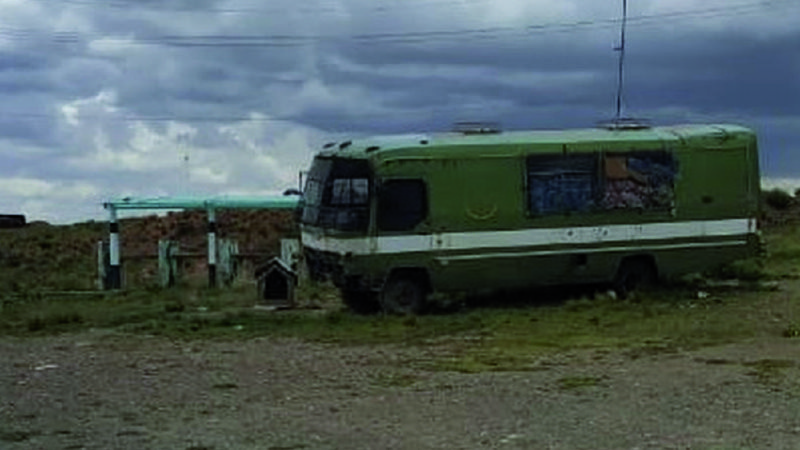
Photo: Luis Callisaya, Página Siete.
22 October 2021
A terrifying “torture bus” runs in the Chonchocoro prison
In the maximum-security prison of San Pedro de Chonchocoro, a bus became a cell for isolation and punishment. Recently, it was used to torture and harass the prisoner Cristofer Quispe, who died in that prison.
Long before 2019, the police bus was already within the perimeter of entry to the different sections of the prison. It still stands there, near a watchtower, with the windows locked with mesh and the doors locked with padlocks.
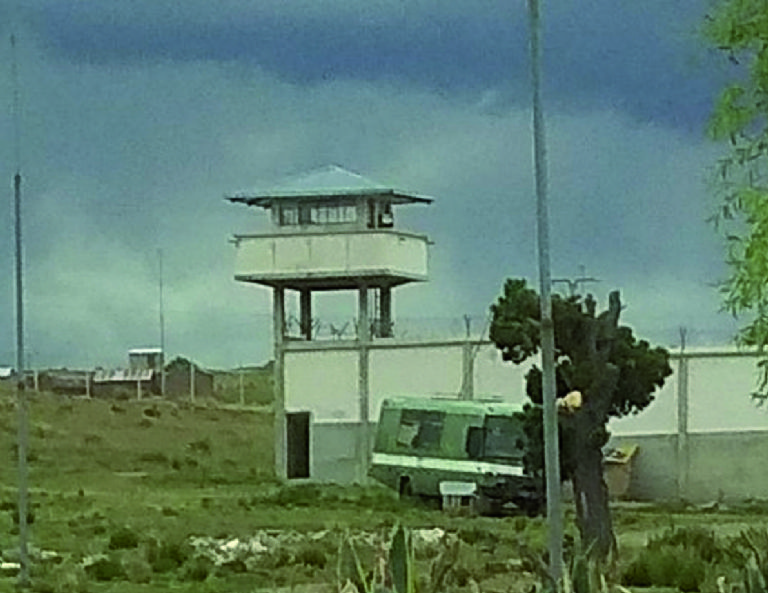
Photo: Luis Callisaya, Página Siete.
Two years ago, a prisoner was isolated for more than three months on that green bus. Supposedly, he had misbehaved and was very violent. The bus operated as a cell for the inmate and only through some windows of the motorized vehicle could the inmate see little of what was happening around him or make any request.
“Through the inmates themselves, it was known that they were once punished there. At one time, a problematic or dangerous prisoner lived on the bus. It had different purposes, sometimes it was used to isolate [inmates],” a former authority who worked on the issue of prisons during the Government of Evo Morales told Página Siete and asked to keep his identity confidential.
Depending on the instruction given by the prison authority, the bus was used, sometimes as an isolation space for dangerous inmates and other times for prisoners whose lives were at risk.
It was in that motorized vehicle, known as the “Bus” area, where Cristofer Quispe received brutal beatings from a Police lieutenant on October 14 and 15. On Saturday 16, the same Police officer reportedly beat the inmate again. It was supposedly in retaliation against Quispe, who had spat in the face of a colonel who works in that compound.
“After the fact, the Police officer would have deposited the prisoner in a punishment cell measuring two by one square meters, located next to the so-called sector E (inside the prison perimeter). There, Quispe was found dead on Sunday, October 17,” says the report issued by the Service for the Prevention of Torture (Sepret).
Cristofer was arrested for the crime of robbery. Due to a court order, he had to leave jail last Thursday, but the measure was not carried out because the inmate did not have 200 bolivianos to complete the procedures.
The prisoner had to wait until Sunday to receive a visit from his brother and he would lend him that money. In that period of time, he lost his life.
Preliminary inquiries indicate that Cristofer had even been chained months before his death. Another hypothesis shows that the inmate was beaten and raped by four other prisoners following the orders of the Police.
There are other similar spaces such as “The Bus” in the country’s prisons, which should only be used for isolation in some exceptional situations. In the Cantumarca prison (Potosí) there is a kind of basement, where the punished are taken; in San Pedro (La Paz) there is the so-called “Grulla” (crane); in El Abra (Cochabamba) they have isolated adobe rooms.
The former Director of the Penitentiary Regime, Ramiro Llanos, reported that the use of isolation environments depends on the authority of each prison facility, who decides on the type of administrative management of those spaces, but under no circumstances are they for acts of torture or humiliation.
He remarked that the Chonchocoro prison has individual cells, where inmates who have bad behavior are isolated, “it is not necessary to take them to other environments.”
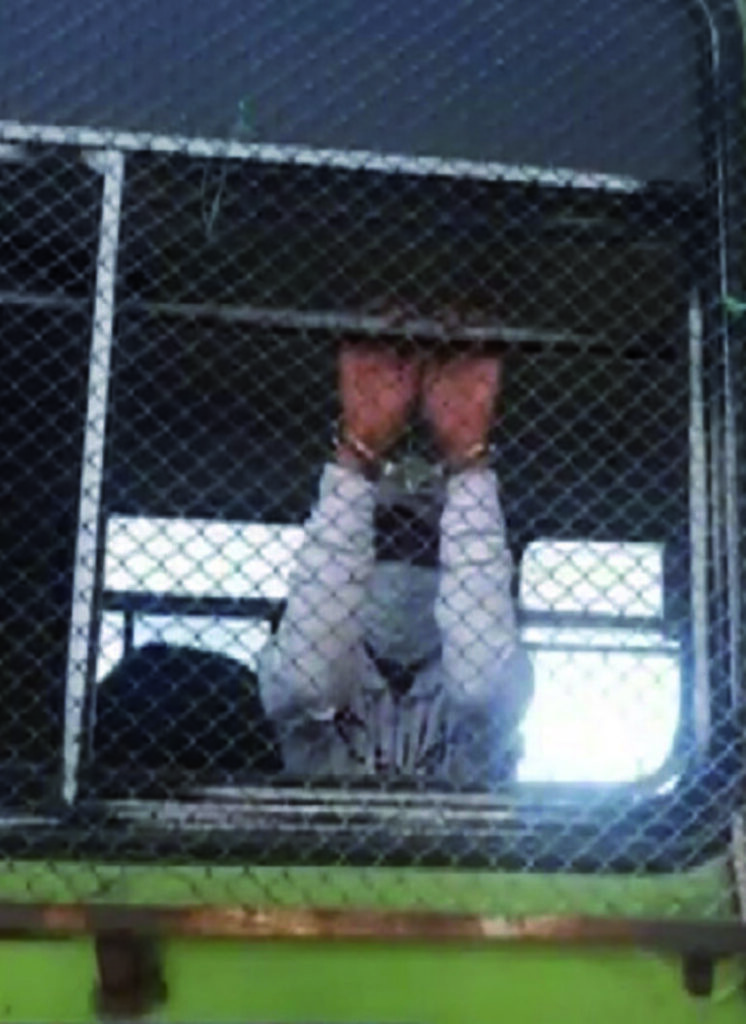
Photo: Bolivisión snapshot
“Prisons must take care of people’s lives. That is their constitutional and legal responsibility and, furthermore, what the declaration of human rights indicates,” Llanos told Página Siete.
Regarding the death of Cristofer Quispe, the prosecutor Ruddy Terrazas reported yesterday that the inmates Alexander Dayvis G. R., Odelio Matheus B. A., Daniel F. O., and Rolando A. B. will be investigated for murder. He said that it will also be investigated whether the Police officers Wilson P. A. and Miguel Ángel Z. A. –the head of security and the Director of the Chonchocoro [prison]– have [some degree of] responsibility.
“It can be established that four inmates were allegedly involved in the prison who had beaten the victim. In the investigative stage, it will also be determined if the head of security has had any participation as well as the Director of the Chonchocoro [prison],” said the prosecutor.
The Departmental Director of the Penitentiary Regime, Franz Laura, reported that the death of Cristofer Quispe in the high-security prison is under investigation. The investigation must clarify the causes of death and whether the inmate was chained or tortured for three days.
“(The Prosecutor’s Office has been asked) for the statements of some administrative officials and Police officers.”
Franz Laura, Director
“The lack of control in prisons means that people sentenced or in preventive detention die inside the prisons.”
Ramiro Llanos, former Director
WHAT MAGNICIDE?
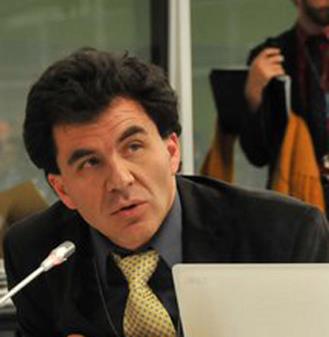
21 October 2021
What magnicide?
Minister Eduardo Del Castillo reports that between October 16 and 23 of last year, former Captain Germán Rivera García was passing through Bolivia. A Colombian national and known as “Mike”, his military nickname, this 40-year-old retired military man would have stayed in a room located on the 14th floor of the “Presidente” hotel in La Paz.
He wasn’t alone. According to Del Castillo, he was accompanied by a former police officer, the Colombian Ronald Alexander Ramírez Salamanca, and two businessmen: Arcángel Pretel Ortiz, better known as “Gabriel”, and the Venezuelan Antonio Intriago Valera, “Tony”, both from a Miami suburb called Doral. Everything indicates that they did not come to Bolivia to follow up on the elections held two days after their arrival. The composition of the delegation suggests a business trip. What do these gentlemen sell?: Violence.
Eight months after passing through Bolivia, former Captain Rivera and Sergeant Duberney Capador arrived in Haiti with a contract in their suitcase. From Miami, they were convinced to risk their lives on a mission that would open the doors to a stable job as members of the Haitian presidential guard. To achieve this, they had to first arrest Jovenel Moïse, the acting Head of State. The commando made up of 21 men, six trucks, and 16 rifles had a set date and time for the incursion: July 7 at dawn. CTU, Tony and Gabriel’s company, openly purchased the remaining 19 airline tickets. None of the intruders concealed their identity or used any ingenious method to mislead the Police; so sure were they of the change of government and subsequent official protection in Port-au-Prince.
Distributed in five groups of four, the attackers took 30 minutes to complete the operation. It should be noted that three days before, the order had been modified. It was no longer going to be an arrest, but an assassination. Moïse was riddled that morning with 12 projectiles aimed by the Colombian Víctor Pineda in the unprotected room he shared with his wife, a miraculous survivor of the assassination. The attackers took with them two boxes and two suitcases, which contained 45 million dollars. That was the succulent loot calculated from Miami. It was to be distributed among the 21 participants and the CTU.
When, as planned, the caravan approached the presidential palace to greet the change of command, it was repelled by the guard. Something had started to go wrong. The Colombians roamed the capital without a clear direction. They ended up hiding in the Taiwanese Embassy, where Haitian troops came to hunt them down. The siege was preceded by the explosion of two war grenades. Former Sergeant Capador and two other men lost their lives in this unexpected counterattack. The 18 rented combatants are in jail today, including former Captain Rivera García.
These retired soldiers expected money and impunity. Did they seek a similar treatment in Bolivia? It is clear that they did not succeed. Their contractors in Haiti showed them a false arrest warrant for Moïse and it was Haitian politicians who pushed them into the abyss.
It is estimated that Miami has served as a recruiting platform for at least 6,000 former Colombian military and police officers, people desired by Arab monarchies or security companies in places as diverse as Dubai or Kabul. Dimitri Hërard, the head of security for the assassinated president, traveled to Colombia seven times this year. It is assumed that he did it to supervise the implementation of the plot. With the Government’s permission, he had set up an arms import company to the island. In this way, he provided lethal material to the Caribbean criminal gangs, thanks to which he multiplied his fortune.
The previous description proves that the CTU delegation that was in Bolivia last year did not represent an amateur club. It was the spearhead of what could be defined as the privatization of geopolitical action. Minister Del Castillo assumes that the group arrived in Bolivia to sign a contract, the central clause of which was the assassination of Arce Catacora. The denunciation suffers from an absence of evidence that borders on a public spectacle. Even worse. The case awakens memories of the speedy annihilation in 2009 of the group led by Eduardo Rózsa Flores in a hotel in Santa Cruz. Could it be that soon we will see the photo of former Captain Rivera with some leader of the opposition to the MAS?
Source: https://www.paginasiete.bo/opinion/2021/10/21/cual-magnicidio-312747.html
FILTERED AUDIO: MAS LEADERSHIP WOULD SEEK TO ACCELERATE EVO’S RETURN
The Government denies that there was a meeting of authorities last Monday
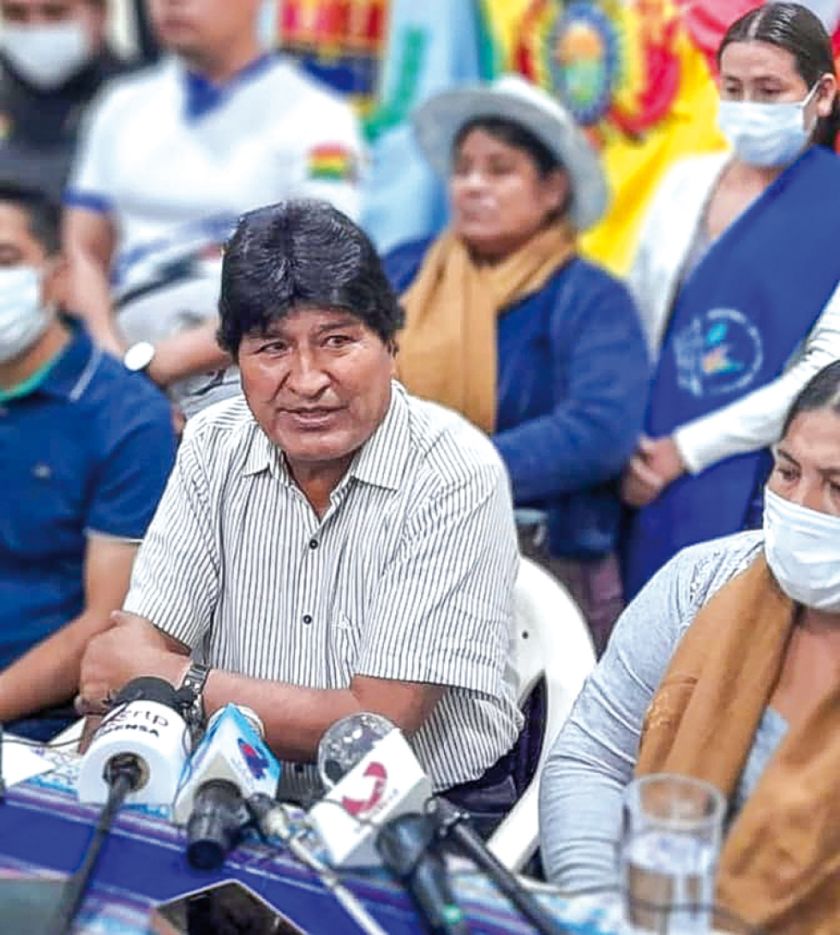
20 October 2021
Politics
Filtered audio: MAS leadership would seek to accelerate Evo’s return
The Government denies that there was a meeting of authorities last Monday
The audio of a conversation that would have been recorded on Monday afternoon and that was released last night by the program “Bunker Cabildo Digital” reports on an alleged plan of the leadership of the Movement Towards Socialism (MAS) to return former President Evo Morales to power instead of Luis Arce, through general elections.
In that recording, we can hear two people whose voices were distorted in such a way that they are not recognized. They speak of a meeting supposedly held that morning and in which Arce, several of his ministers, and the Bolivian Ambassador to the OAS, Héctor Arce Zaconeta, participated.
In the audio, it is also said that the Minister of Defense, Edmundo Novillo, was the one who would have transmitted to the other participants of the meeting Morales’s decision that they cannot wait four more years to change the president and, therefore, it is necessary to move forward the elections.
This criterion coincides with the impulse that has been given in recent days to the theory of the coup d’État through different legal instruments with the aim of annulling the case called “Electoral fraud”.
Bunker Cabildo Digital is disseminated through social networks and, as asserted last night by its presenters, Virginio Lema and Agustín Zambrana, certified the veracity of the voices and their source, who asked to remain anonymous.
Sources from the Ministry of Government assured CORREO DEL SUR yesterday that on Monday there was no meeting like the one mentioned in the audio and that the political cabinet, which is convened weekly for that day, was suspended due to the news that marked the agenda, such as an alleged assassination attempt against President Arce.
WHAT DO THEY SAY IN THE AUDIO BROADCAST BY BUNKER [CABILDO DIGITAL]?
This is the second part of the recording, as explained by the hosts of Bunker Cabildo Digital, who announced for today, Wednesday, the presentation of the first [part].
The interlocutors greet each other. And then they say the following:
- Hello, man, how is it brother, how are you?
- Hello, man, how are you? How was the meeting last night?
- At the end, it was in the morning and Chispita (Sparkles), (Eduardo del) Castillo, was there, right?
- Who else has participated?
- (Héctor) Arce, but the other one (Zaconeta), who has arrived from the US.
- Again?
- Yes, and (Edmundo) Novillo was there and the Presi[dent] (Luis Arce) and “la Presi” was also there, which is how we call María Nela (Prada).
- And the Jilata (David Choquehuanca)?
- No.
- Why?
- They said that he is the only one that must be removed and that the decision is already taken, they are going to move forward everything. It has been decided.
- And what did Chispita (Sparkles) say?
- They don’t want that. But it is not about what they want, Evo has already decided that and that also goes because Brazil is getting complicated, Peru is getting complicated, so Evo has to come back, there is no other way because they are complaining about the money, there is no money for salaries, brother. So who is going to pay? Exactly, if we don’t hurry, everything will fall apart.
- And was there someone from the old number 2 or not?
- No, not because Chispita (Sparkles) is the one who represents them, but they believe that they will not call him again. Arce, the one in the US, don’t you see? he is the one that’s operating.
- And how will they do it?
- We are going to do everything through the justice, as it has to be. In the end, people will have to say what they want at the polls and once again there we will make the decision on how to do it.
- And are the numbers positive?
- Not today; but a year or four from now, it will be worse.
- When are they going to start the plan?
- It’s already in progress, it’s already in progress. Let’s see what the Jilata (David Choquehuanca) says because he was in several talks in El Alto.
- But you don’t have the people from El Alto. And what about all of them? There are no agreements, there is nothing, brother, what are they going to do there?
- It does not matter, here there is a decision and we have to take it. If Arce wants to stay, they will take his head off.
- And when are they going to come to Cochabamba?
- I think that tomorrow.
- Will all or some come?
- I don’t know, Novillo is going to be there, he has been at the meeting, he has been given the line by Evo.
- I’m leaving, I’ll talk to you later. We’ll talk.
- Take good care of yourself, uh, take good care of yourself.
WHEN THERE IS NO MORAL
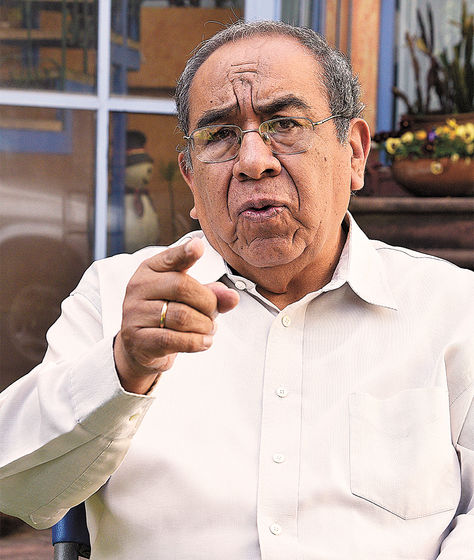
20 October 2021
When there is no moral
Bolivia is not only experiencing a crisis of excessive State patronage and prebendalism, what we are looking at in the present is deeper than that, it is about the moral degradation of power due to the absence of ethics, due to the total loss of the values that guide daily coexistence. The efforts to maintain power, the anguish for it, have blinded the rulers, who live not to seek the common good, nor to meet the needs of the people, they live to accumulate, to deify themselves, and make us believe that they are the predestined ones to take us to the future, when in fact they have pushed us back. Power is blind, which is something that Evo Morales shows us every day by ordering the presidential delegate Arce Catacora to do whatever is necessary for the Jefaso (Boss) to return to power. The reality does not exist for Morales, he only looks at his own imagination of returning to the presidency; his followers, including the President, are in charge of covering the sun with a finger to tell the Supreme [Leader] that everything is going smoothly in that project.
They came to power in 2006 as bearers of new values, of the new man, they spoke about ethics, they talked about caring for mother earth, and the empowering of the indigenous people. In fifteen years, corruption is greater than in the past, respect for Mother Earth does not exist, extractive developmentalism is imposed; it is important to build roads in national parks to expand the agricultural frontier in favor of the coca growers: the current center of power, with all that that implies. The indigenous people were repressed and the “intercultural” [representatives], that is, the coca growers, took away their lands. The Constitutional Court is ordered to say that the Government of Jeanine Añez was unconstitutional, when in fact two years ago that same Court ruled that the transitional government was fully constitutional; the tribunes in 2021 have not blushed when they erase with their elbow what they wrote with their hand when deciding that the Government of Añez was constitutional. It is because when there are no values, there can be no blush when you lie and falsify reality.
They fill their mouths talking about social inclusion, applauded by the international cooperation, when the country has 80% of informal employment; they express that the public administration is in the hands of popular sectors, they forget to say that, in the hands of union leaders, MAS leaders, neighborhood leaders with criminal records, none of them with the necessary expertise to handle the responsibilities of their positions. These leaderships, including that of the Bolivian Workers’ Union (COB), have been co-opted with exorbitant sums, but without having any idea in regards to public administration. As in the time of the agreed democracy, the public administration is chosen through a party-quota system, some leaders of the MAS or ministers are owners of many departments, among them those that have to do with the management of the land, which is handed over to the coca growers without embarrassment, stripping the indigenous peoples of their territory. Is that defending mother earth?
The moral degradation clearly shows how with sophisms they wanted us to believe that in the Zapata case there was no influence peddling, that in the Indigenous Fund there was no corruption but sacrifice in favor of the poorest, with sophisms they told us that the Draft [Law] for the Legitimation of Illicit Profits was to put Bolivia at the global forefront in the fight against illicit money laundering, when in fact the MAS governments are the ones who had a very soft hand to act against the coca-cocaine circuit, the one that originates in the Chapare.
But, the most publicized sophism by the power is the coup d’Etat, a self-serving hoax that is used to enable Evo Morales as a future candidate for the presidency. All of Bolivia saw him cry when he said goodbye to the country, crying accompanied by the tears of García Linera when he accepted that they had resigned from power. The hoax of all the resignations was put together by the MAS to leave the country in a power vacuum in 2019 that would incite the “people’s” petition for Morales to return to power. Their calculations failed; now, they are trying to correct their mistakes by resorting to the sophism of the coup d’État. They act that way because they don’t have a millimeter of ethics or shame.
The summary of what we see indicates that we are living in a time of moral degradation of power.
Source: https://www.paginasiete.bo/opinion/carlos-toranzo-roca/2021/10/20/cuando-no-existe-moral-312664.html
STRIKES. THE POT CALLING THE KETTLE BLACK
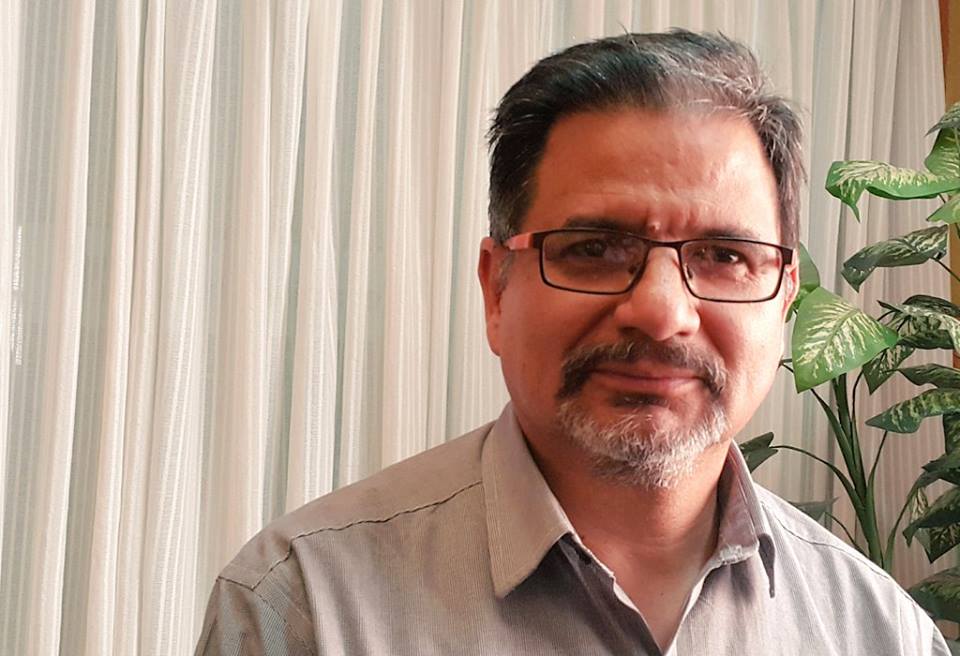
17 October 2021
Strikes. The pot calling the kettle black
The previous Sunday I had promised to write about another of the speakers, JH Chang, from the 14th meeting of economists organized by the Central Bank of Bolivia. The political situation forces us to speak of the civic strike and its economic impact. I apologize. I’ll leave the Cambridge University Professor’s article on industrialization for next week.
The Government, outraged, has denounced that in the one-day strike the economy would have lost 112 million dollars. We fully agree that this social and political practice does enormous harm to the country, regardless of who is promoting it.
But let’s look at a bit of history and let’s make a recount of who were the people responsible for hundreds of days lost due to strikes or work stoppages in the past. In this perspective, we are going to see how the old saying is applied to this case: The pot calling the kettle black.
According to the Observatory and Analysis of Social Conflicts in Bolivia, of the Center for the Study of Economic and Social Reality (CERES), in the period 1970-2010, there were 13,897 conflicts. The bulk of these conflicts had the participation of groups, unions, actors, or people who are now within the Government. It is they who are crying out to heaven for the recent strike on October 11.
In 40 years of economic and social history, there was practically one conflict per day; this result comes from dividing the 13,897 conflicts between 40 years, which records 347 strikes or work stoppages per year; that is to say, every day someone, in all this time, was protesting with good or bad reasons.
Let’s suppose, very conservatively, that only 5% of these social conflicts (rounded to 14,000) involved a one-day stoppage. There may be cases in which there was a general strike, or joining various social problems, they are equivalent to a day’s work stoppage. Let us modestly accept that we lost 700 days in 40 years and if we multiply this by 112 million dollars, the loss figure reported by the Government is equivalent to 78,400,000,000 dollars today. It reads: seventy-eight thousand four hundred million “Washingtons”. An 11-digit figure. In other words, we lost twice the size of our current GDP through strikes and work stoppages. Whoever has a glass or thatched roof should not throw stones at the other.
In the democratic era, the administration of the Government of Hernán Siles had the record of strikes, work stoppages, and other events: 1,825. Again, let us suppose that only 5% of these social problems involved the loss of a day, this is equal to 91 days. As I have mentioned, the Government affirms that in a one-day strike –in 2021– 112 million dollars are lost. But, it should be clarified that this is equivalent to 33 million in the 80s. Therefore, during the Siles Government, we lost 3,003 million dollars of that time.
During Paz Estenssoro’s administration, there were 1,180 social problems. Here the neoliberal period began. Again, only 5% was a day of loss. It means that during the Paz Government 59 days were lost, which in 1987 dollars would be equal to 59 times 47 million, equal to 2,773 million missing dollars.
Paz Zamora had 968 strikes. Same reasoning: 5% equals a one-day loss. That is, 48 days times 54 million, equals 2,592 million dollars of loss to the period’s value.
In the first Government of Sánchez de Lozada, 631 conflicts were verified. 5% is equivalent to 32 days times 64 million dollars in 1997, equivalent to 112 million in 2021. Loss: 2,048 million greens (dollars).
The democratic Government of General Banzer had 1,364 conflicts, the same as before 5% of these social problems. This translated into the loss of 68 days, which multiplied by 72 million dollars per day, is equal to 4,896 million dollars in 2000, which vanished.
Jorge Quiroga 355 and the second Government of Sánchez de Lozada had 518 strikes and social demonstrations. 42 days lost multiplied by 72 million, is equal to 3,024 million dollars of the period, which went down the drain.
The Government of Carlos Mesa also registered a high conflict rate with 1,042 events. 5% of the total of 1,042 days lost is 52 multiplied by 82 million per day, it is equal to 4,264,000,000 of economic loss.
The short administration of President Eduardo Rodríguez recorded 248 social problems. 12 days lost multiplied by 82 million dollars per day in 2005 is equivalent to 984 million dollars that disappeared.
Ugh, what a way to pull the rug from under them! Right? Now, the new owners of power who caused turmoil in the past, before they tear their hair out due to the last strike, they should put their hands to their chests –or is it their pocket?– and ask themselves: What percentage of these 78.4 billion dollars of economic loss at today´s value is the responsibility of Evo Morales and the coca growers, other social movements, the Bolivian Workers’ Union (COB), the various unions, civic committees, and other actors? I guess those who still have blood on their faces will turn red. Others will say that they were making the revolution. This is not intended to criminalize or discredit the social protest. The conflict is part of a democratic society, but it must be resolved through institutional means and not always in the streets. But, without a doubt, when authoritarianism shows its face, strikes and work stoppages are not an expense but an investment in democracy, justice, and freedom.
Source: https://www.paginasiete.bo/opinion/gonzalo-chavez/2021/10/17/paros-cuando-el-muerto-se-rie-del-degollado-312393.html?fbclid=IwAR1TsyUiehgh6lv5-X-qMY0AH9fgVs7NnH9_ZiZWA1Ih0EwLsRWi6SlWxu0
GOVERNMENT, WITHOUT LEADERSHIP OR TRUST
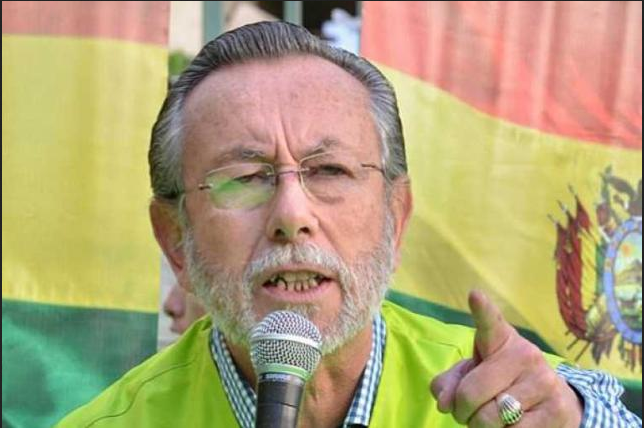
Former Mayor of the city of La Paz
17 October 2021
Government, without leadership or trust
Seeing President Arce as the main agitator of a MAS concentration, calling for street confrontations, portrays well the stature of a leadership that, without even fully addressing the health and economic crises, has chosen to maintain and exacerbate polarization. If in 11 months the Government has not assumed the mandate of the polls –i.e. pandemic, reactivation, and pacification– it is very difficult to encourage it to pay attention to the pending democratic agenda: the fight against impunity and corruption, the construction of institutions, the comprehensive reform of justice, the eradication of sexist violence, and the protection of the environment.
55% of the votes are trickling down, and citizen mistrust is growing, putting every Government decision into suspicion, presuming the authoritarian guilt of its representatives. That is why the bill on “illicit profits” was rejected, withdrawn this Thursday, the 14th, despite the fact that it had to be approved “yes or yes until mid-November.”
It was a project that was not only unconstitutional and suspicious but also blatantly probative of the authoritarian vision of the Government. As the media reported, the project violated the privacy and property of all people, put freedom at risk by eliminating the presumption of innocence and the right to defense and, to consummate the citizen defenselessness, it abolished jurisdictional control over prosecutors, who had become employees of the Financial System Supervision Authority (ASFI).
There was not even the urgency to comply with international agreements since, as the lawyer Ramiro Orias demonstrated, the Bolivian State continues to fail to comply with the “recommendations” of the Financial Action Task Force (FATF) which requires, in order to effectively fight against the laundering of illicit money, a solid, suitable, and independent justice administration system, impervious not only to the corruption of ill-gotten great fortunes, but also to the manipulation of authoritarian governments that use an alleged fight against crime to invade individual freedom, control society and persecute political opposition.
The fact is that a Government that uses the Police Force to assault the private property of the coca growers of La Paz and turn it over to an unrepresentative side is no longer trustworthy, while “officially” ignoring and disregarding a demanding and peaceful march of indigenous peoples from the East. It is difficult to trust a government that, while denying a true Judicial Reform, lives comfortably with a genuflecting judicial leadership, where sentences and records disappear, or where “rulings” are issued and communicated to the desire and taste of each authoritarian government.
Surely the FATF experts, who will arrive in the country at the end of November, will be shocked by our “national capacities to fight crime,” when they verify that judges and prosecutors lack competence and independence and that the ASFI officials, from the Ministry of Finance or the Comptroller’s Office, are improvised militants of the ruling party without any professional background.
With leadership and confidence adrift, the horizon is clouded, not so much for the Government, but for the country that, approaching 2 years after the outbreak of the crisis, cannot find the way out. The main responsibility lies with the Government, but also in the opposition there are signs of a resurgence of dangerous visions, embodied in the “leadership” of some civic Santa Cruz citizens or their Governor, who are threatening to finish off “the rags” and “the crows” in a “2nd round”, forgetting that we lost the 1st round with 37 deaths, hundreds of wounded and the entire country unhinged.
We cannot accept that the opposition leadership is assumed by reactionary minds, perfectly functional to the MAS and that cause great harm to Santa Cruz; and therefore discourages seeing democratic personalities mixed with retrograde people. After 39 years of democratic life, it is no longer swallowable that “unity” is built by swallowing toads and snakes, which then definitively indigestible alternative projects.
Indeed, by digging trenches, we will not get out of the hole either, but the construction of a different opposition involves reestablishing the horizon we are aiming for, which is none other than that of inclusion, popular leadership, democratic tolerance, the rule of law, the sovereignty of the vote, and the production of sustainable wealth.
Source: http://www.cabildeodigital.com/2021/10/gobierno-sin-liderazgo-ni-confianza.html
LINERA’S FIERCE RESENTMENT

Bolivian writer, diplomat and politician.
16 October 2021
Linera’s Fierce Resentment
On top of all this mess that we’ve had with the Wiphala and with the cursed laws, as well as with some folk speeches by President Arce, we have suddenly come across some statements by former Vice-President García Linera, which exude concentrated hatred, but above all, gives us the right measure of his twisted Marxist-populist mentality that has caused so much damage to the country.
He has publicly stated that (my apologies) he screwed up Santa Cruz businessmen using political and not economic reasons. He stated that there was no need to nationalize agriculture because cutting the production chain weakened them; that is what the MAS did with soy and that soy “was never a problem again.” And how did he do it? We already knew it in Santa Cruz. He said that, resorting to blackmail, because if the soy producers bother you, “you suspend exports” because the Government has the monopoly of deciding who exports or not. He is trying to do the same with beef, which has hardly opened important markets. Isn’t that a tremendous scoundrel and a warning?
Well, this venerated intellectual of the Latin American left (only comparable to López Obrador) has exposed in his interview, full of insolence, that “where the power of the (business) veto is too strong, you simply bankrupt it: you go in and build a State-owned company.” Easy! In other words, you do what the MAS did: create inefficient and unprofitable State-owned companies that ate up a good part of the gas profits and left us poor.
How much has Linera’s social resentment cost Santa Cruz and Bolivia? According to an expert in numbers like José Luis Parada, with the restrictions on soy exports, around 380 million dollars were lost annually, that is, about 4,000 million dollars from 2008 to 2018. And all this happened with the businessmen sitting solicitously at the table with the Vice-President, skilled with flattery, with deliberately tangled dialectics, and with an easy but sinister smile. Let it not happen again, because it is very dangerous and it costs money to make the wrong friends.
Source: http://www.cabildeodigital.com/2021/10/el-feroz-resentimiento-de-linera.html
CIVIC STRIKE AGAIN, NOW WHAT?

(Human rights and non-violence activist, co-founder of Ríos de Pie)
13 October 2021
Civic strike again, now what?
This Monday the country experienced a 24-hour strike that was felt mainly in the main cities. This national strike was carried out as a protest measure against Law 218, which, if enacted, would allow the investigation of bank accounts and the search of properties and businesses belonging to citizens due to a simple complaint, without a court order. Some opposition leaders considered this strike as successful, while the Government described it as a failure. The following day, the central government called for street demonstrations in what analysts considered as a clear response to Monday’s national protest. It is obvious that we are experiencing demonstrations of strength between the two main power groups in the country. The question that remains in the air for thousands of Bolivians, whether or not they participated in these demonstrations, is what now?
Law 218, like many other measures of the current Government, effectively violates the rights of citizens and we have every right to protest against it. In the same way, the demand for the release of political prisoners in the country and for respect and response to the indigenous march that the Government is ignoring, are also rightful demands. Precisely because our requests are legitimate and necessary, they must be demanded in a way that allows the constant and sustained participation of citizens. This should open the question of whether civic strikes are the most strategic way to continue to confront the Government’s abuse, or whether the country’s political leadership should begin to renew its forms of protest.
Non-violence as a strategic fighting technique indicates that there are three main methods or “types” of protest: persuasion, non-cooperation, and intervention. These three methods should be applied in a staggered manner and in sequence. The first, the persuasion method, are all the protests that are responsible for transmitting a message and adding numbers to the cause: in the case of Bolivia, we have recently seen them with the marches for the 21F (Referendum of 21-February-2016) or other types of rights, or with graffiti or symbol campaigns on the streets. Persuasion protests can be effective with one, ten, or a thousand people since the goal is to get a message across. This method should be useful to inform and unite the general public, before moving on to more massive methods of protest.
The second method, that of non-cooperation, is useful to interrupt the flow of power going towards the authoritarian opponent. As its name implies, non-cooperation protests are based on disobedience to unjust laws and therefore this method does need large numbers of people to be effective. An example that we have used in Bolivia is the work strikes since we stopped obeying the system. However, other forms of non-cooperation protests, such as the very effective economic boycotts or the denial of tax payments, have not been explored in the country.
The third and highest-risk method is the intervention protests method, which involves not only stop cooperating with the system but also intervening in the flow of power of institutions. Civic strikes, by including roadblocks, fall within this type of protest. The cost of protests of this type is very high for citizens, mainly because there is an economic loss not only for the opponent but also for whoever participates as well, therefore, they should only be carried out when the opposition actors are united and when there is a strategy with a clear exit to the solution of the problem.
However, opposition leaders in Bolivia, especially those who constantly call for civic strikes, do not have unity among themselves or a clear strategy of what the next steps should be; therefore, they are wearing down the general public, when we need them stronger. If there is an opposition strategy made in unity, it is not clear to the people themselves who are participating in the strikes, and that already does a lot of damage to the legitimacy of the cause. Going to constant strikes without a strategy is like giving chemotherapy to a patient directly without having a previous analysis or a treatment with drugs afterward. It may cause more harm than it is trying to remedy.
Bolivian citizens who very bravely abide by the strikes and protests of leaders they trust have the right to demand transparency, unity, and [a] strategy from opposition leaders. I dare say that the lack of political renewal in these parties is noticeable, because they continue to use the same three forms of protest from 30 years ago (marches, strikes, roadblocks) instead of learning new strategies and applying the more than 198 forms of protest that non-violence raises. Democracy must also be defended with new forms [of protest], new discourses, and new leaderships, always from [the point of view of] non-violence. Authoritarian governments never lose the power in battles they already know.
Source: https://www.paginasiete.bo/opinion/2021/10/13/paro-civico-de-nuevo-y-ahora-que-311969.html
LONGARIC AND APARICIO: IACHR’S REJECTION OF AÑEZ’S REQUEST OPENS THE WAY FOR MORE VIOLATIONS IN BOLIVIA
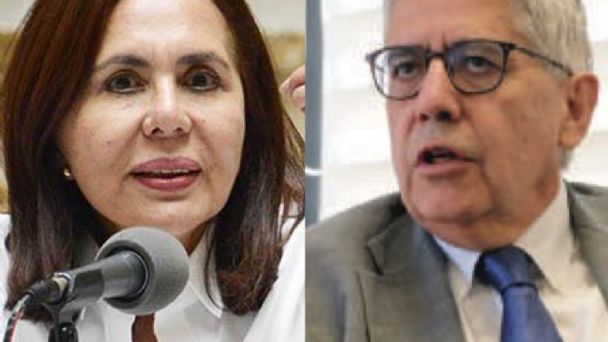
10 October 2021
Longaric and Aparicio: IACHR’s rejection of Añez’s request opens the way for more violations in Bolivia
Former Foreign Minister Karen Longaric and former Bolivian Ambassador to the Organization of American States (OAS), Jaime Aparicio, have harshly criticized the recent rejection of the Inter-American Commission on Human Rights (IACHR) to the request made by former President Jeanine Añez to be granted precautionary measures in that instance and said that the IACHR puts its political affinities before its obligations with the Inter-American System.
In a statement released this Sunday, Longaric and Aparicio warned that the IACHR’s rejection of the former President’s request –which they describe as unfair and guided by “political and personal interests, oblique and deviant”– “opens the way for more violations of human and political rights in Bolivia.”
At the same time, they warn that this rejection will have serious consequences in the country because, in their opinion, it leaves many citizens not trusting national justice and who saw in that high court a hope of obtaining justice in their possible demands.
“The IACHR’s rejection of precautionary measures in favor of the former constitutional President of Bolivia, Jeanine Añez, means that the commissioners of the Inter-American Commission on Human Rights (IACHR) have made a political decision rather than a legal one, putting their ideological affinities before their obligation to ensure the protection of human rights within the framework of the Inter-American System,” they said in the document.
“This decision leaves many Bolivian citizens helpless who cannot trust national justice and who saw the Inter-American Human Rights System as one of the last guarantors of democracy and the rule of law in the country. With this, the IACHR sets a dangerous precedent in the region. It fails in its role as guardian of human rights and gives a blow to the credibility of the Inter-American System, which has been so important in the history of the continent and which has cost so much to build,” they added.

In a ruling that has been especially criticized by opposition sectors in the country and welcomed by the Government, last week the IACHR decided to reject the request for precautionary measures presented by former President Añez and closed her case, as confirmed at that time by the Executive Secretary of that organization, Tania Reneaum Panszi.
The IACHR, according to Reneaum Panszi’s letter, urged the Bolivian State to guarantee, in favor of the former President, “decent conditions of detention, in compliance with the minimum inter-American standards on the matter, providing adequate, specialized and continuous physical and mental medical care and/or treatment, either inside or outside the penitentiary, seeking, as far as possible, consensus with the trusted doctors of the proposed beneficiary and their informed consent.”
In their statement this Sunday, the former diplomatic authorities said that from that letter it can be interpreted that the IACHR assumed as true all the arguments presented by the Government before that instance, ignoring even the warnings of the Interdisciplinary Group of Independent Experts (GIEI) “on the lack of independence of the Judicial Power in the country and on the total control that the Executive [Power] has over judges and prosecutors.”
“The Commission should have minimally considered the lack of independence of the Bolivian Judicial Power, the flagrant abuse of the figure of preventive detention in Bolivia verified by the GIEI itself, and the consequent procedural and prison abuses against Jeanine Añez, which under international standards constitute acts of torture and degrading treatment,” they say.

“It is also clear that the IACHR does not consider that the evidence and arguments presented in favor of former President Añez show that her physical integrity is at immediate, serious, and irreparable risk. For the IACHR, the daily psychological and physical pressure suffered by Jeanine Añez, either due to the aggressive protests of inmates against her in prison, the inexplicable transfer from one prison to another, the lack of quality medical care, the refusal to transfer her to a hospital, the prohibition of visits, or the constant humiliations that have led her to attempt suicide, do not pose a serious and irreparable risk to the physical integrity of Jeanine Añez,” they add.
But, in addition, Longaric and Aparicio say that by exhorting the former President “to cooperate in a positive way with the State in the implementation of the measures in [her] favor,” the IACHR humiliates the former President because “it exhorts her to be kind to her oppressor.”
Source:
THE ROAD TO SOCIALISM IN BOLIVIA
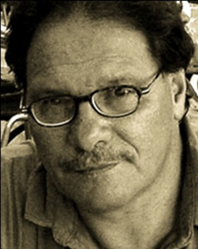
6 October 2021
The road to socialism in Bolivia
The political panorama that we live in shows clear symptoms of having reached a threshold point. The false certainty of the Movement Towards Socialism (MAS), according to which 55% of the electoral victory was a blank check that enabled them to do whatever they wanted, has come to an end, unleashing a citizen response very similar to the one that ended with the resignation and escape of Morales in 2019.
At the base of this type of procedure lies the idea, very typical of the retrograde left, that the people are made up of only them, and that the rest (that 45% of the population that did not vote for the MAS) is an entelechy not worth taking into account. In general, in universal history, these types of errors end very badly, for the simple but overwhelming reason that the people are all of us, to which, in the case of the MAS, it must be added that the same assessment led them to the debacle a few days after Morales –contemptuously– judged that the “others” were a weak “pitita” (string). The “pititas” (strings) took him out of power.
If we remember, the power accumulated by Evo Morales in 14 years collapsed like a house of cards when citizens, regarding the Penal Code, decided to put an end to the idea of subduing an entire nation for the mere charisma of the caudillo, or for the empire of covert repression that the MAS regime ruthlessly deployed through its repressive judicial forces, transformed into squads very similar to Benito Mussolini’s fascio di combatimento. The lesson that the current MAS leaders have not learned is that this country is much more than them and that, unlike societies such as Venezuelan or Cuban, ignoring social impulses and violating their rights has a very high price that, due to national experience, is not decided in the servile courtrooms, but in the streets.
How do we get to the point where citizens are forced again to go out and defend their rights? The critical path of the totalitarian project that the MAS is putting together began with the purification of its ranks. All those who were not determined to suppress democracy and impose an ethnocentric autocracy around Evo Morales came out. It was followed by the Law of Promotions in the Police, by which that institution is now commanded by the Minister of Government, in other words, they transformed it into a repressive device of political order. Until then, the Police had as a principle the defense of citizens, now they must defend an ideology. The invention of an unprecedented figure “the effective collaborator”, protects whoever offers to file a complaint against any citizen that the regime considers harmful to their interests, in other words, any citizen in need becomes a repressive agent.
The Law of the Commercial Registry that co-opts the Bolivian Commercial Registry (Fundempresa) and allows them to submit to the private company in all its ranks and activities, that is, it exercises control over assets, capital, investments, patrimony, etc., and the Law against the Legitimation of Illicit Profits that, without the participation of judicial instances (prosecutors, judges, etc.) can initiate an investigation without prior notice and behind the back of the investigated, it is authorized to instruct accounts to be frozen, homes requisitioned, virtual message systems and telephony intervened, inspections of movements in Real Rights, Internal Taxes and other State instances, it eliminates all forms of information confidentiality, there is no bank secrecy and neither are the press media protected by the secret of the source, that is, under a parallel extrajudicial and extra-police system, the Government will be able to subdue and repress whoever it considers to be a real or potential opponent. It is possible that this law contributes to the fight against illicit profits, arms trafficking, white slave trafficking, drugs trafficking, etc. but that is neither the spirit nor the intention, these laws are designed to Cubanize Bolivian society.
The citizen reaction has not been long in coming. A broad democratic movement based on citizenship is preparing for other days of resistance whose scope and consequences are unpredictable; in reality, the only sure thing is that imposing a regime similar to the failed socialism of the 21st century in Bolivia does not seem to be so easy, in a society whose democratic conscience has always been far superior than its dictatorial expressions.
Source: https://www.paginasiete.bo/opinion/2021/10/5/la-ruta-hacia-el-socialismo-en-bolivia-311143.html
ARCE OR THE GIANT WITH FEET OF CLAY
Lessons from two weeks of a hard battle to recover the Departmental Association of Coca Producers (ADEPCOCA)
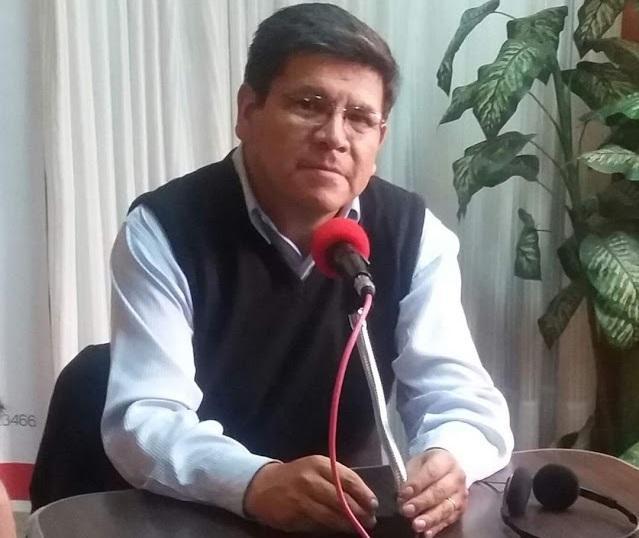
5 October 2021
Arce or the giant with feet of clay
The powerful MAS Government is weak on the streets. They enraged the Yungas coca growers by taking away their coca leaf trading market to hand it over to a pro-government leader. After two weeks of conflict, this Monday thousands of coca growers arrived in La Paz, defeated the police in the final battle, and recovered the Departmental Association of Coca Producers (Adepcoca).
In humiliating images for the Bolivian Police, the country’s television networks showed live how the troops left the conflict zone running. As happened in the previous two weeks, they fired hundreds of tear gas, but fell back and were unable to maintain security on the Adepcoca perimeter.
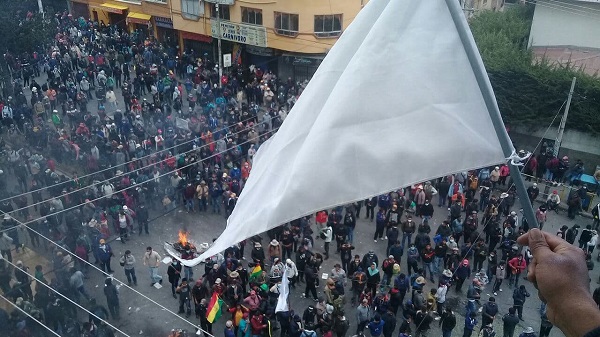
It is a political, social, and strategic defeat for the Government that planned the assault on a private institution, with the objective of politically subduing the Yungas coca growers, whom they could never domesticate since the Evo Morales regime and are the stone in the shoe of the Chapare coca growers and their lifetime leader.
And it is a strategic defeat because the Government decided to cancel the parallel market for the commercialization of coca leaf that operated in a union of transporters in the Kalajahuira area, convinced that it had taken over Adepcoca two weeks ago.
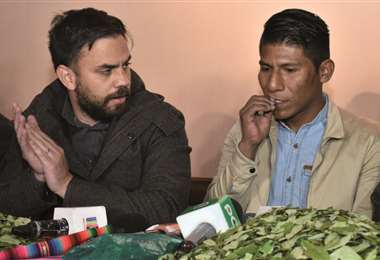
There are direct people responsible. The main one is the Minister of Government, Eduardo Del Castillo, who publicly recognized the pro-government leader Arnold Alanes as the new President of Adepcoca, but also the General Commander of the Police and the Departmental Commander of La Paz because the takeover of the coca-producing entity, the protection of infiltrators, the excessive repression, and the abuses of journalists took place under their command.
What would correspond in a Government that respects itself is for the Minister of the area to present his resignation from office because he revealed that the current administration of Luis Arce is something similar to a giant with feet of clay, that all the power that he shows in his media speeches is nothing more than a shell without substance.
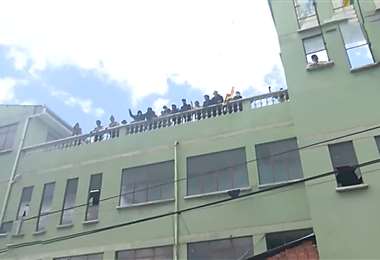
The colonels who command the Police at the national and departmental level would also have to be ousted due to their inability to comply with the political order to consolidate the usurpation of Adepcoca, but above all because of the anxiety and terror that they caused in the villages of Fatima and El Carmen, with the gasification of hospitals and the repression even of neighbors who had nothing to do with the coca-growing conflict.
In these 11 months, since Luis Arce assumed the Presidency on 8 November 2020, he removed commanders in the Armed Forces three times without thinking twice. It is time for the Police to stand firm, which in almost 40 years of democracy is commanded by a colonel when the Government has at its disposal the Law of Promotions to Generals of the Olive Green.
President Arce will be in power for one year in a month and it is clear that he will reach November 8th, 2021, at his worst, not because of effective opposition strategies, but because of the fronts that his own administration opened up in recent weeks, provoking alert from coca growers, indigenous people, union members, businessmen, transporters, civic [members], doctors, journalists, regional authorities, citizen platforms and the diversity of churches.
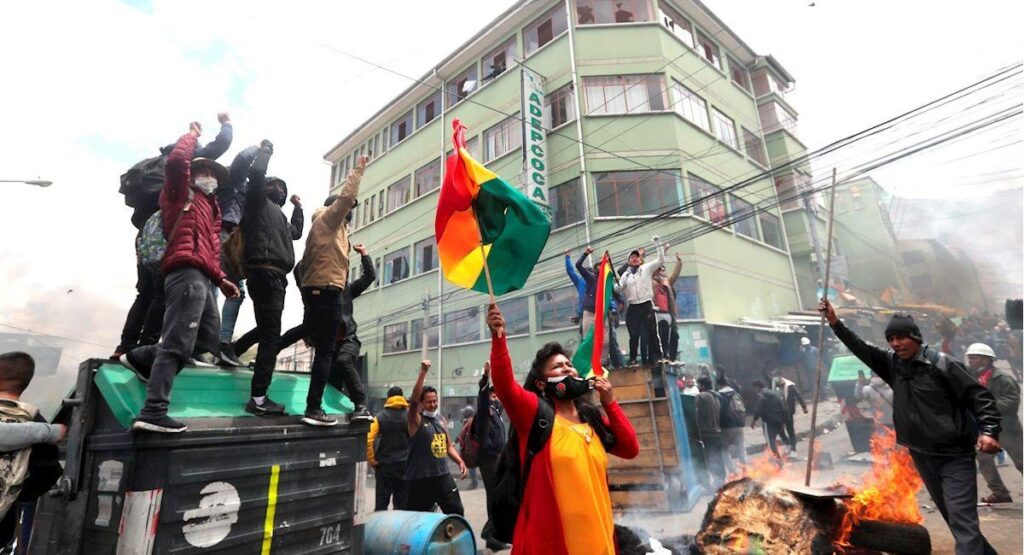
It is imperative that the President explain to the country how he intends to deal with the multiplicity of conflicts that he faces and that they can begin to converge and strengthen one another, putting the Movement Towards Socialism (MAS) in a difficult situation in the exercise of power. Arce cannot remain silent, as he usually does, because uncertainty or even doubt can begin to pierce the considered hard core of the MAS.
What happened this Monday at noon in Adepcoca, after an hour of hard confrontation in Villa Fatima, has been the first defeat of the MAS in the streets, a scenario in which it was invincible. In the short term, new victories may come for the sectors opposed to the Arce government because it is already known that it has the appearance of a colossus, but deep down it is weak and fearful.
Source: http://www.cabildeodigital.com/2021/10/arce-o-el-gigante-con-pies-de-barro.html
JUDICIAL REFORM FOR DEMOCRACY
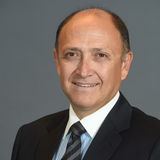
29 September 2021
Judicial Reform for Democracy
Since continuing Bolivian democracy was recovered in 1982, one of the greatest institutional challenges -still pending almost 40 years later- is the reform of the justice administration system.
In these last four decades, the political system responded with some initiatives –unfortunately, only a few– that contributed to the progress of democratic institutions in the country. The political agreements of 1990 made possible impartial electoral courts and made possible the constitutional reforms of 1997 and 2004. Within the framework of these consensuses, for example, progress was made in matters of administrative decentralization, municipalism, and popular participation, as well as the creation of the Constitutional Court and the Office of the Ombudsman.
Afterward, the political agreements at the end of 2008 made possible the approval of a new constitutional text, which was taken to a popular referendum, opening an agenda of inclusion, pluralism, rights, guarantees, and indigenous participation. Among the most striking innovations, there is the election of the highest judicial authorities by popular vote and the constitutional recognition of indigenous justice in the same hierarchy as ordinary justice, which today – after more than ten years of its approval – need to be reviewed and improved, since the mechanisms adopted for their implementation were dysfunctional for their purposes.
At present, the justice system is experiencing one of its worst crises, aggravated by its political instrumentalization, as has just been documented in the GIEI Bolivia Report. Given the context of high political and social polarization, this time the political actors have not responded to the challenge of building basic agreements to repair the judicial institutions, so contaminated and weakened. It is that the reform of Bolivian justice is definitely not outside the political game that the country is experiencing, marked by authoritarian practices of abuse, the concentration of power, and political dominance.
Reforming justice is not only changing laws as if the legal modifications by themselves were to transform the judicial reality. If there is no genuine political will to build an independent and transparent justice, it doesn’t matter how many plans and commissions are created, it doesn’t matter how many laws or codes are approved, the sustainability of the reforms will always be weak and ephemeral; efforts will be dispersed and impacts will not be seen. We have seen that in these years various attempts were made, different patches were applied, but in the end, they were not durable and their results were diluted. It is not just about having more judges, but rather it is about how to have better judges; neither is it about buying more equipment and coming up with digital solutions if the rationale and way of functioning of these organizations are not changed.
Given the depth of the judicial crisis, it has to do more than with a problem of dysfunctionality or lack of management in its resources, with weaknesses in its structure and institutional setup. New bodies have been created, new and many laws have been passed; but the institutions have not been reformed; no budgets have been allocated nor have the old practices of justice administration been changed. The country requires a process of judicial cleansing and purification, respecting and ensuring international standards for an independent judiciary.
The process of reform of the justice system must be one of democratic reform. It is not only reforming its forms and procedures, but also its contents; therefore, it must constitute a participatory process, based on public dialogue and deliberation among all actors, between the State and the civil society.
The system of justice administration materializes the arbitration function of the State in the resolution of conflicts that occur between members of society, and between them and the public powers. For this reason, it is essential to guarantee equal access to independent, transparent and predictable justice, an essential cornerstone to strengthen the rule of law and democratic order on the basis of the rule of the constitution, which obliges everyone equally, the rulers and the ruled.
The process of reform of the justice system must be aimed at creating conditions that guarantee the effective protection of fundamental rights and constitutional guarantees, against possible abuses or violations from public, judicial or administrative authorities, as well as from individuals. Thus, a genuinely democratic reform of justice is one that seeks to place itself within the framework of a robust and plural democracy, with checks and balances to power.
The justice system reform process should also focus its efforts on contributing to social cohesion and inclusion, eliminating situations of discrimination and unequal opportunities, creating conditions of equity for the most disadvantaged social groups, and with the fewest resources to defend their rights, such as women, girls, boys, adolescents, the elderly and people with disabilities, as well as indigenous peoples. In this sense, it must build the conditions that guarantee the rights of indigenous, native, and peasant peoples, as well as the interculturality and multilingualism of the justice administration bodies.
The justice system in Bolivia is in a situation of prolonged structural crisis. As the IACHR’s GIEI-Bolivia Report has just ratified, the lack of independence, suitability, transparency, and access are the obstacles that most affect citizens. It is necessary to build the conditions that ensure that the reform of the justice system is a genuine process of democratic reform; otherwise, the process of judicial change will repeat the vices of short-term political calculation. Although in the electoral debate prior to the last General Elections of 18 October 2020, there was high agreement among all the presidential candidates on the need for a profound reform of the justice system, it has not been able to move forward and the initial efforts were shipwrecked by the lack of political will. Faced with this new failed attempt, and the failure of political actors to move forward in the construction of agreements, the time for the citizens has arrived.
It is from this scenario that a plural group of lawyers, members of indigenous nations and peoples, academics, and human rights activists, who participate in a personal and independent capacity, proceeded to develop a proposal for reforms to the justice system through a partial reform of the State Political Constitution via citizen referendum, which has been presented to the country, and which aims to address the judicial crisis from the heart of the problems.
The proposal puts forward three main objectives to the citizen vote:
1. Reform to have independent, impartial and suitable judges
The submission of judges to political power and their lack of impartiality and suitability have their origin in the political-party selection of applicants, especially supreme judges. Professional and personal suitability, experience, and specialized knowledge should be the only parameters for choosing judges, members, and magistrates. For this, it is proposed that the selection and qualification of applicants for magistrates be in charge of a National Nominations Commission, made up of six citizens of recognized personal prestige, two nominated by the majority and minority in parliament, two by the National University System, one by the National Bar Association, and one by the native indigenous system, who, based on merits and competence examinations, must prepare closed shortlists on which, initially, the Legislative Assembly, by 2/3 from the total of its members, nominate the magistrates of the Supreme, Agro-environmental, Constitutional Courts and of the Judiciary Council. However, this parliamentary nomination will not be final. Those nominated by the Legislative Assembly will have to submit to the citizen’s verdict within 45 days, by means of a Popular Referendum that ratifies or denies them.
2. Reform for a decent and well-managed judicial budget
The annual judicial budget does not even reach 0.5% of the general state budget. Good judicial service for the citizens is not possible without a decent budget. For this reason, it is proposed that at least 3% of the annual general budget be allocated to the Judicial Branch, resources that will be administered by an efficient and new Judiciary Council that has the technical competence and is endowed with all the budgetary and disciplinary powers, for the appointment of judges and for the management of a true judicial career, which guarantees us suitable and independent judges in the entire judicial structure of the country.
3. Reform for an accessible justice, revaluing the native indigenous peasant justice, and establishing the Justice of Peace
Today we have justice for a few, not only because of its costs or because we do not have enough judges, but because every conflict is turned into a lawsuit, in an endless judicial process by judges and lawyers. For this, it is proposed to revalue the native indigenous peasant justice that has been distorted, in the Constitution itself, by the concept and the so-called “demarcation law” which once again subordinates the native legal systems to ordinary justice, forcing our peoples and nations to turn to judges and laws that are alien to them and that do not solve their problems. Likewise, it is proposed to recognize the Justice of the Peace, which is that which is imparted, in urban centers, by citizen judges, elected by the community itself, resolving all minor conflicts based on criteria of equity, friendly composition, and citizen mediation, preventing disputes between neighbors from getting stuck in the courts.
Thus, a judicial reform for democracy is proposed, not only substantively, but a democratic procedure is also proposed for its approval, through the citizens’ initiative and a popular referendum. Today, Bolivian society has a new opportunity.
Ramiro Orias is a lawyer, member of the Inter-American Juridical Committee, and Senior Program Officer of the Foundation for Due Process (DPLF). The opinions of the author are of a personal nature and do not bind the institutions to which he belongs.
Source:
Is Bolivia near the precipice?
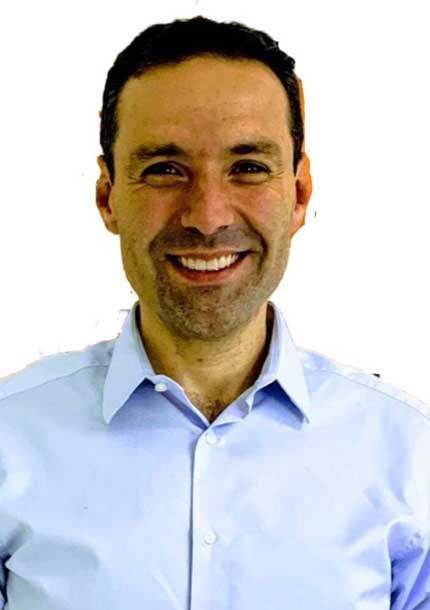
Lawyer, Journalist-Director of the Bunker
26 September 2021
Is Bolivia near the precipice?
The Government of Añez is not qualifiable to argue that Bolivia was taken into bankruptcy, just as this Government (Añez) was not constituted by angels either, however, saddle it with the economic or health disaster is clearly politicking, with a clear objective, the disappearance of the State as we conceptually know it, by a territory harshly subjugated under a legal system, disguised, by a degraded and impoverished paralegal and pseudo-justice system, based on terror, manipulation and everything that is based on extraction and extortion of the scarce social-economic base, of the one who falls in the sights as an objective.
If this paragraph contains the truth as a hypothetical basis, it means that the path of the State’s disappearance that we know, torn, beaten, decontextualized, and philosophically shattered will continue; [they] will continue to approve laws such as the anti-terrorism law or the illicit enrichment law, [thus] individualizing people considered enemies of the State; or laws such as the health law, to import foreign health providers (which seems more like political control), or proprietary registry laws to be able to assault that citizen who, as a result of his effort, was a prolific/talented entrepreneur, who generated a profit, and, surely, also generated employment, paid taxes, and provided contributions to the State and society.
Let’s see a very small historical account (for those young people who only knew the face of a president for 14 years), bonanza due to a law promulgated by a non-MAS congressman, H. Hormando Vaca Diez. Results obtained by the beneficiary Government of Evo Morales, non-productive spending, useless to list the State companies in deficit or bankruptcy… they are all [bankrupted]; soccer fields as an emblem of bad State spending versus the need for health [infrastructure].
A great disservice to Bolivians was the political calculation of Añez’s nomination, it is evident that beyond the infringement of her rights, she has her own historical framework of responsibility. But, returning to the constructive base of society, it is time to summon the agreement of all the opposition political forces, of those young people with no opportunity in the Movement Towards Socialism (MAS), of those used as a staircase to support the Government party, of those who realize the lie and believe the truth. It is the moment of the legacy of the young people, for those experienced politicians, for those who still believe in the homeland, for those who suffered for Bolivia and should not leave it without fighting the opportunity for personal, political, collective, constructive, interrogative vindication, but mostly patriotic.
It must be understood that after 14 years of government, many or few want to overlook this issue, [it is a] mistake… to consider that in 1, 2, or 3 years this will pass and a new political, social and economic scenario of free thought and free electoral competition will be created… [it is a] mistake [to believe] that polarization will disappear… [it is a] mistake. Just as these preconceptions are clear and indisputable objectives, we young people call on young people, because Bolivia will not fall to the precipice! That they took away the opportunities… enough, but take away our hope…, when will the autocratic leadership fall due to their chaotic chronology… never.
Today the political opposition has an unquestionable responsibility, to unite and be rebellious, for that well-known speech that was once publicly shouted, a better Bolivia for our children and for their children.
It is certain that the one who takes the first step towards this unification will achieve the Bolivian historical and democratic renewal.
Diplomatic fiasco at the CELAC Summit
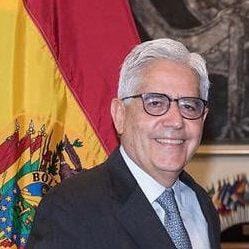
Career Diplomat, former Bolivian Ambassador to the United States
26 September 2021
Diplomatic fiasco at the CELAC Summit
States with a professional foreign service know that it is never wise to announce a foreign policy initiative whose chances of failure are far greater than those of success. In Bolivia, the opposite happens, both during the Government of Evo Morales and in the current one of Luis Arce, both enthusiastically embarked on all the ships with the possibility of sinking. It seems that it has become a custom of the foreign policy of the Movement Towards Socialism (MAS) to go for wool and get shorn.
It began with the failed maritime strategy designed by the Government of Evo Morales, to present a claim against Chile before the International Court of Justice (ICJ), under the strange premise that they would achieve a Judgment at The Hague that would force Chile to negotiate a sovereign outlet to the Pacific Ocean by virtue of unilateral commitments that Chile would have historically and unilaterally contracted with Bolivia. This maneuver, similar to buying a lottery ticket or betting on roulette, was publicized urbi et orbi (to the city and the world) and they thought that its success would secure Evo Morales into power until the end of time. The result was that Evo Morales will go down in history as the gravedigger of the maritime issue.
This tendency to disgrace the foreign policy continues with the current Government. They announce a series of international actions and all they obtain are embarrassing setbacks. They mount a political and media show to announce the presentation of the report of the Interdisciplinary Group of Independent Experts (GIEI) regarding the events of violence that occurred in Bolivia between September and December 2019, until they find the unpleasant surprise that among the findings of the GIEI, there are also serious human rights violations attributable to Evo Morales and a recommendation that responsibilities should be established in all acts of violence that occurred during the last two governments. As if that was not enough, the GIEI adds that the Bolivian judicial system is not in a position to provide the minimum guarantees for a fair trial, of impartiality and of due process, due to structural problems and in particular of its consolidation and that “it verified its lack of independence from the Public Ministry, the abuse of preventive detention and its use for the purposes of political persecution.” For this reason, the silence and oblivion in which the GIEI’s recommendations have been confined is not surprising.
These failures would have led any sensible government to reflection, not the Bolivian one. A few weeks ago they invented another international strategy for domestic policy purposes: to go to the Permanent Council (PC) of the Organization of American States (OAS) to denounce the Secretary-General of the OAS, Luis Almagro, and the Secretariat for Strengthening Democracy (SSD) due to a public statement confirming that the Government of Evo Morales committed serious malicious manipulations in the presidential elections of October 2019, at all stages of the process. The failed attempt to attack the OAS was counterproductive for the Bolivian delegation made up of the Ministers of Justice and Foreign Affairs. Except for the support of Argentina, Mexico, and the Nicaraguan dictatorship, the rest of the countries praised the OAS Electoral Observation Missions (EOMs) for the excellent role they play in the region in defense of democracy. As if that was not enough, Francisco Guerrero, Secretary of the SSD, recited the rosary of malicious manipulations committed throughout that election, each of them verified and documented by the electoral forensic experts who went to Bolivia to carry out the binding audit of the OAS and solidly dismissed the little or no value of the report by the lonely professor at the University of Salamanca and two of his students, who for some time made the wise decision to disappear from the map.
Finally, as it seems that the current authorities do not learn by the experience of their continuous disasters and that, to add insult to injury, they lack career diplomats since at the beginning of their government they decimated the Diplomatic Career, they dedicated themselves to announce to everyone that at the Summit of the Community of Latin American and Caribbean States (CELAC) in Mexico, they would present a joint initiative with Cuba, Venezuela, Nicaragua, and Mexico, to replace the OAS with another organization and thus end Luis Almagro. As expected, they were again ridiculed and none of that happened. Rather, the OAS came out strengthened in the face of an incoherent organization such as the CELAC, which claims to be a defender of democracy and invites the dictatorships of Diaz Canel, Ortega, and Maduro to its Summit and the candidate to be admitted to that club, Evo Morales’ scribe, Luis Arce.
These constant failures damage the country’s already precarious image and its ability to act in good faith in its relations with the world.
Source: https://publico.bo/internacional/fiasco-diplomatico-en-cumbre-de-celac/
Bolivia will substitute imports to industrialize the country as part of the national economic reactivation
The President indicated that the substitution of imported products for a value of US $ 800 to 900 million is planned when the construction of the ecological diesel plant in the country is completed.

22 July 2021
Bolivia will substitute imports to industrialize the country as part of the national economic reactivation
President Luis Arce said Thursday that the logic of substituting imports will be applied to industrialize the country, as part of the new measures aimed at continuing with the recovery of the national economy.
“The logic is to substitute imports to industrialize the country, in accordance with and respect for Mother Earth. You see, this is the strategy of our experience in economic recovery in times of Covid-19,” he pointed out during the closing of the XIV Monetary Conference held at the Central Bank of Bolivia (BCB).
The Head of State explained that the country cannot leave the import substitution process, because it is an essential element in order not to affect the trade balance and that the opportunity to generate production to face the problems of the national economy is not lost, which are the external sector and the high fiscal deficit left by the de facto Government of Jeanine Añez.
The President indicated that the substitution of imported products for a value of US $ 800 to 900 million is planned when the construction of the ecological diesel plant in the country is completed.
The operation of the complex, he said, will make Bolivia stop buying between 60 and 80% of the diesel it consumes internally.
In addition, he stressed that the production of ecological diesel will allow the country to save reserves and improve its trade balance, in addition to increasing national agricultural production for the provision of raw material simultaneously.
He also said that this industry will generate a chain of production, commercialization, and storage for the recycling of oils for domestic use, which will give dynamism to the generation of employment through the creation of countless micro-businesses.
“Therefore, the strategy is clear, because in this type of production and from that we can give several examples of undertakings to reactivate the economy with import substitution,” he said.
Finally, the President revealed that the country can generate industrial projects because technology is within reach to do so, always with respect for Mother Earth.
Source: ABI
Analysts: Persecution strategy was effective and silenced the opposition
The experts pointed out that Evo Morales was skillful and could do politics after his resignation, and that both Jeanine Añez and her Ministers “were too naively trusting.”

Photo: Archive.
22 July 2021
Analysts: Persecution strategy was effective and silenced the opposition
Political analysts agreed that the strategy of prosecutions and imprisonment of former authorities, former military, and police chiefs, and representatives of the opposition was effective. With these actions, the Government managed to silence the opponents of the Movement Towards Socialism (MAS).
After the victory of President Luis Arce, the Prosecutor’s Office began the proceedings of the alleged “coup d’État.” After the subnational elections, arrest warrants and citations were carried out against opponents. The first to be arrested in March were former President Jeanine Añez and her former Ministers Alvaro Coimbra and Rodrigo Guzman.
Then came the capture of leaders of the Cochabamba Youth Resistance, police, military, and former officials of the Government and Defense Ministries. In turn, they opened cases against other opposition leaders.
Due to this, a commission of deputies and senators from Creemos and Comunidad Ciudadana (CC) traveled to the United States to denounce before international organizations “political persecution and violation of human rights” unleashed by the Government of Arce.
Political scientist Carlos Cordero explained that there are four types of opposition. The first, citizens, which was mobilized in 2019; the second, those who are in the Plurinational Legislative Assembly (ALP); the third, the regional authorities and the fourth, the political leaders.
Cordero explained that these four sectors were completely annulled due to the processes and the imprisonment of former authorities and former police and military chiefs.
“In the case of political representatives in the Legislative [Assembly] there is inexperience and they do what they can. Regional authorities are focused on their management and if they want to do politics, [legal] proceedings are activated against them. The rest are intimidated, judicially persecuted,” he pointed out.
Political analyst Ludwing Valverde argued that the opposition still does not have a country agenda and a rapprochement with the citizens, which means that in the near future they will become functional to the ruling party, and in future elections, it may be the greatest strength of the Movement Towards Socialism (MAS).
“The judicial processes have managed to lower the profile of the opposition, that strategy has been effective. It cannot be denied that there is political persecution and a strategy to annul everyone who is against the MAS, and it is also done in an exemplary way, we can see this with the arrests of former authorities,” he explained.
Evo was more skilled than the opposition
After Evo Morales resigned, he made sure to leave the country to an allied nation, such as Mexico, at first. Later to Argentina, where was located his political operation center for the 2020 electoral campaign.
Despite the fact that international conventions establish that asylees or refugees cannot engage in politics, the Mexican and Argentine administrations breached these treaties. This allowed Morales to engage in politics, constantly criticize the transitional government, and promote the narrative of the “coup d’État.”
Added to this was the parliamentary representation of the MAS, which was in opposition to the temporary administration. Even, at that time, those who were in charge of the Government denounced the Plurinational Legislative Assembly’s obstacles.
“Morales was more skilled than Añez, he had many friends in Latin America. He also had more human and financial resources behind him. Mrs. Jeanine Añez made mistakes, such as postponing the elections and becoming a candidate, and that condemned her politically,” said Cordero.
Valverde asserted that the former President was too naively trusting and was poorly advised because she ran for both the presidential and subnational elections when she did not have support. He added that she was fooled by the acceptance she had when she assumed the Presidency, believing that this support was going to take shape at the polls. This also worked against the division of the opposition.
Source: https://www.paginasiete.bo/nacional/2021/7/22/analistas-estrategia-de-persecucion-fue-efectiva-silencio-la-oposicion-301771.html
Human Rights compares Cox with Arce Gomez and denounces him to the Inter-American Commission on Human Rights (IACHR) and the United Nations (UN) for “abuse of power”
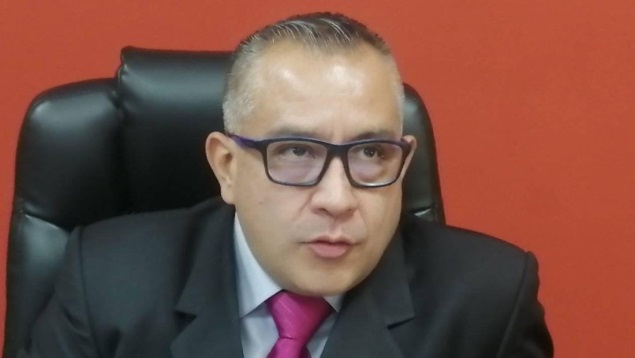
22 July 2021
Human Rights compares Cox with Arce Gomez and denounces him to the Inter-American Commission on Human Rights (IACHR) and the United Nations (UN) for “abuse of power”
The Permanent Assembly for Human Rights of La Paz (APDHLP) denounced the Vice Minister of Internal Affairs, Nelson Cox, before the Inter-American Commission on Human Rights (IACHR) and the Office of the United Nations High Commissioner for Human Rights (OHCHR) for actions that it considers to be “abuse of power” and statements comparable to those of the Minister of the military dictatorship Luis Arce Gomez.
The denunciation against Cox mentions two particular facts: one in which the Vice Minister warned in public statements that those who try to “confuse” the population would be held accountable for what he called a “coup d’État” in the context of the investigation of the alleged “illicit arms trafficking”. The second fact mentioned is the case of the arrest of the citizen Mario Bascope.
The legal secretary of the Permanent Assembly for Human Rights of La Paz (APDHLP), Franco Albarracin, stated that recent statements by Cox can only be compared with those issued in 1980 by Luis Arce Gomez, who was Minister of Internal Affairs under the dictatorship of Luis Garcia Meza, and who then warned opponents that they had to walk “with the will under their arms.”
“Then, according to Nelson Cox, we should walk with the will under our arms, but since they control justice and it is a different context from the time of the dictatorship, I would say that, according to Nelson Cox, we should walk with a [legal] brief under our arms,” said Albarracin.
The activist warned that with Cox’s statement, everyone who thinks differently from the Government’s version would be prosecuted, and warned that this constitutes a serious action against freedom of expression and constitutional guarantees.
He pointed out that, apparently, if someone thinks differently than the Government, Nelson Cox will order his/her arrest or even torture. He also compared the Vice Minister with former Ministers criticized in their administrations such as Arturo Murillo, Sacha Llorenti, and Carlos Romero.
In the case of Mario Bascope, the Permanent Assembly for Human Rights of La Paz (APDHLP) denunciation indicates that, according to press monitoring, the Vice Minister had influenced in the “arbitrary” detention of this citizen.
Bascope is a member of the Cochabamba [Youth] Resistance and was arrested at the time of [leaving] the Palmasola prison, to answer for another opened [case] in Sucre for destruction in the Prosecutor’s Office in 2020. Cox justified the arrest, while the Pro Santa Cruz Committee denounced that the activist was tortured.
The APDHLP legal secretary clarified that the institution is not interested in Bascope’s political affiliation, but in the person who in this case was arrested without being summoned.
The Ombudsman’s Office also referred to Cox’s statements in the Bascope case and reminded the Bolivian State that the International System for the Protection of Human Rights establishes the presumption of innocence as a human right and a judicial guarantee.
Albarracin affirmed that with these events Cox shows that he is an “extremely violent” person.
He recalled that the Vice Minister was a defense delegate in Cochabamba and that, with his revealed attitude, it is evident that the Ombudsman’s Office is made up of “immoral, violent and unethical people,” whose final objective is to comply with the MAS.
The activist indicated that Cox has precautionary measures from the IACHR, issued when he was an Ombudsman, but due to the latest events that protection should be taken away from him, because he is no longer in danger, but is the one that generates danger, and violation of human rights.
Chile eases border restrictions for nationals and resident foreigners
The borders remain officially closed, Chileans and residents who have completed their scheduled vaccines will be able to leave and enter the trans-Andean country.

22 July 2021
Chile eases border restrictions for nationals and resident foreigners
The Chilean health authorities indicated this Thursday that restrictions on the country’s borders, which have been closed since April, will be eased for nationals and residents who are vaccinated.
The measure will take effect from Monday, July 26 and, although the borders are still officially closed, Chileans and residents who have completed their scheduled vaccines will be able to leave and enter the southern country, not foreigners, who will only be able to cross the border in exceptional cases and with consular permits.
Those who leave the country must prove a negative PCR test (swabbing) 72 hours prior to their flight and their vaccination card, and when they return they must arrive with a negative PCR test and do a 10-day home quarantine.
The change comes after a “gigantic decrease” in the cases of daily infections, according to the Health Minister, Enrique Paris, who reiterated that although the statistics are favorable, it is necessary to maintain the sanitary recommendations.
“There is evidence of a decrease in new confirmed cases, however, we have repeatedly said that we do not consider ourselves triumphalist or that we have defeated the virus, quite the opposite,” said Paris.
This Thursday the country registered 1,861 new cases and 181 deaths, accumulating 1.6 million cases and almost 35,000 deaths since the first case was registered on 3 March 2020.
Paris confirmed a decrease in new infections of -32% in the last seven days at the national level, while the successful vaccination process already reaches 11.8 million immunized people (77.91% of the 15.2 million that comprise the target population) out of a total of 19 million inhabitants in the country.
Chilean Senators hope that Bolivia’s refusal to negotiate rates is not an “artificial conflict”
The legislators indicated that they hope that this attitude is not part of a strategy to generate an artificial conflict of a bilateral nature. “The negotiations must continue to be framed in the commercial sphere, as was done in 2019,” they said.

22 July 2021
Chilean Senators hope that Bolivia’s refusal to negotiate rates is not an “artificial conflict”
A call to the Bolivian authorities to facilitate commercial negotiations between the Port of Arica and the Administration of Port Services-Bolivia (ASP-B), was made by the Senators of Arica and Parinacota, Jose Miguel Durana and Jose Miguel Insulza, after learning that the neighboring country’s public company unilaterally suspended meetings with the Port on July 6, the purpose of which was to access tariff discounts for 22 services for Bolivian import cargo.
In this regard, Durana indicated that “it does not seem logical that while the Port of Arica expresses all its willingness to facilitate a new agreement, on the other hand, the Administration of Port Services-Bolivia (ASP-B) abandons the meetings and does not fulfill its promise to return to Arica to negotiate its discounts. Hopefully, this attitude is not part of a strategy to generate an artificial bilateral conflict. “The negotiations must continue to be framed in the commercial sphere, as was done in 2019,” they said.
In this sense, the parliamentarian mentioned that it is necessary for the Bolivian Government to leave behind its vision of resentment against Chile since this prevents progress in commercial, cultural, and social matters. “Let’s hope that with the Port of Arica, the same thing that happened with the Arica-La Paz Railroad last May does not happen, where the Government of President Luis Arce unilaterally suspended the technical test of the train with cargo from his country. That decision halted the possibility of reactivating this mode of transport, the same one for which we have been accused in international forums of not reactivating it.”
Finally, the legislator called on the Bolivian Government to resume negotiations as soon as possible. From the Port of Arica, they indicated that it is a gravitating terminal in the development of Bolivian foreign trade. “In a pandemic, it has grown in its cargo movement, despite Bolivia’s attempts to promote other ports. Arica has the most convenient and efficient rates and services, but it cannot be claimed that they have zero cost, because behind it there are investments and jobs to be settled,” says an official statement.
For his part, Senator Jose Miguel Insulza expressed the need for the Administration of Port Services-Bolivia (ASP-B) to urgently resume negotiations with the Port of Arica, “especially because the current rate agreement that they themselves signed in October 2019, expires next August 4th. I don’t think they want to promote a conflict like the one that took place two years ago, by refusing to negotiate.”
He added that “the Port of Arica has carried out intense work that has directly benefited Bolivian cargo, with tariff incentives for the fluidity of cargo, improvements in infrastructure to bring larger ships, efficient programming of road transport, reduction of the port closure hours due to storm surges, and the incorporation of technology into operations.”
The legislator affirmed that –it is entirely logical– that the tariff negotiations take place in the Port of Arica, “since the port operations are carried out in the maritime terminal, not in the city of La Paz in Bolivia. It is very useful and illustrative to have the immediate possibility of entering the port, in case there are doubts while the talks are taking place. It is to be hoped that Bolivia understands this and understands that in the Port of Arica there is a spirit of facilitating its trade, but under commercial reasonableness, as occurs in all ports worldwide.”
Mesa: Both Evo and Arce are autocrats and not two Presidents who are fulfilling their mandates
The former President and Comunidad Ciudadana (CC) [opposition] leader mentioned more than a dozen public institutions, whose senior officers are on an interim basis.

Photo: Archive.
21 July 2021
Mesa: Both Evo and Arce are autocrats and not two Presidents who are fulfilling their mandates
The former President and leader of the Comunidad Ciudadana (Citizen Community – CC), Carlos Mesa, described President Luis Arce and former President Evo Morales as “autocrats”, due to the appointment of authorities in interim State instances.
“Both Evo Morales and Luis Arce are two autocrats and not two Presidents who are fulfilling their constitutional mandates,” Mesa told El Deber Radio this Wednesday morning.
During the interview, the former President mentioned more than a dozen public institutions, whose senior officers are on an interim basis.
He specified that the interim authorities are in the Ombudsman’s Office, the Central Bank of Bolivia (BCB), the Financial System Supervision Authority (ASFI), Bolivian Fiscal Oil Fields (YPFB), the National Tax Service (SIN), among others.
“We are talking about 13 interim appointments and we presented a bill to carry out something that seems obvious that it is compliance with the State Political Constitution,” added the opposition leader. On Monday, Comunidad Ciudadana (CC) presented a bill to regulate interim appointments in State entities, establishing a maximum period of 90 days for public institutions to issue public calls for their new authorities.
Government analyzes activating “international criminal proceedings” for the alleged coup

Photo: Archive.
21 July 2021
Government analyzes activating “international criminal proceedings” for the alleged coup
The Vice Minister of Internal Affairs, Nelson Cox, announced that they will resort to the activation of “international criminal proceedings” against “high authorities” of other countries and international organizations, for the alleged perpetration of a coup d’État.
“Responsibilities have to be clarified, that will be analyzed with the State Attorney General’s Office and this function will also be to see criminal proceedings in Bolivia and if it is necessary to activate international criminal proceedings, because impunity cannot reign even if they are high authorities of others countries, even if they are international political actors,” said Cox, on Tuesday in Red Uno.
For his part, the Bolivian Ambassador to the United Nations, Diego Pary, argued that the internment of ammunition and supplies from Ecuador and Argentina to Bolivia “violated” the Inter-American Convention against the Manufacture and Trafficking of Arms, according to Correo del Sur.
Along these lines, the Minister of Government, Eduardo Del Castillo, stated that there was a “continental plan” to “repress the people”, which was organized since July 2019, at least four months before the resignation of former President Evo Morales and the beginning of conflicts led by supporters of the Movement Towards Socialism (MAS), after the annulled elections due to alleged fraud.
“So far we can see that there was a continental plan to repress the Bolivian people, not only asking for anti-riot gear but that this plan had already been organized since 24 July 2019,” said Minister Del Castillo during the presentation of the anti-riot gear, last Monday.
Former President Evo Morales accused Argentina, Brazil, the European Union, and the United States of the alleged perpetration of a “coup d’État” in 2019. Bishops of the Catholic Church and the Organization of American States (OAS) are also in the Government’s sights. “Days before the coup, there were preparatory meetings. The Brazilian Ambassador participated in the coup. I am sure that at any moment how Brazil contributed to the coup will come to show. The Ambassador of the European Union also intervened. I can’t believe it: Europe participating in the coup d’État,” Morales told the Argentine Newspaper Página 12 a few days ago.
Government warns: Politicians who misinform about arms trafficking will be linked to the case

21 July 2021
Government warns: Politicians who misinform about arms trafficking will be linked to the case
The Vice Minister of Internal Affairs, dependent on the Ministry of Government, Nelson Cox, reported this Wednesday that those political actors who misinform the population about the alleged illicit arms trafficking could be linked to the case.
“Those who at this moment are trying to confuse (the population), being accomplices of what has been a massacre, being accomplices of what has been a coup d’État, think it through because they can assume the responsibilities of the links,” said the Vice Minister in contact with Radio Éxito.
He asked the assembly members of the Comunidad Ciudadana (CC) to be “more responsible” with their statements, and not to try to “confuse” the population with statements that would be promoting impunity. The authority assured that the Government is responsible for all investigations and this is demonstrated by the documentation it presented regarding the illicit entry of Argentine armament in 2019.
«There is no show here, we have documentation (…). That they reflect as assembly members and they have to be conducive with what the people want,” Cox emphasized. The authority indicated that all persons who are summoned by the Prosecutor’s Office to give their testimony as witnesses must comply with their obligation and give their version; in case of non-compliance, they could be considered accomplices. “Every citizen has the obligation to declare what he has seen,” he said.
Health confirms that all ICU patients are unvaccinated
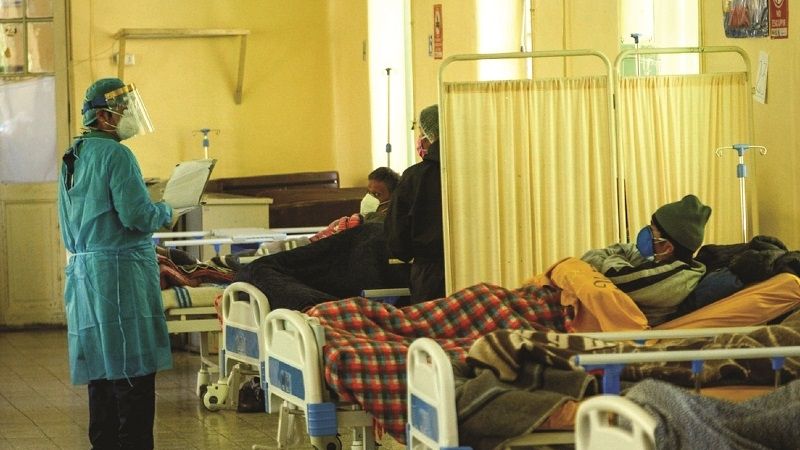
21 July 2021
Health confirms that all ICU patients are unvaccinated
The Vice Minister of Health Insurance and Management of the Unified Health System, Alejandra Hidalgo, said this Wednesday that the people who entered an Intensive Care Unit these days, affected by Covid-19, did not receive either of the two doses of none of the vaccines available for the immunization of the population.
“There is a low percentage of vaccinated people that enters the ICU, and this has already been demonstrated: all the patients who have entered the intensive care area are people who did not receive any of the doses of any vaccine,” explained Hidalgo in contact with ATB.
She added that if these people would have received the vaccines, the chances of being treated in an ICU would have been reduced.
“If these people had received the doses, the admissions to intensive care would have decreased,” explained the Vice Minister.
She also asked not to follow criteria not scientifically proven or statements such as that the anti-covid doses turn people into “werewolves.”
“These mentions that the woman or the man becomes infertile are not scientifically proven assertions; much less a criterion that they have issued, that a person would become a werewolf,” she declared.
So far in the third wave of Covid-19 in the country, no patient who entered the intensive care unit of the Hospital de Clínicas received the vaccine, according to reports from medical staff. According to specialists, this data is important because it shows the importance of inoculation.
Del Castillo: “We do not have any transcendental element that demonstrates the participation of other countries in the coup”

Del Castillo: “We do not have any transcendental element that demonstrates the participation of other countries in the coup”
21 July 2021
After various official statements that point to regional Governments as participants in the alleged coup d’État in 2019, the Minister of Government, Eduardo Del Castillo, clarified that, so far, they do not have “any transcendental element” that supports such hypothesis. However, there is evidence of a meeting between diplomatic authorities, in which there was already talk of fraud in the general elections.
“Initially what we have is that in July 2019, long before the electoral calendar was approved in our country, there was a meeting between an official of (Donald) Trump’s Government with several Ambassadors from the region, including Argentina, Brazil, Peru, [and] the European Union. There, the Trump administration official stated that there was going to be electoral fraud in Bolivia. Basically, they were following a common thread and a manual that had been approved,” said Del Castillo, in an interview with the Argentine Newspaper Página 12.
“Currently we do not have any transcendental element that demonstrates the participation of other countries in the coup d’État, we only have these cables from the United States and then we have the participation of Ecuador and Argentina with the delivery of weapons. (…) We have preliminary reports that show that intelligence groups from different countries have operated,” he added.
Regarding the case of Argentina, where processes have already been initiated against former authorities of the Government of Mauricio Macri, Del Castillo affirmed that the former Argentine President or former members of his administration have not yet been included in the investigations for arms trafficking; however, it is something that cannot be ruled out.
“This will be determined by the investigations as they progress. Initially, we have presented a complaint to the Bolivian justice to investigate the former Commander of the Bolivian Police, Colonel Yuri Calderon, and also the former Commander of the Air Force, General Jorge Terceros Lara. We are also seeing that there has been the participation of Argentine representatives.”
In turn, the Minister explained that Argentina sent 70,000 rubber cartridges, but that the whereabouts of 3,100 of them is unknown. The hypothesis is that they were used in Senkata and Sacaba.
“The Argentine Government record tells us that 70,000 rubber cartridges would have been sent. This was never legally interned in our national territory. We are going to continue investigating this because we are aware that 26,900 went to the Bolivian Police, 40,000 to the Air Force and we are investigating where the difference went,” he revealed. “One of the first hypotheses that we are handling is that the difference would have been used in the repressions of Senkata and Sacaba. Initially, we are investigating whether it was granted to paramilitary groups, representatives of the armed forces, or the Bolivian Police. We have already ruled out that additional material has entered the Bolivian Police and, therefore, we are awaiting the corresponding reports and verifications ‘in situ’ to see if this armament is not in another place.”
Cochabamba Youth Resistance (RJC) member hospitalized and his defense denounces that the detention is illegal

21 July 2021
Cochabamba Youth Resistance (RJC) member hospitalized and his defense denounces that the detention is illegal
Mario Bascope, a member of the Cochabamba Youth Resistance (RJC), who was apprehended yesterday in the city of Santa Cruz, was transferred to Sucre this Wednesday morning to provide his informative statement regarding the damage suffered by the State Attorney General’s Office last year, although his defense denounced that his detention was illegal and that he was even beaten.
“Tonchy” as Bascope is known, was admitted to a hospital in Sucre due to a health problem, reported the Newspaper Correo del Sur in that city. At first, they took him to the Prosecutor’s Office to take his statement, but due to his ailment he was referred to a health center, anti-corruption prosecutors Daniel Fernandez and Javier Angel Gorena informed El Día [Newspaper].
His apprehension at the gates of the Santa Cruz prison occurred after being released on parole. The process against Bascope took place after an extension of the same case faced by the leader of the Cochabamba Youth Resistance (RJC), Yassir Molina, detained in the San Roque prison.
“About five minutes ago he called me telling me that he was already in the city of Sucre. They took him on a flight this morning; they made him sleep at the Special Force to Fight Crime (FELCC) in Santa Cruz. They had him there. They have beaten my husband, he has a hernia, right now he cannot walk, [and] he is all sore… He was held incommunicado,” said his wife Jesenia Rodriguez at a press conference in Santa Cruz. She added that when he had taken a few steps to regain his freedom and hug his son, he was abruptly detained and thrown into a vehicle.
The woman was unaware that her partner had any pending proceedings. “For the same reason, he was released. If he had had a pending process, he would not have been released,” added the woman, who blamed the Ministry of Government.
Prosecutor Fernandez informed the journalist, Ivan Ramos, of the ERBOL network, that the process that Bascope faces is because there are “sufficient indications of responsibility” that he participated in the acts of violence of 6 October 2020.
“It is an illegal deprivation of liberty, it is a kidnapping and obviously it is a political maneuver because there is no explanation for what happened last night. Now he has informed us that they wanted to make him sign some notifications and that he would surely declare and sign other declarations to implicate other people and continue with the political and media show of the persecutions that the Minister of Government is carrying out,” said his lawyer Martin Camacho. The jurist pointed out that neither he nor his colleague Jorge Valda, who are part of Bascope’s defense, received any notification where their client appears as a defendant.
The Vice Minister of Internal Affairs and Police affirmed that the apprehension of the Cochabamba Youth Resistance (RJC) member seeks to clarify the suspect’s participation in criminal acts in Sucre. “These acts have to do with the investigative process of a criminal organization that had to be dismantled last year but was not possible,” said Cox, who denounced that it was not possible because the then Minister of Government, Arturo Murillo, was “an accomplice” and “sponsor” of the Cochabamba Youth Resistance (RJC).
